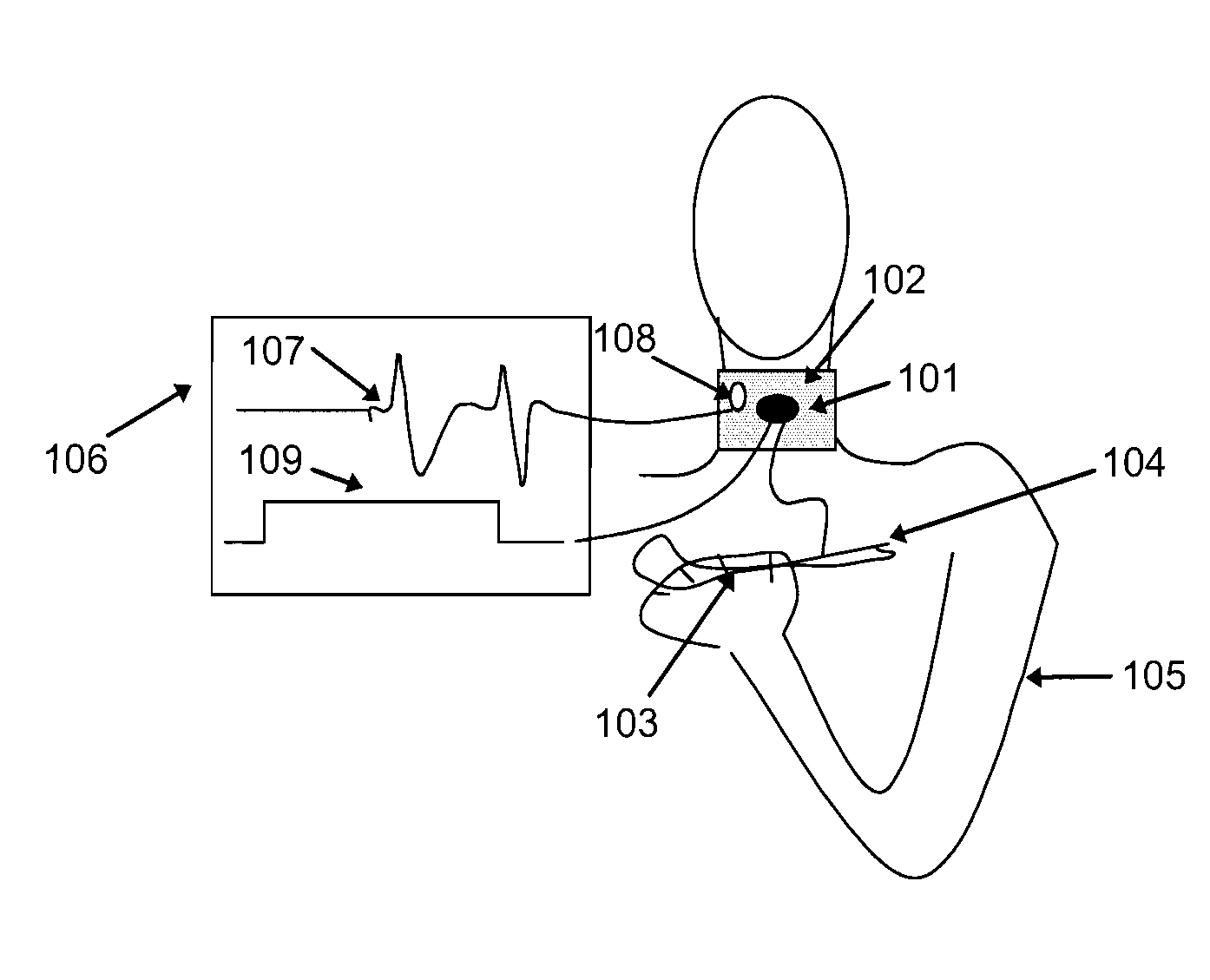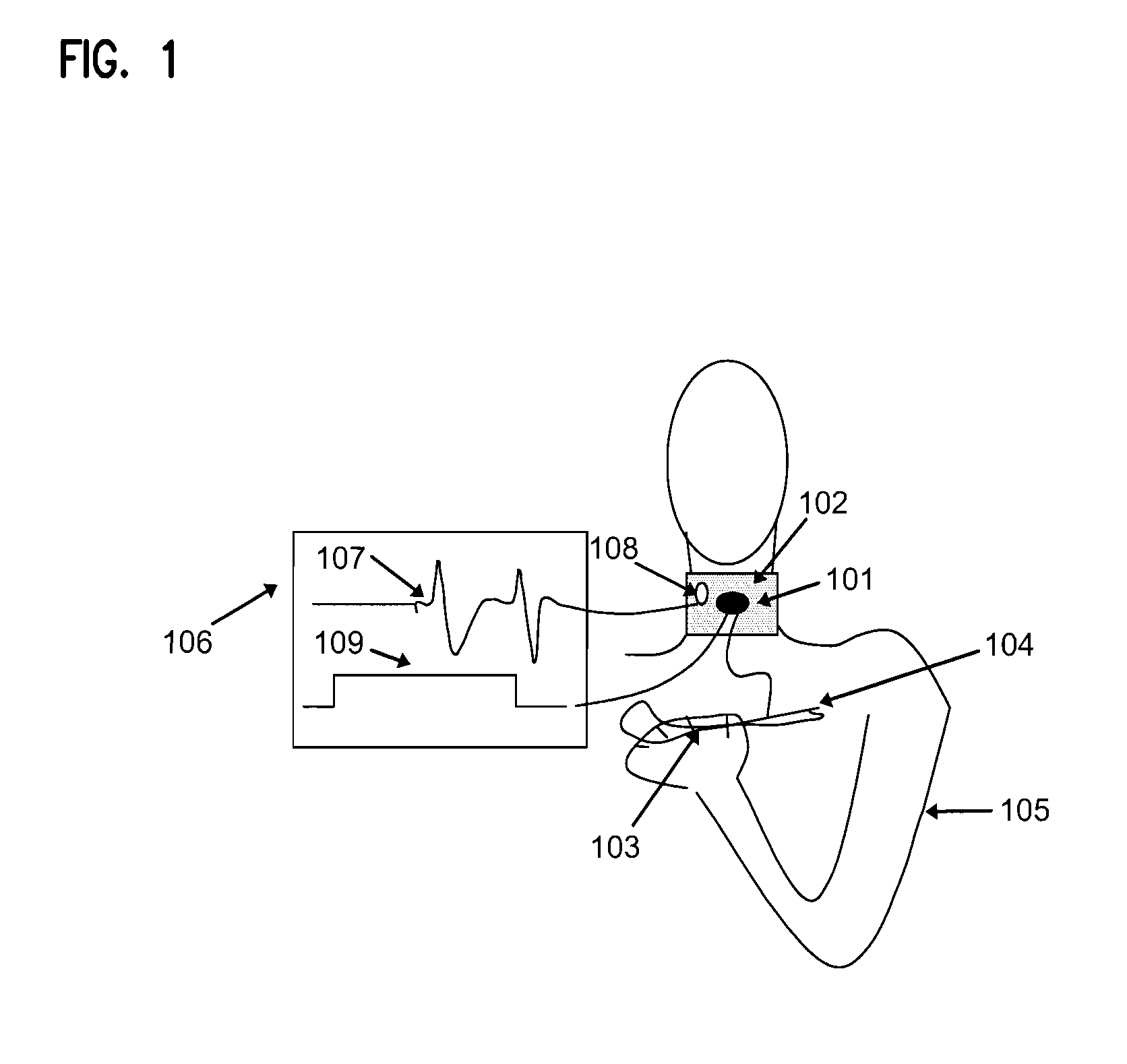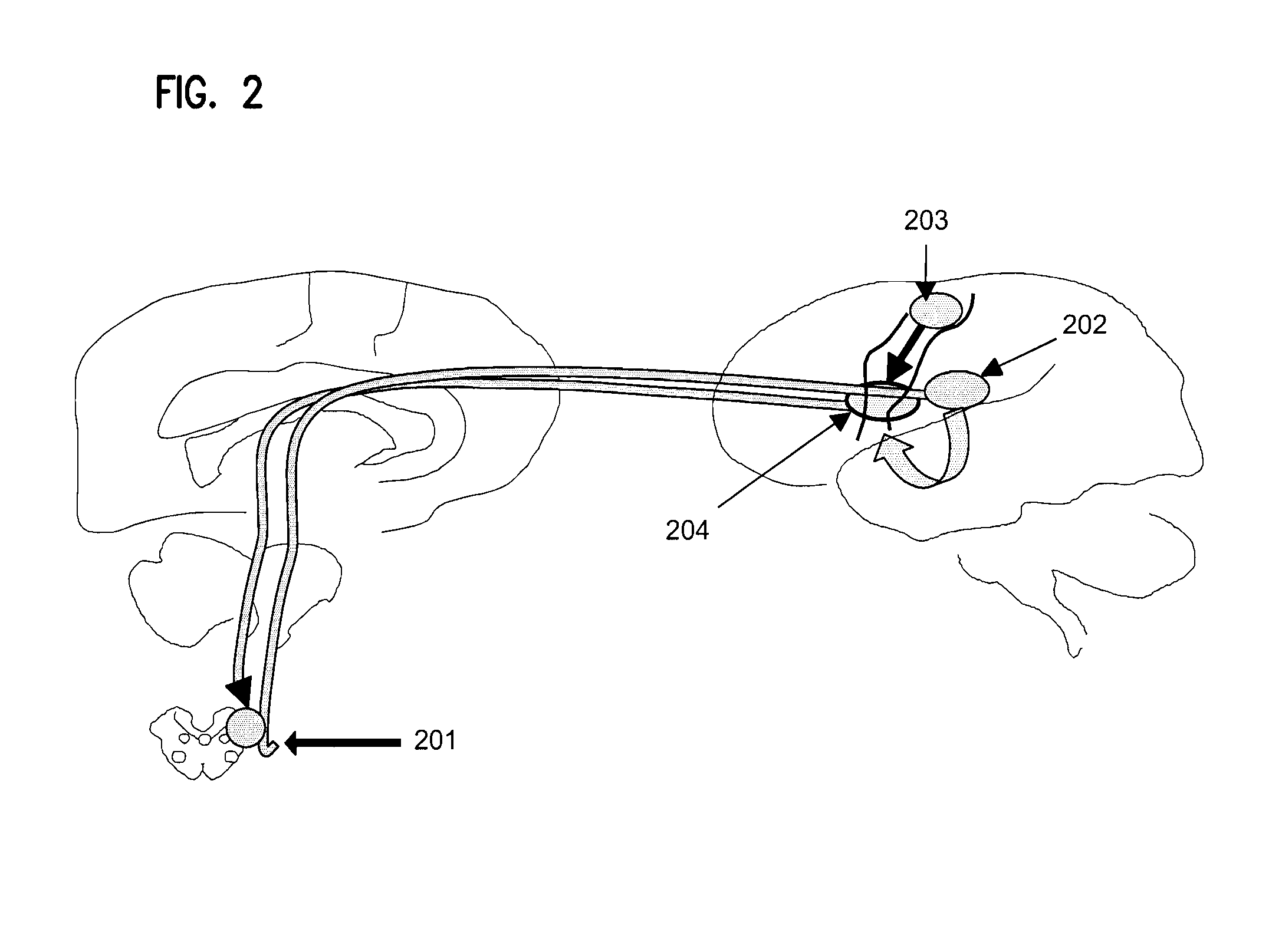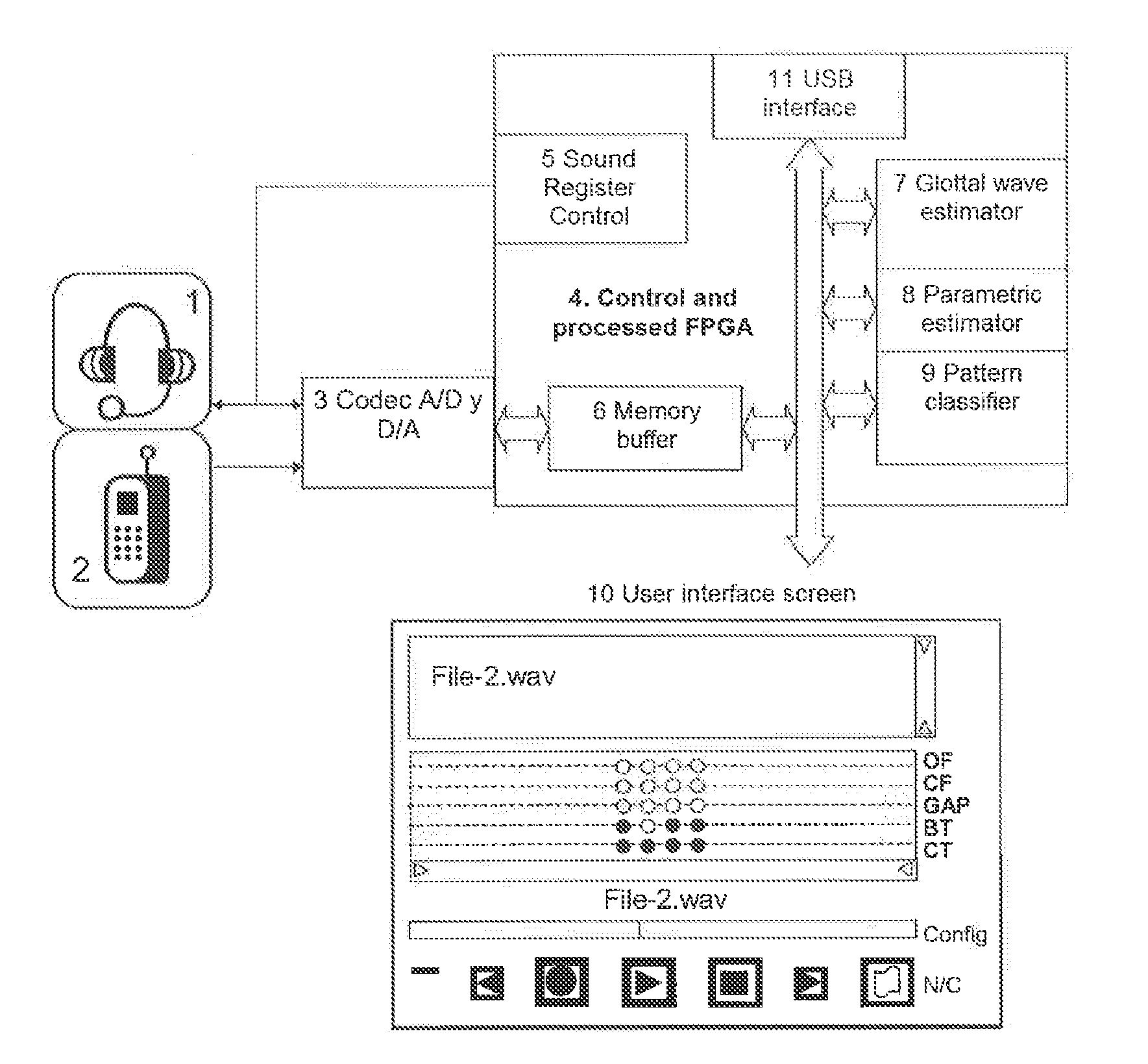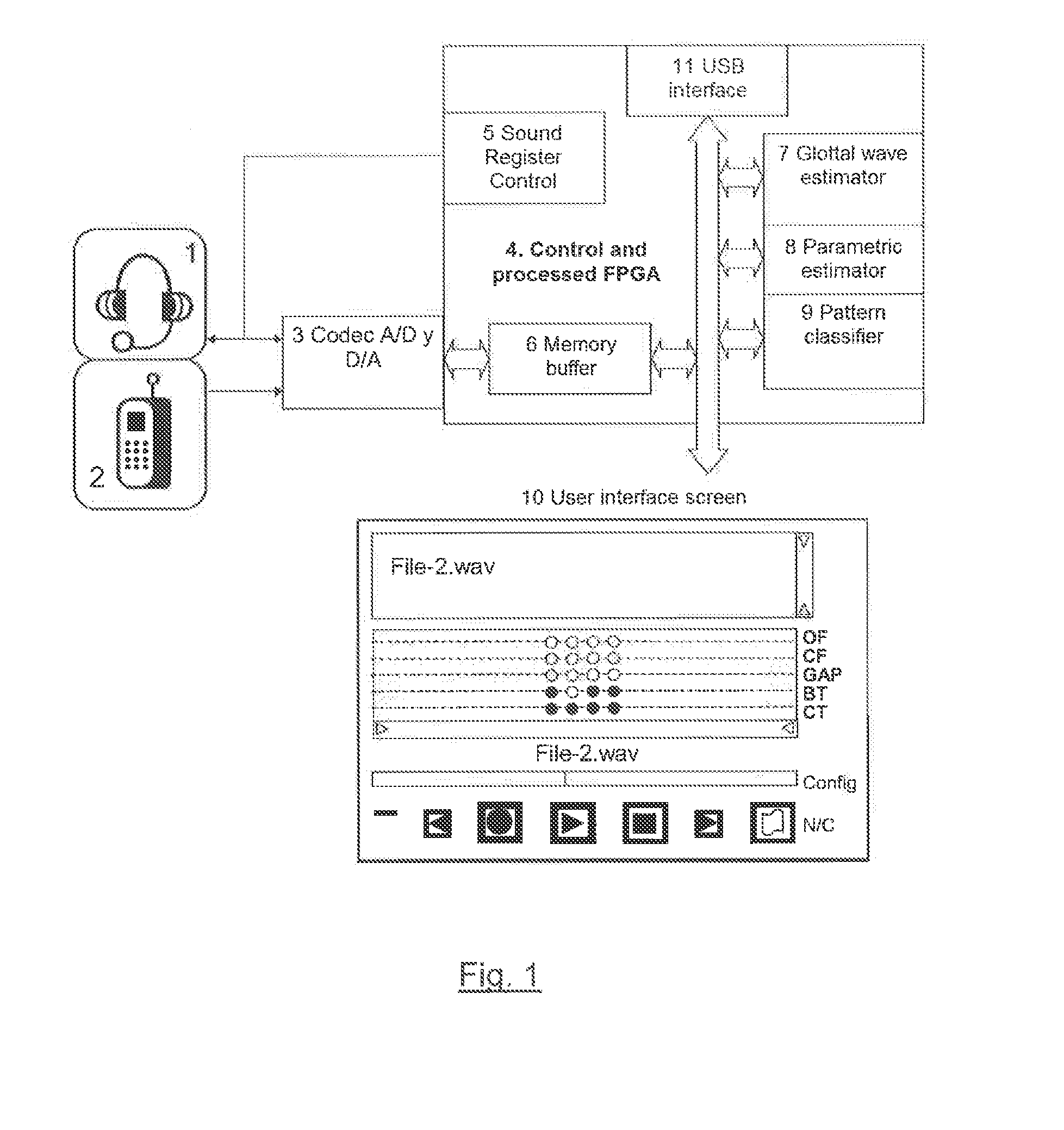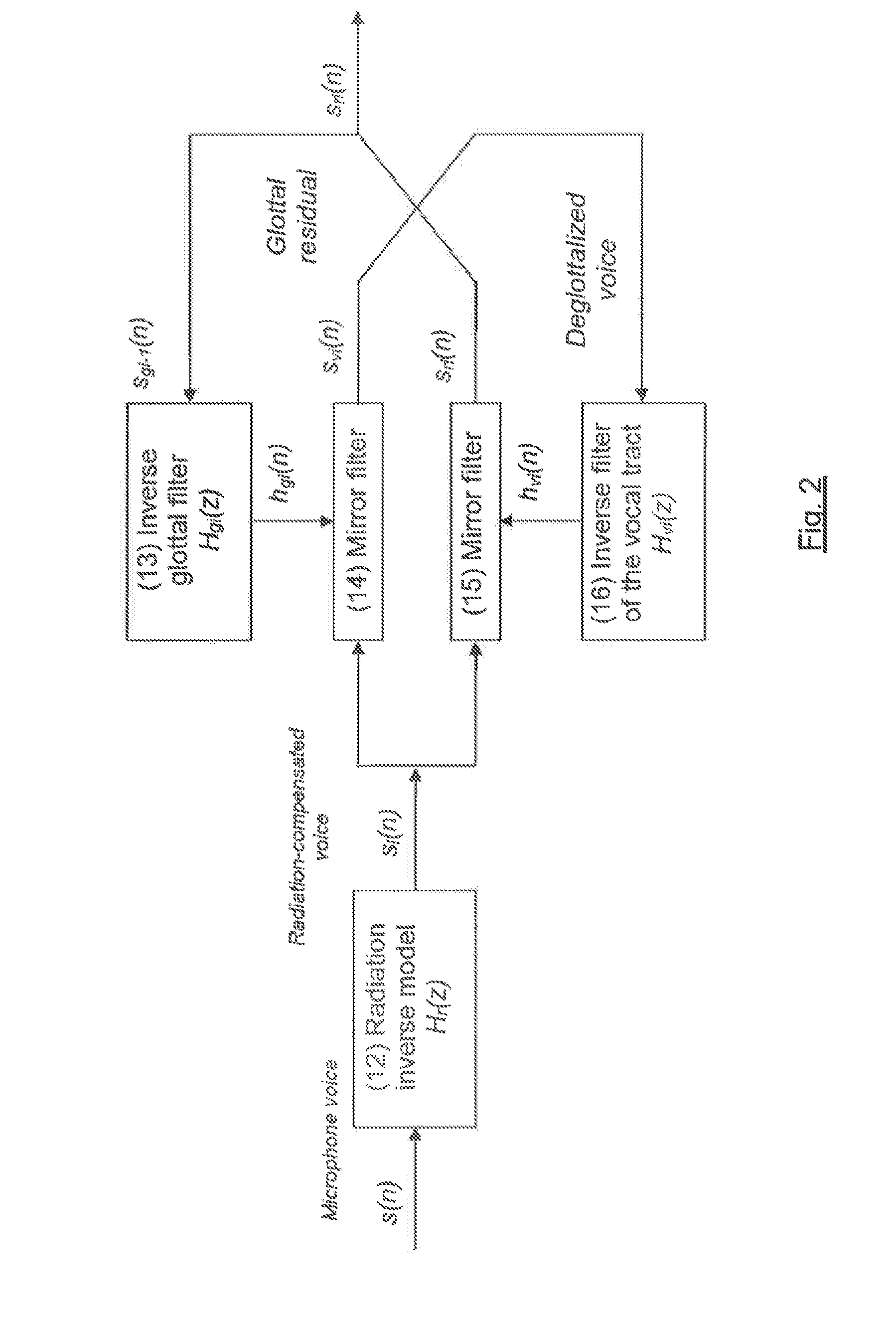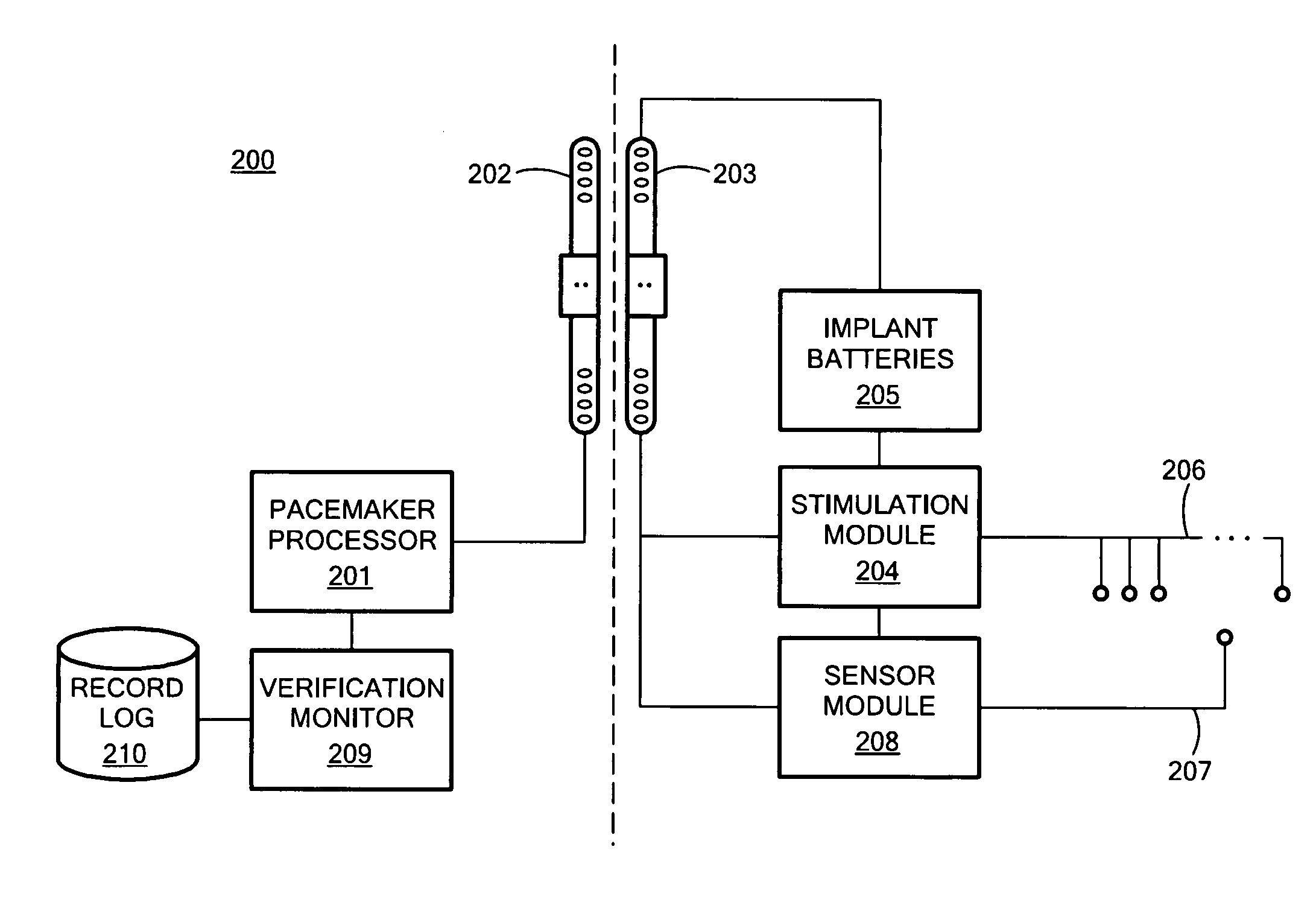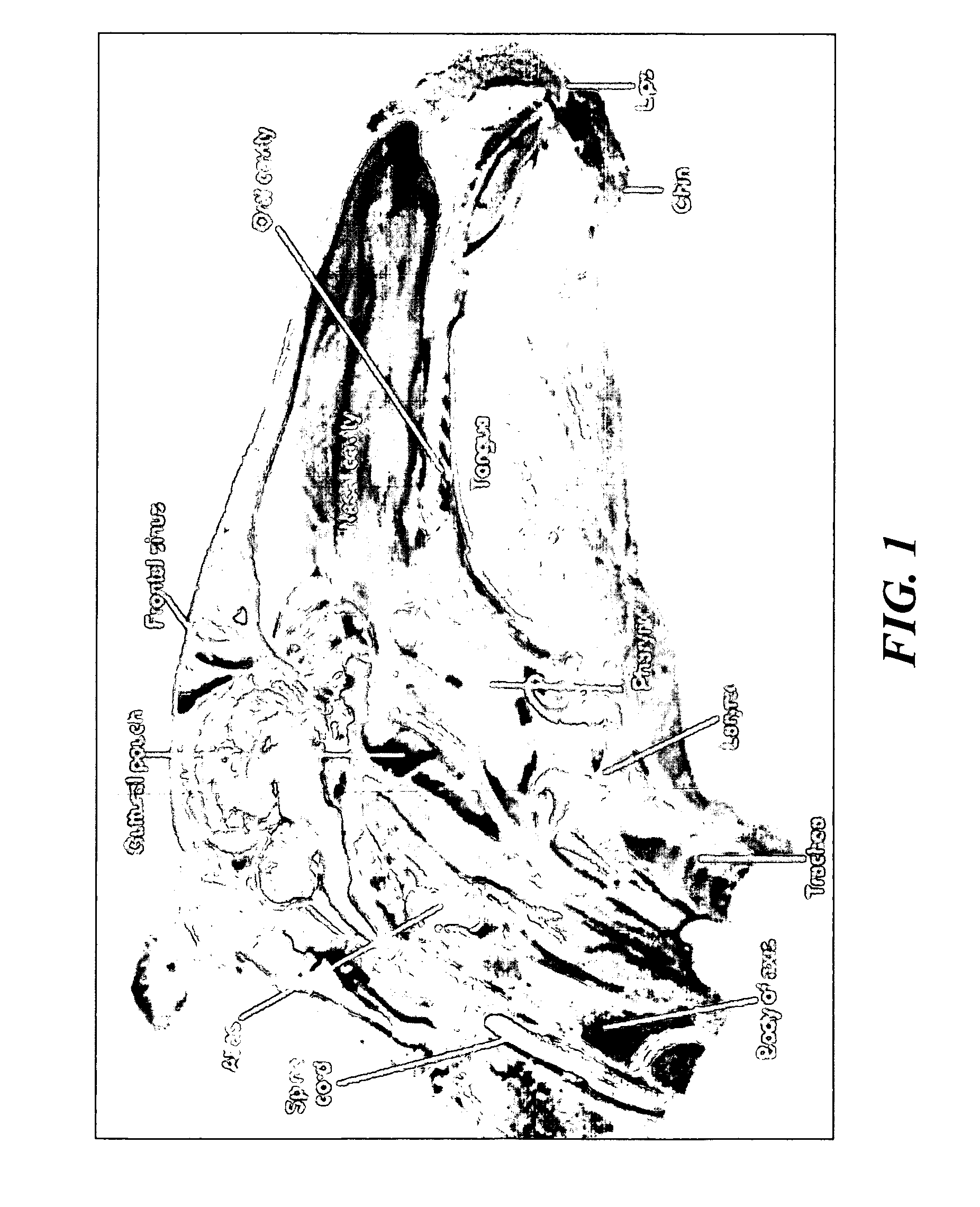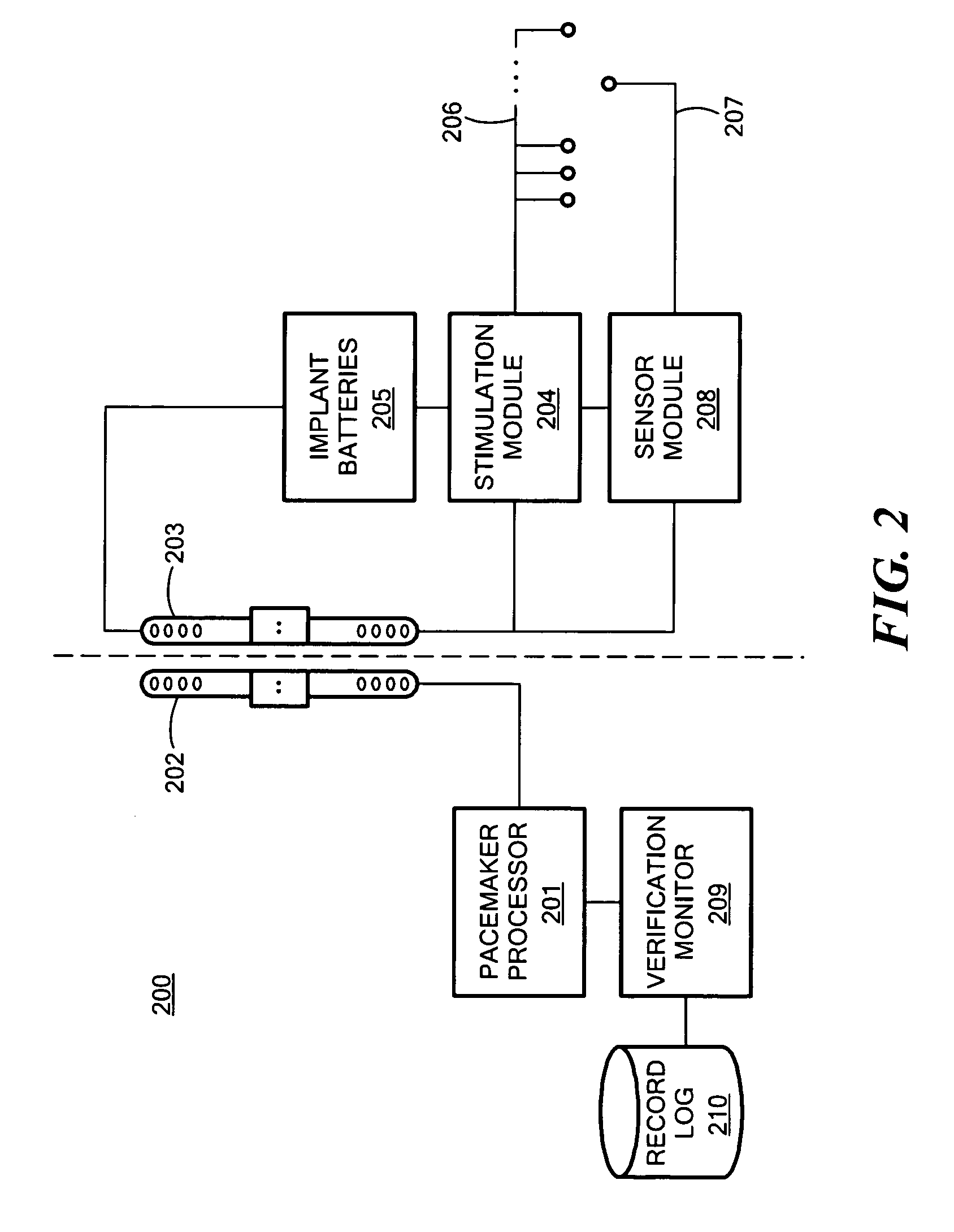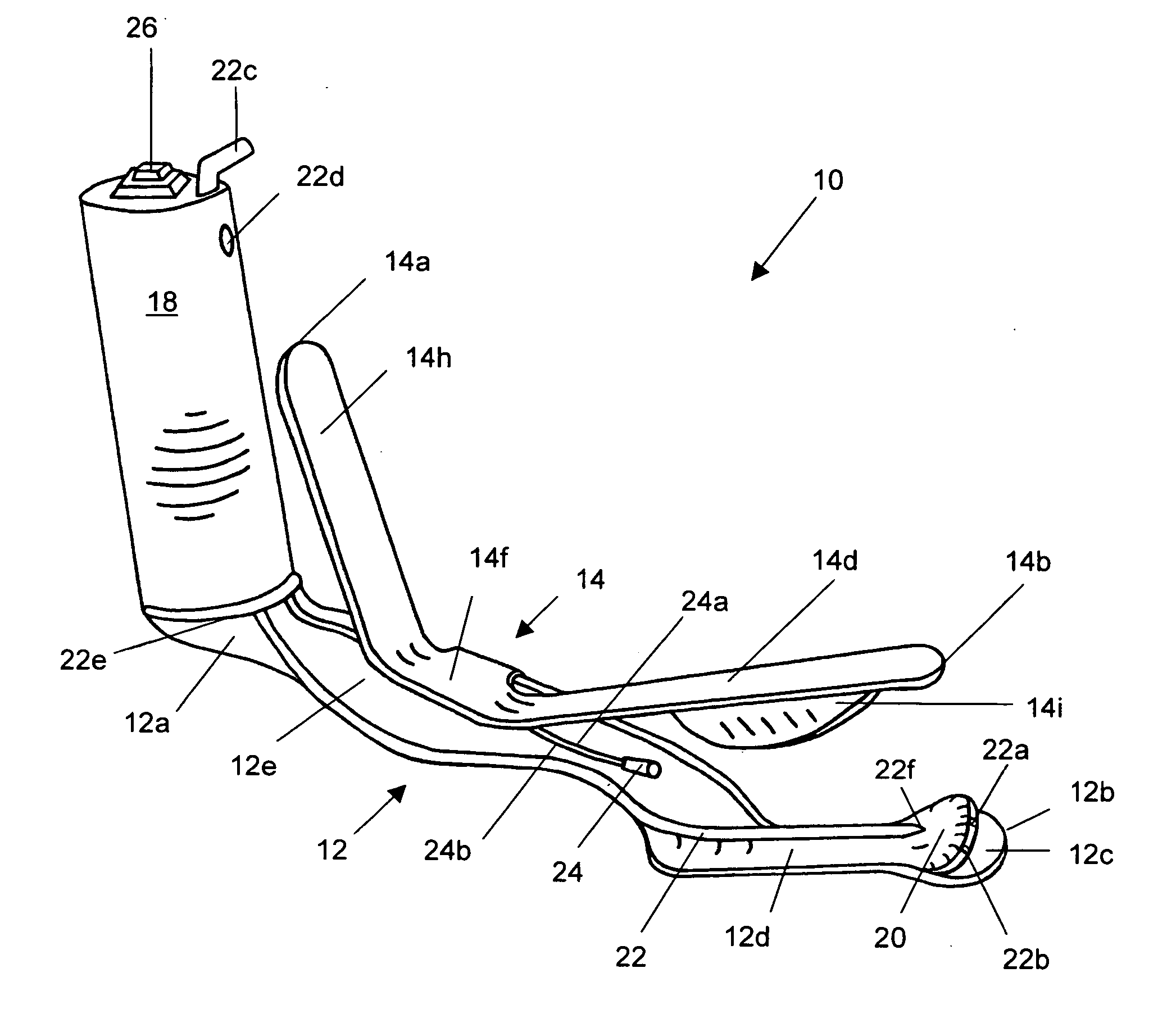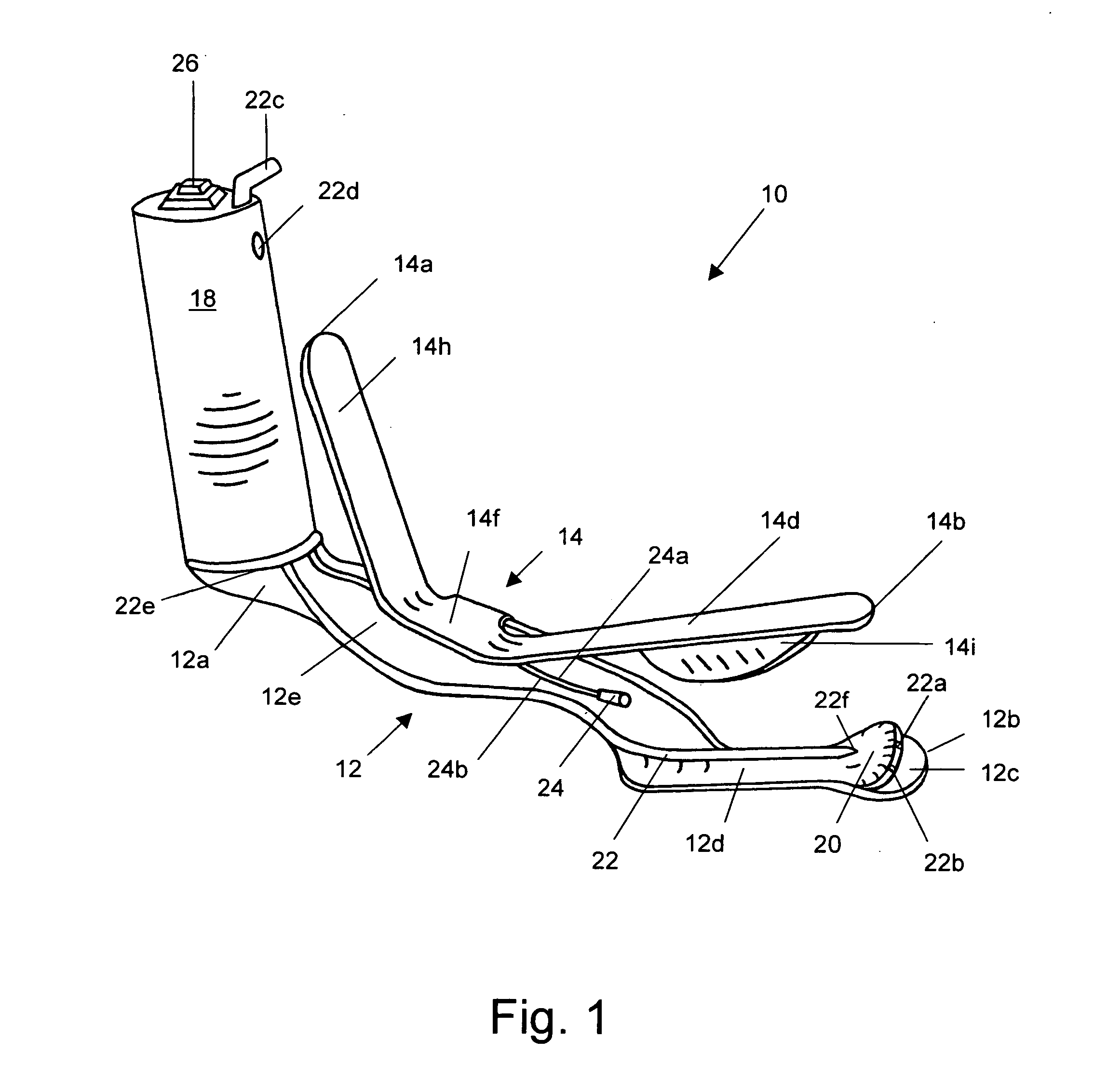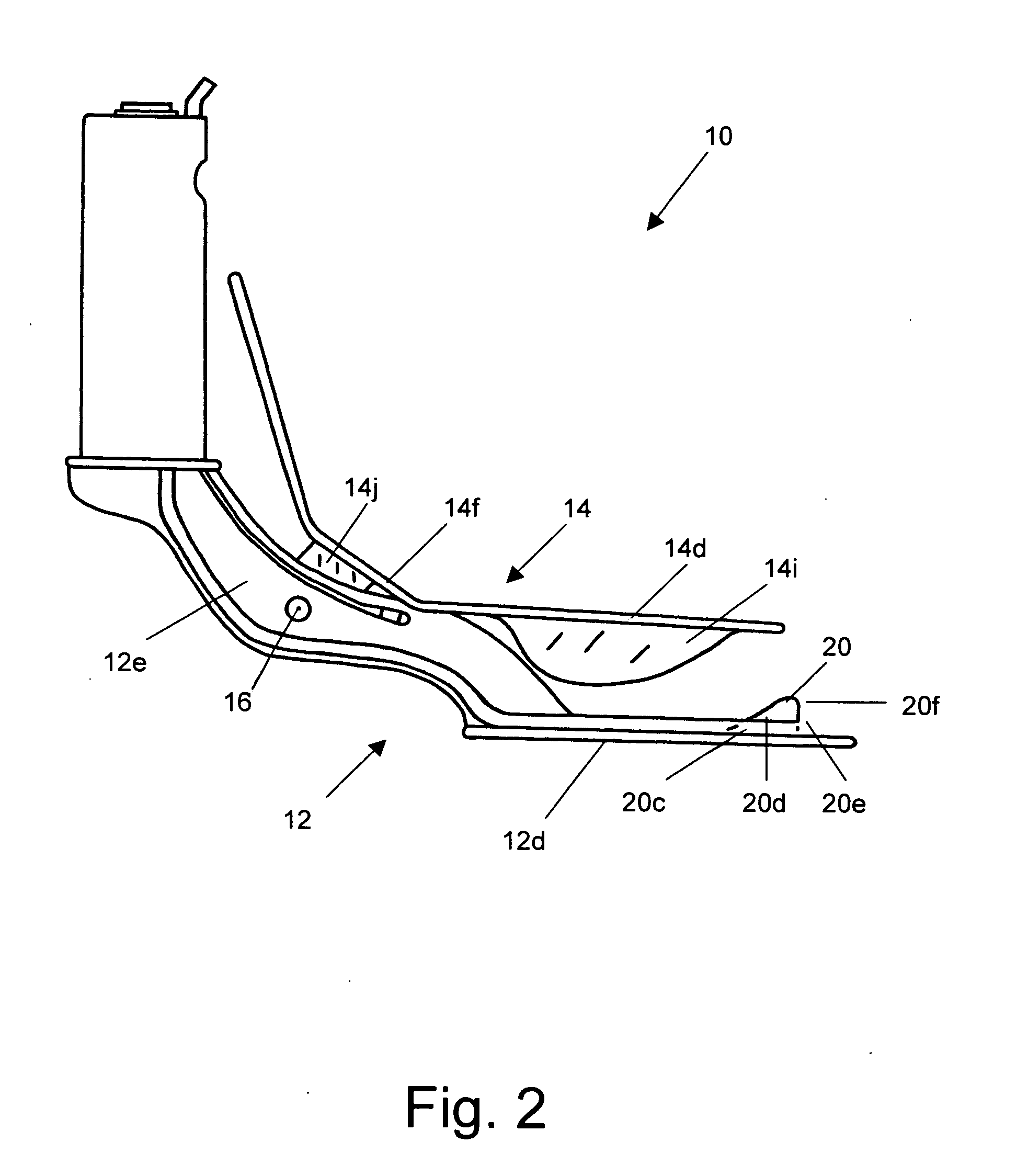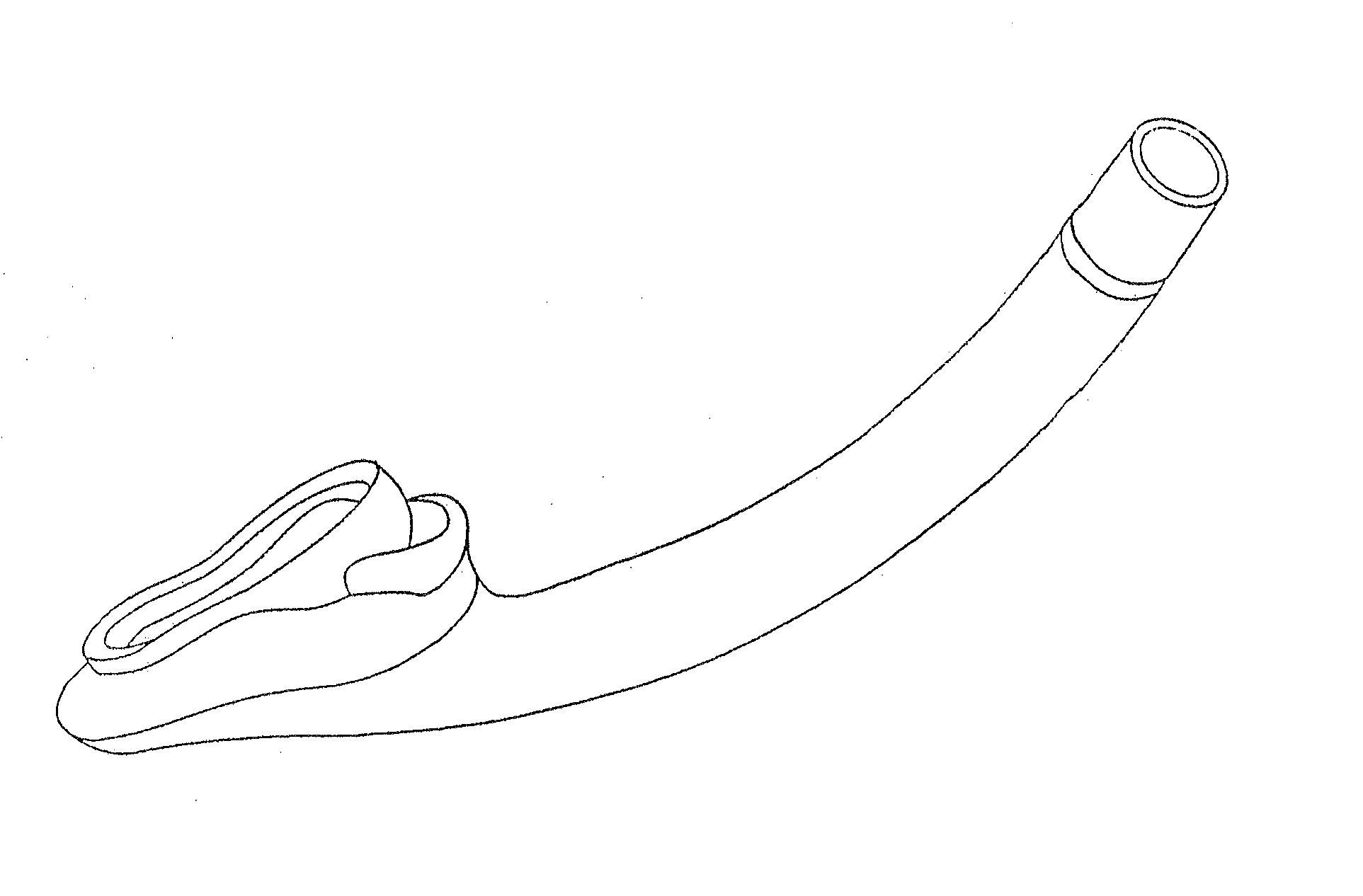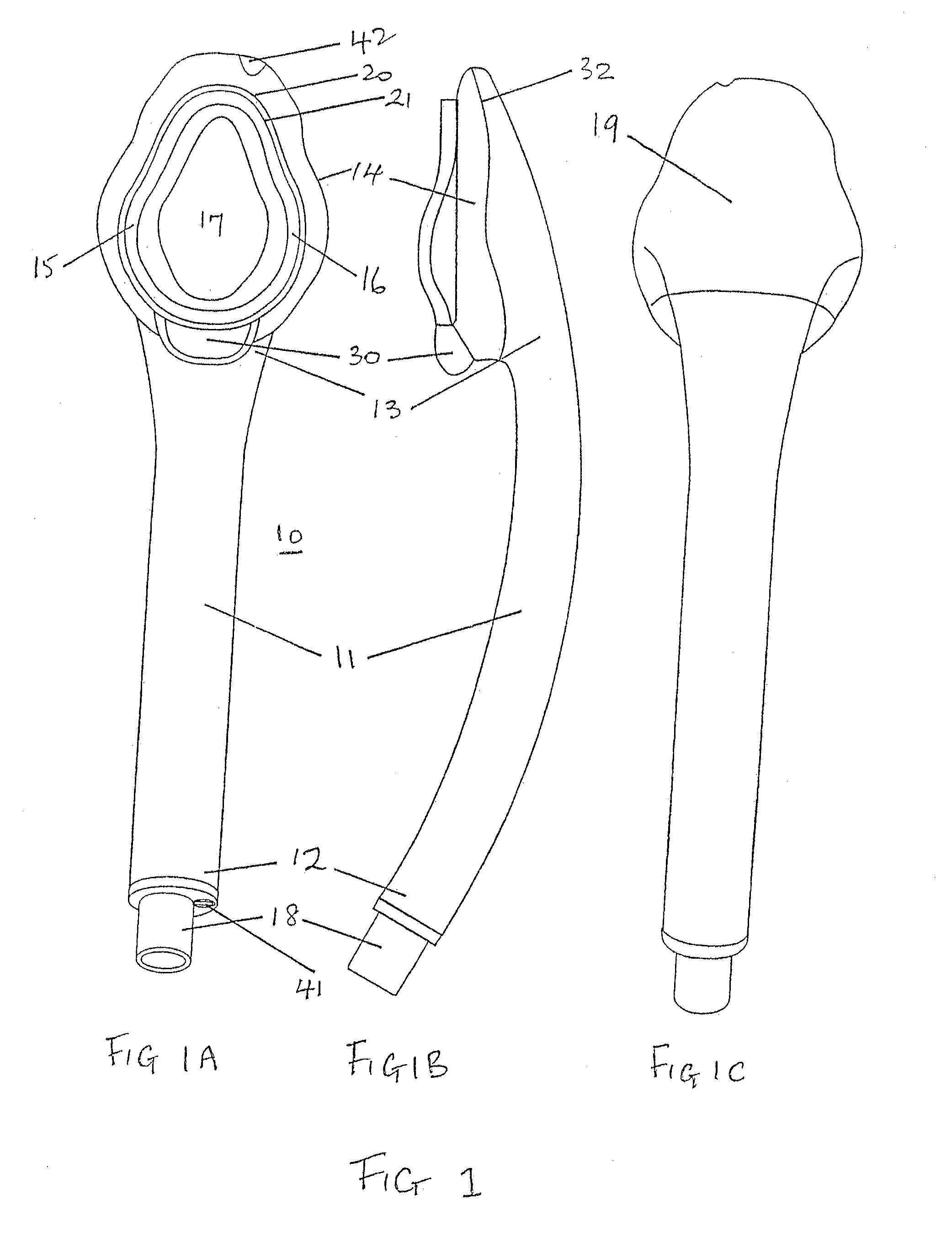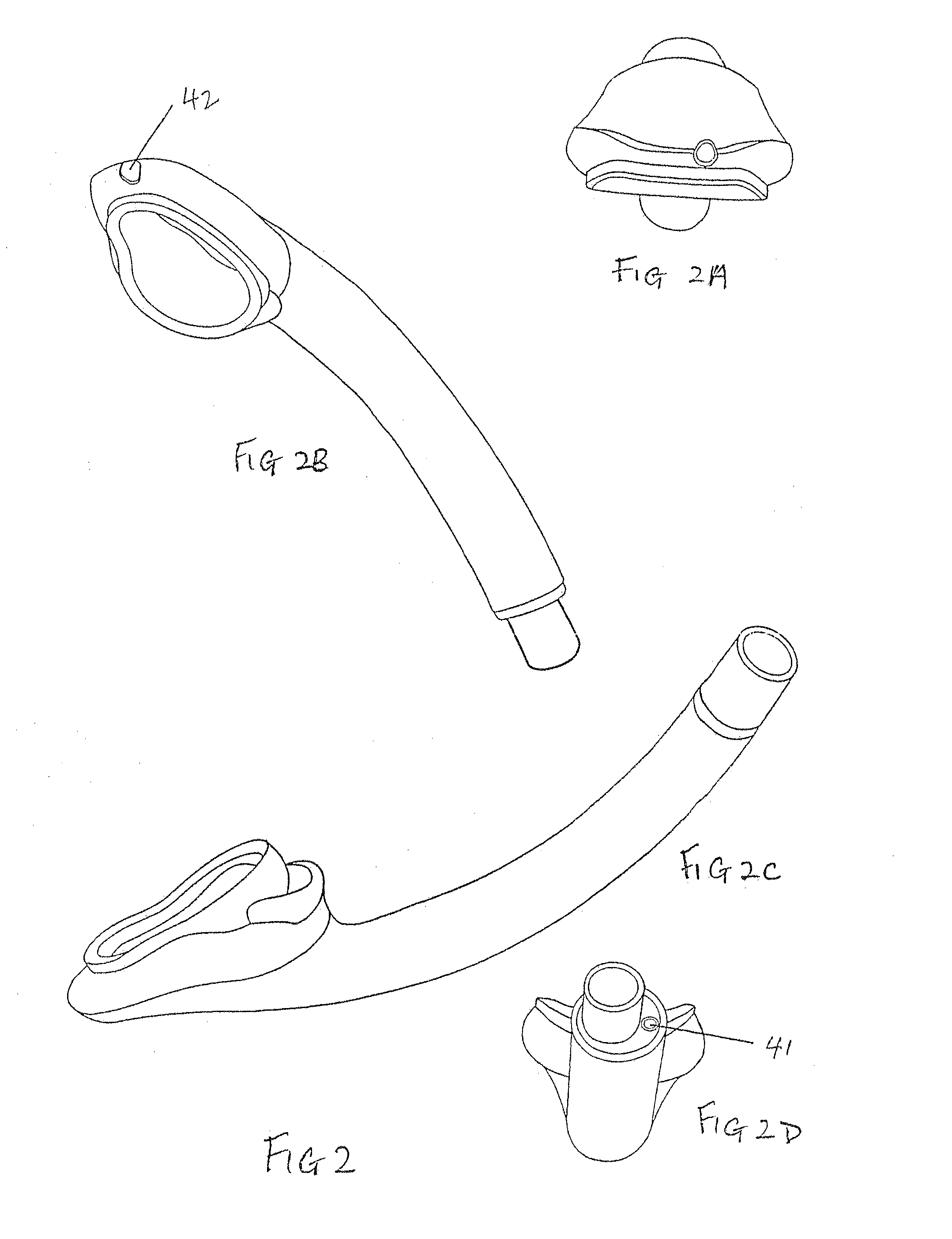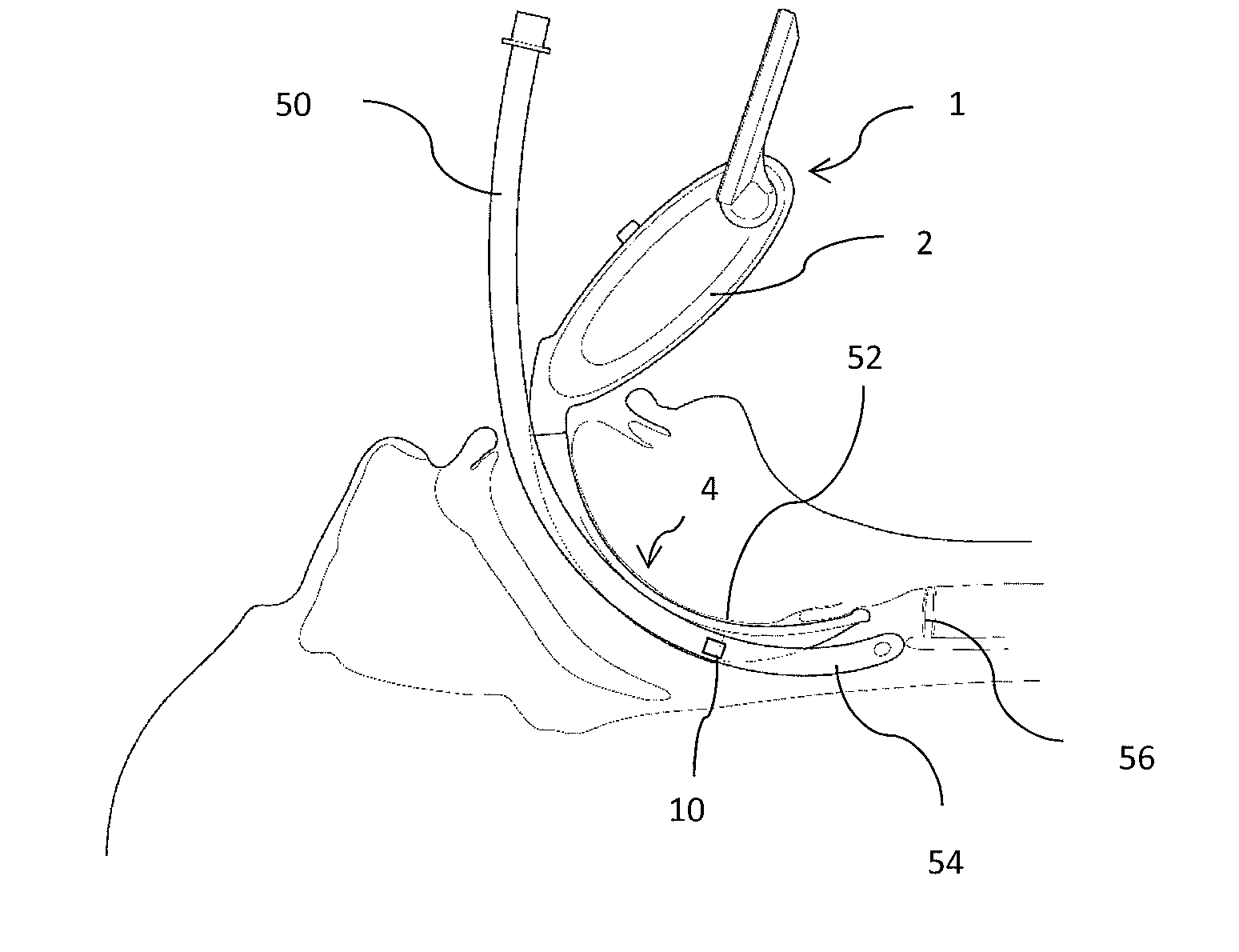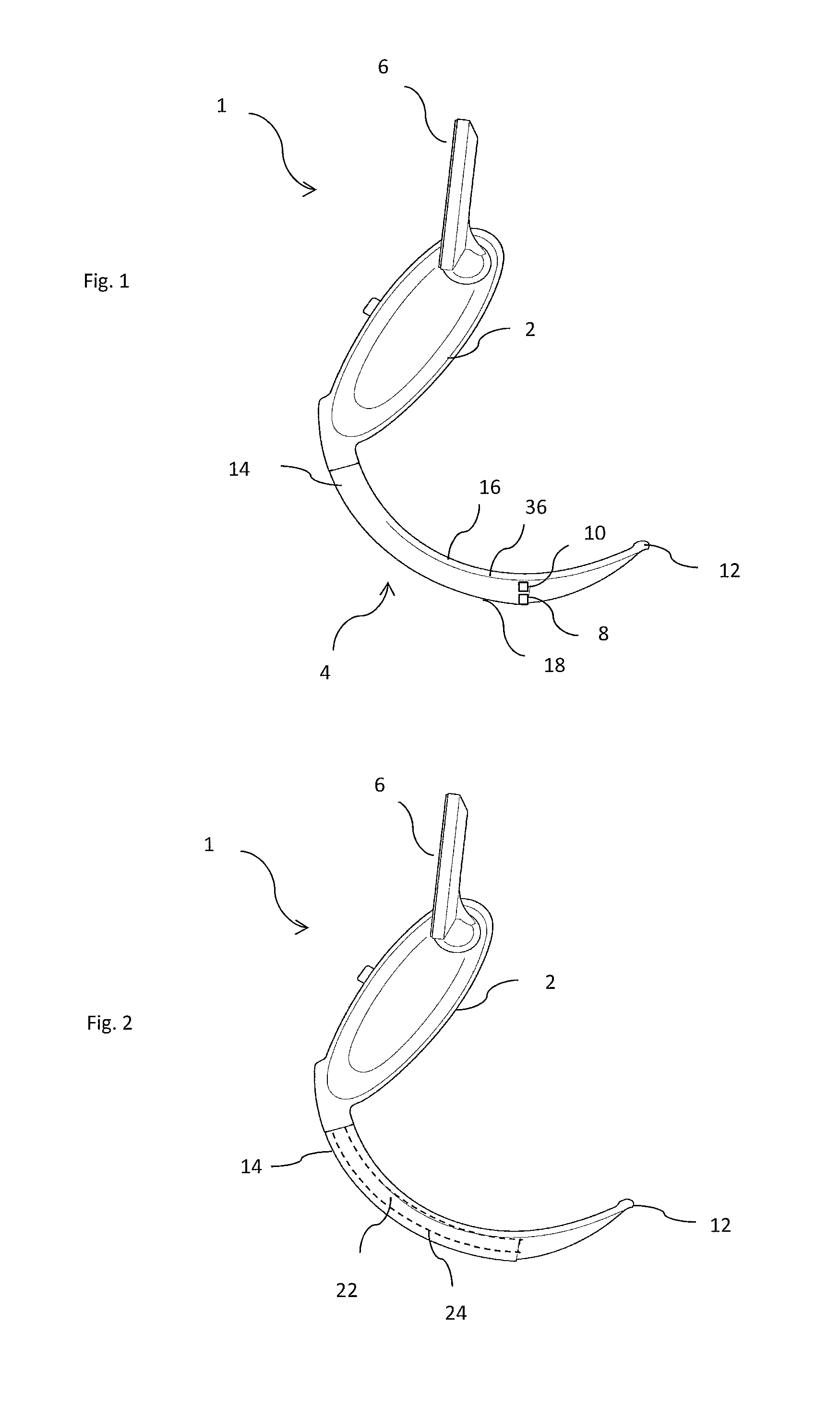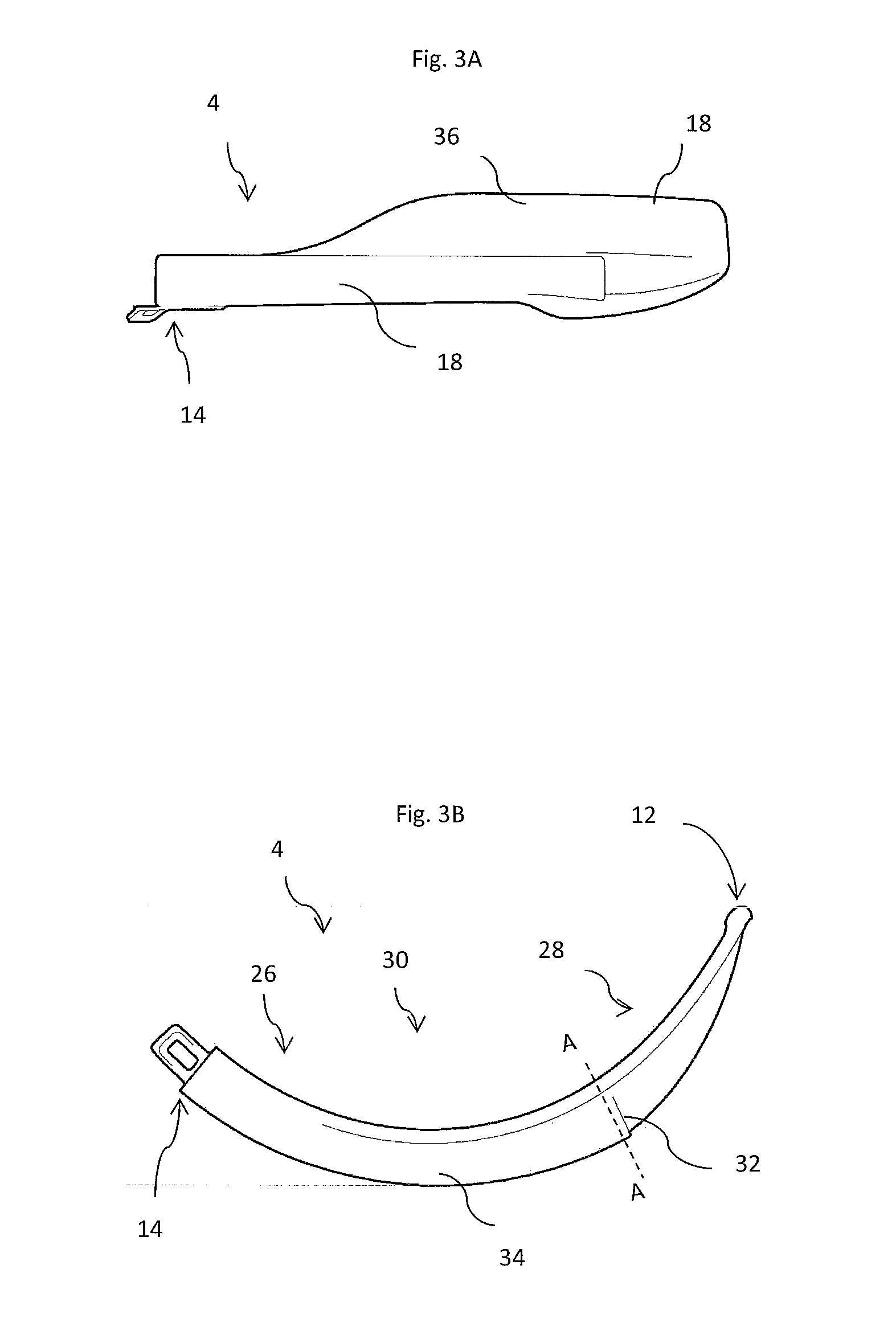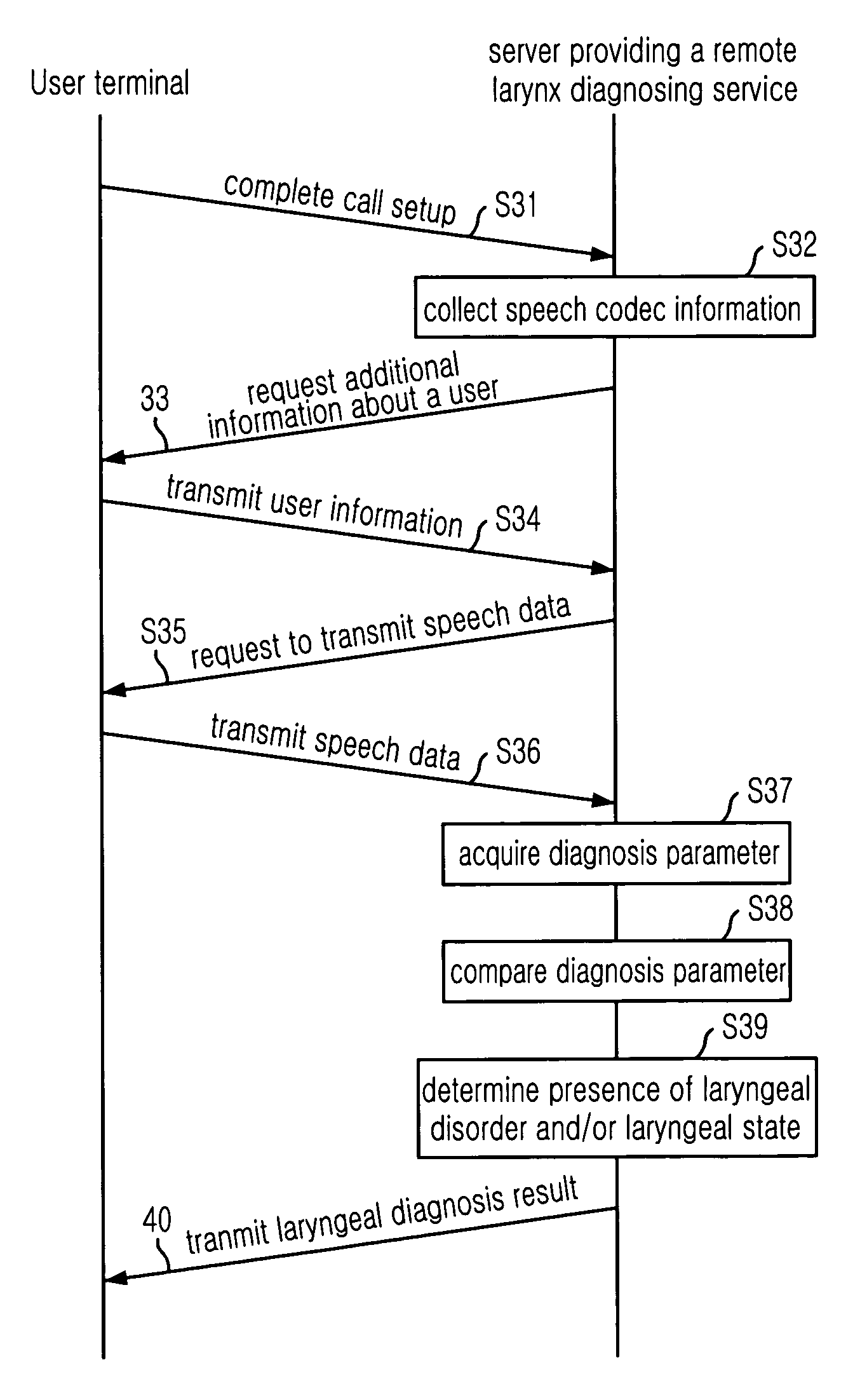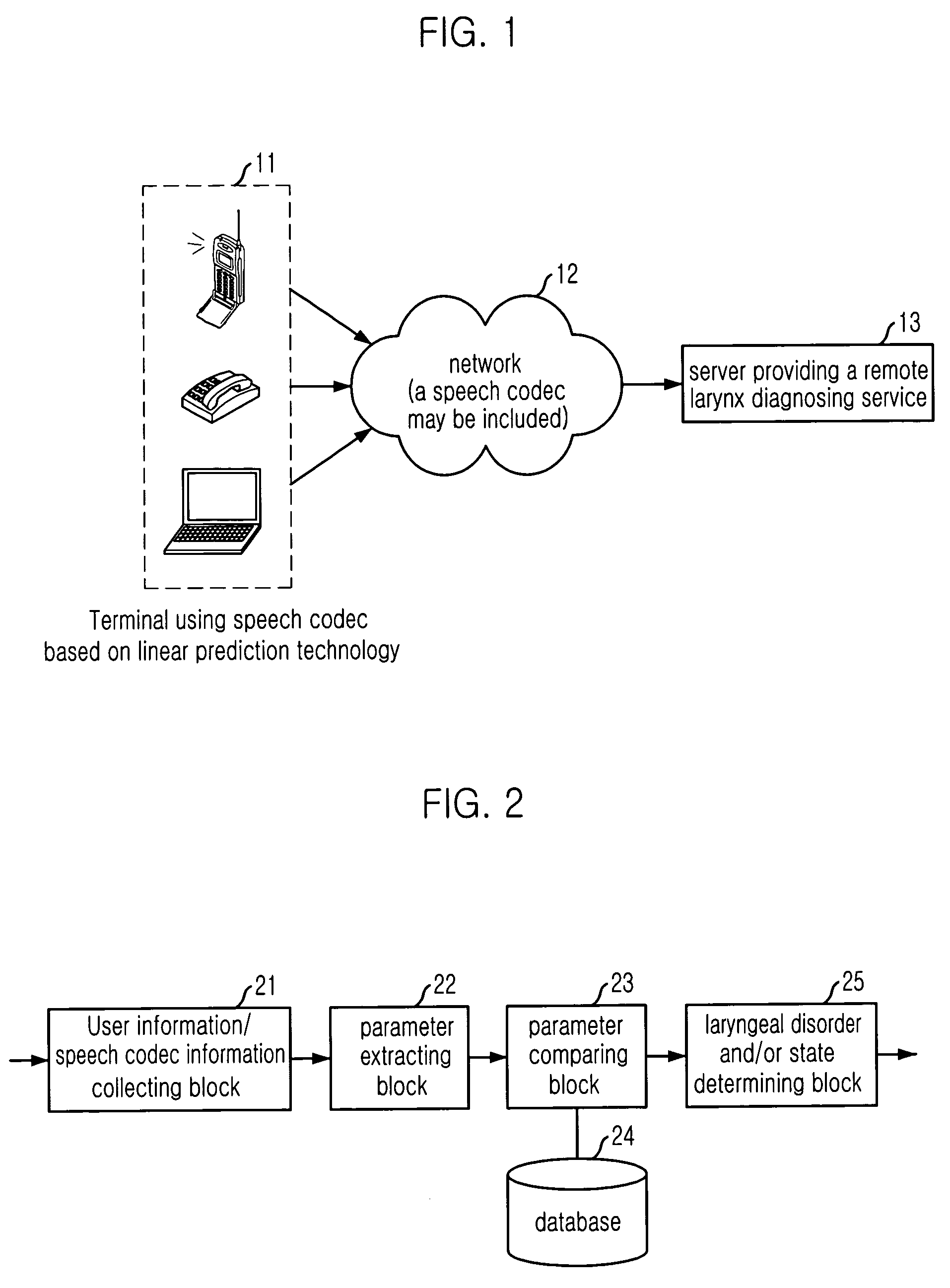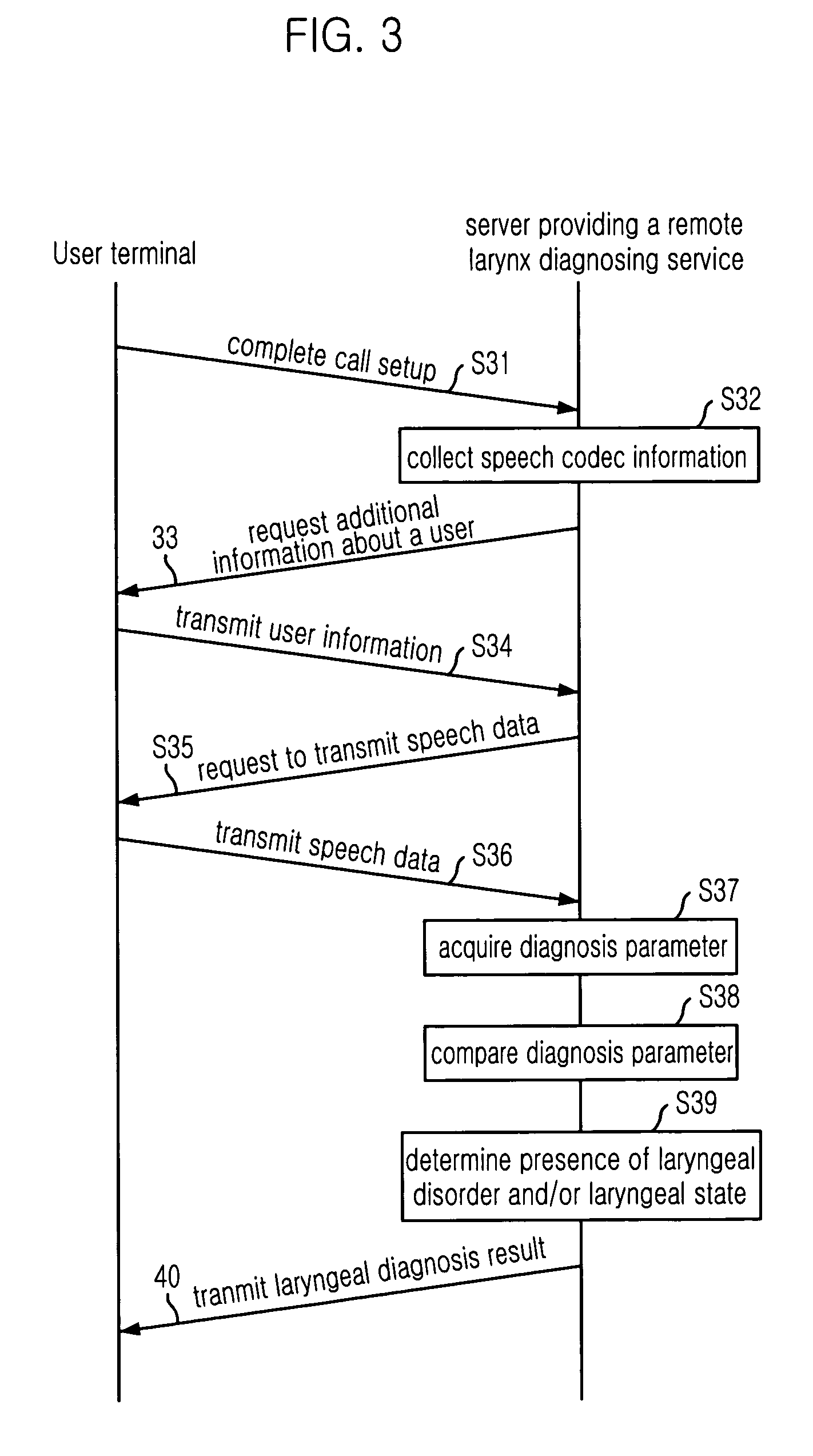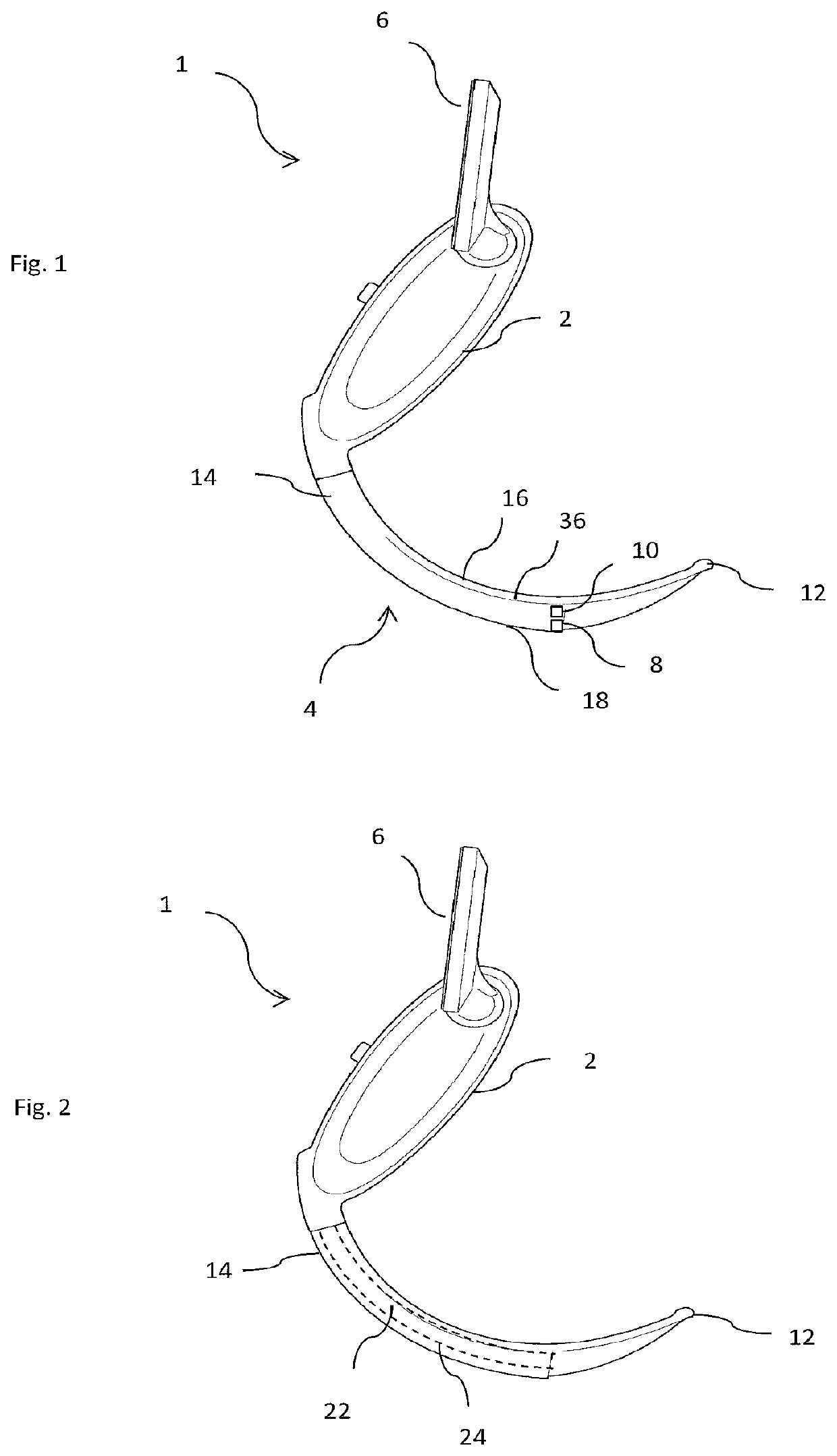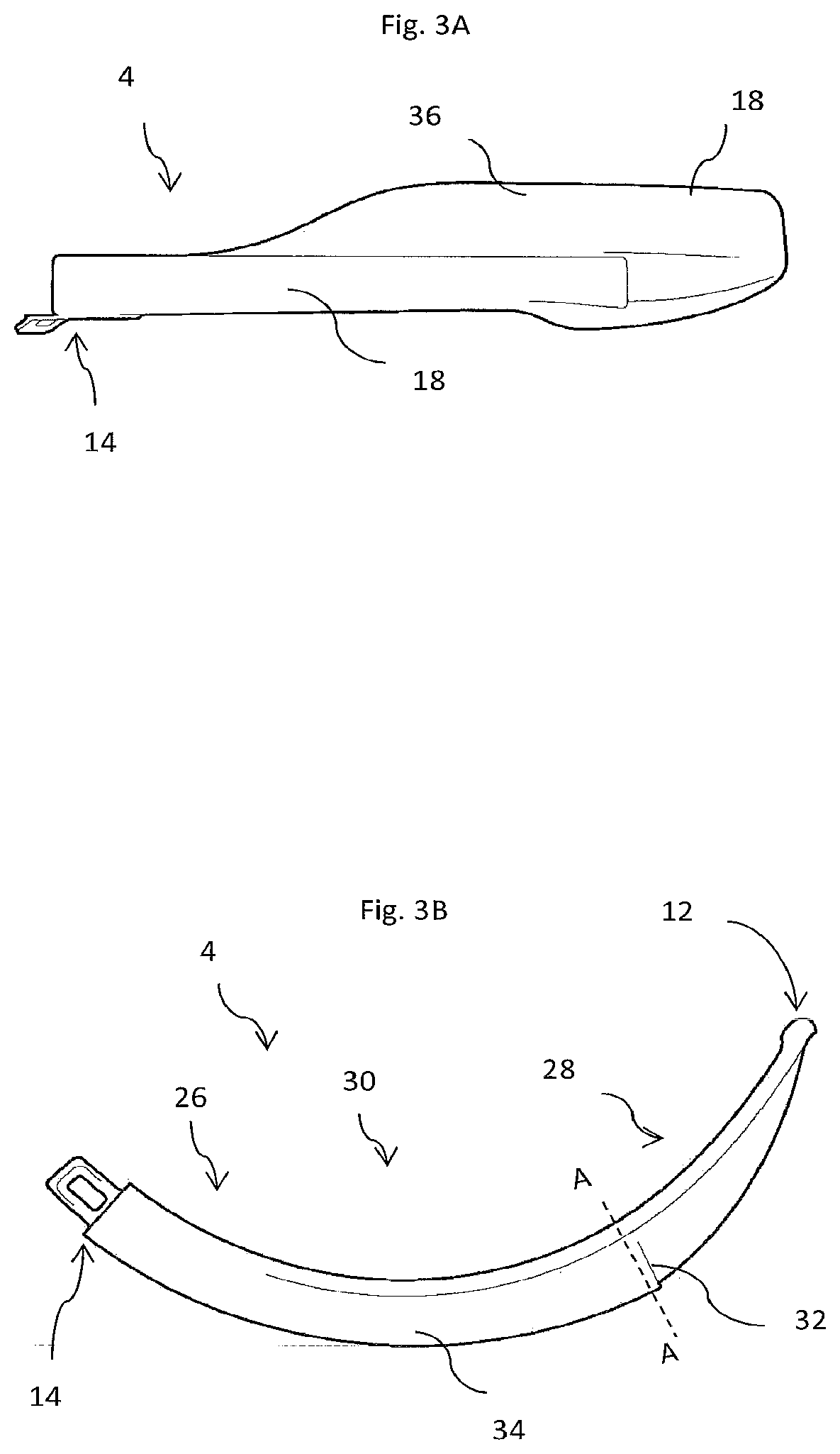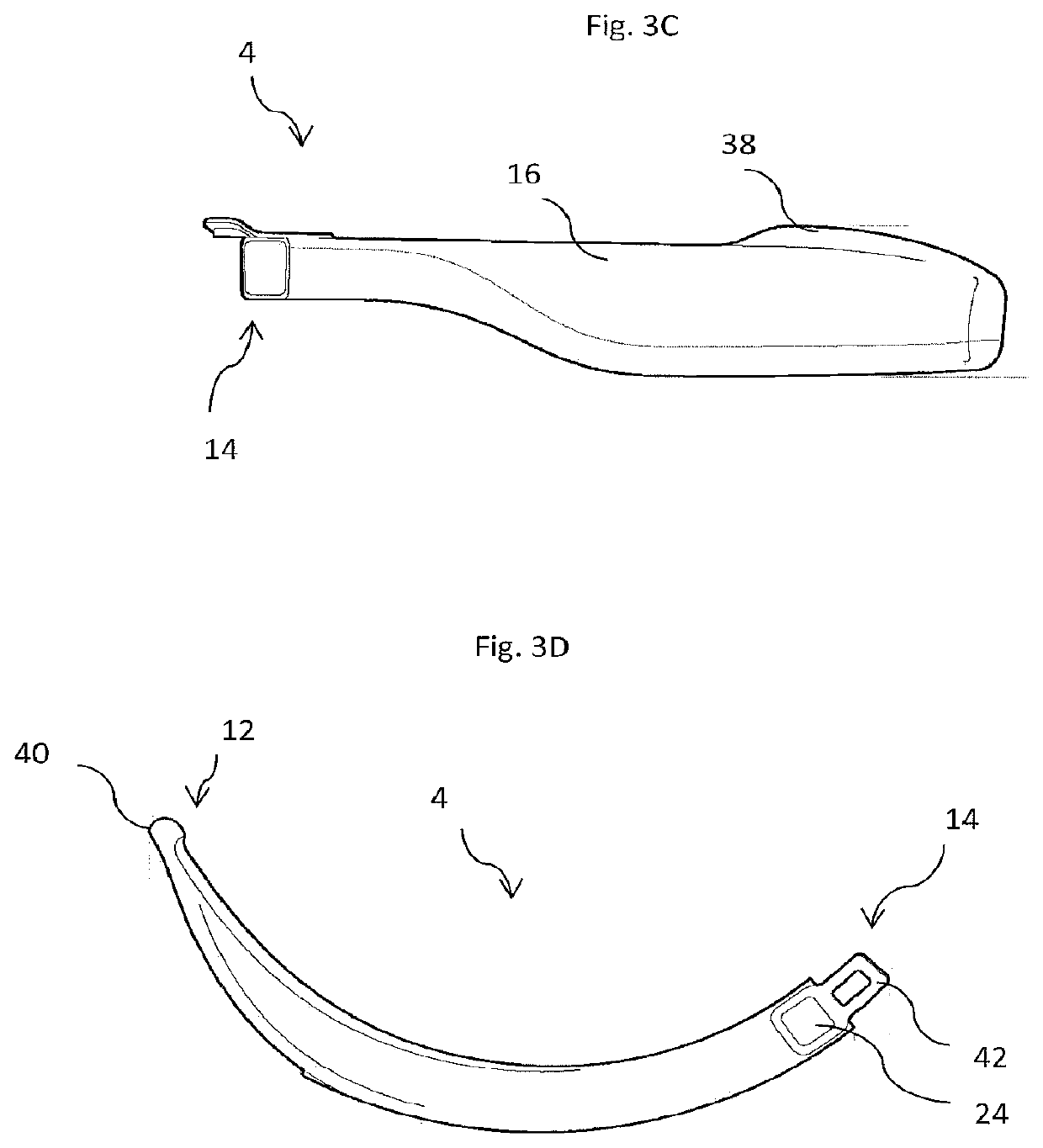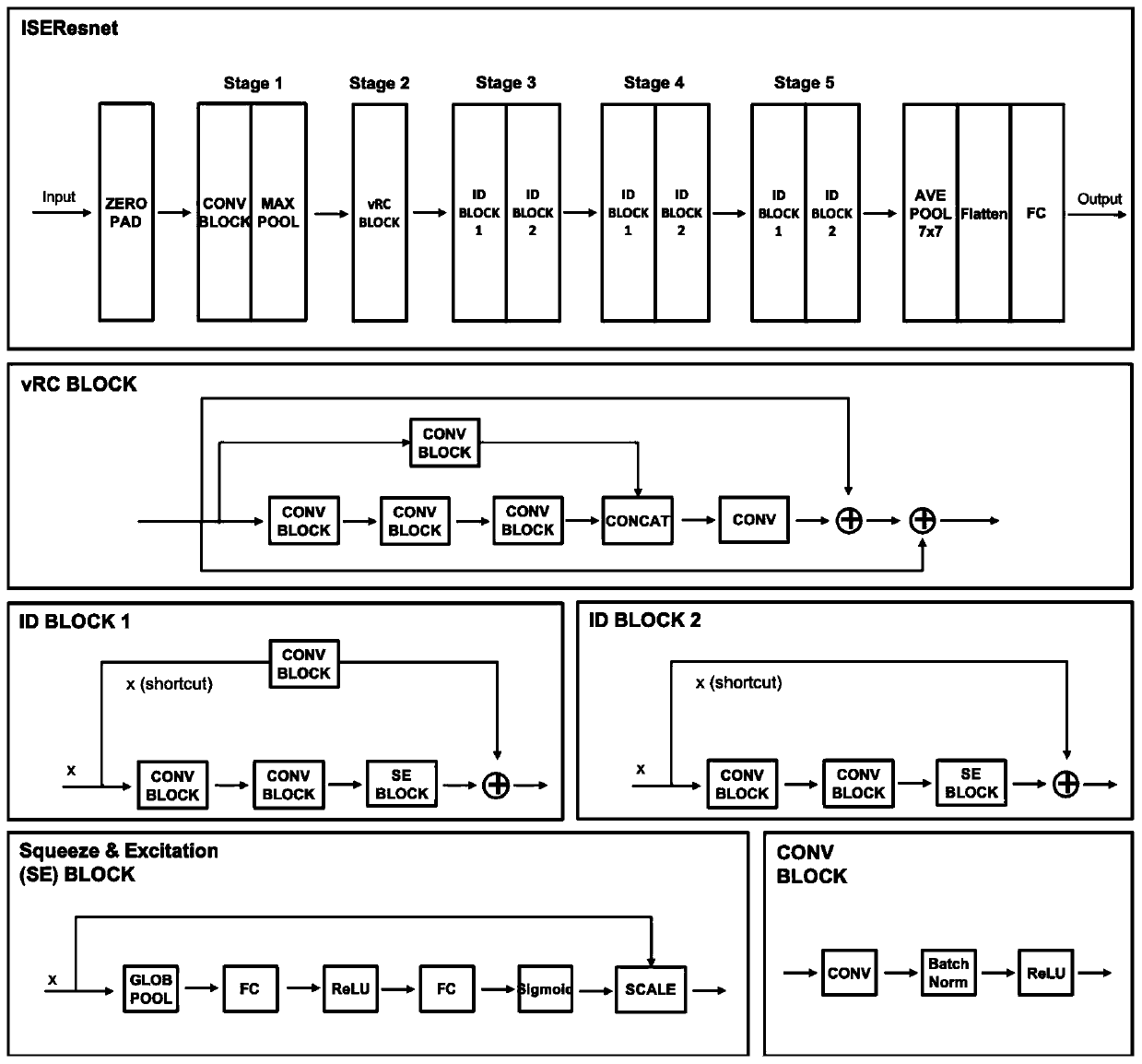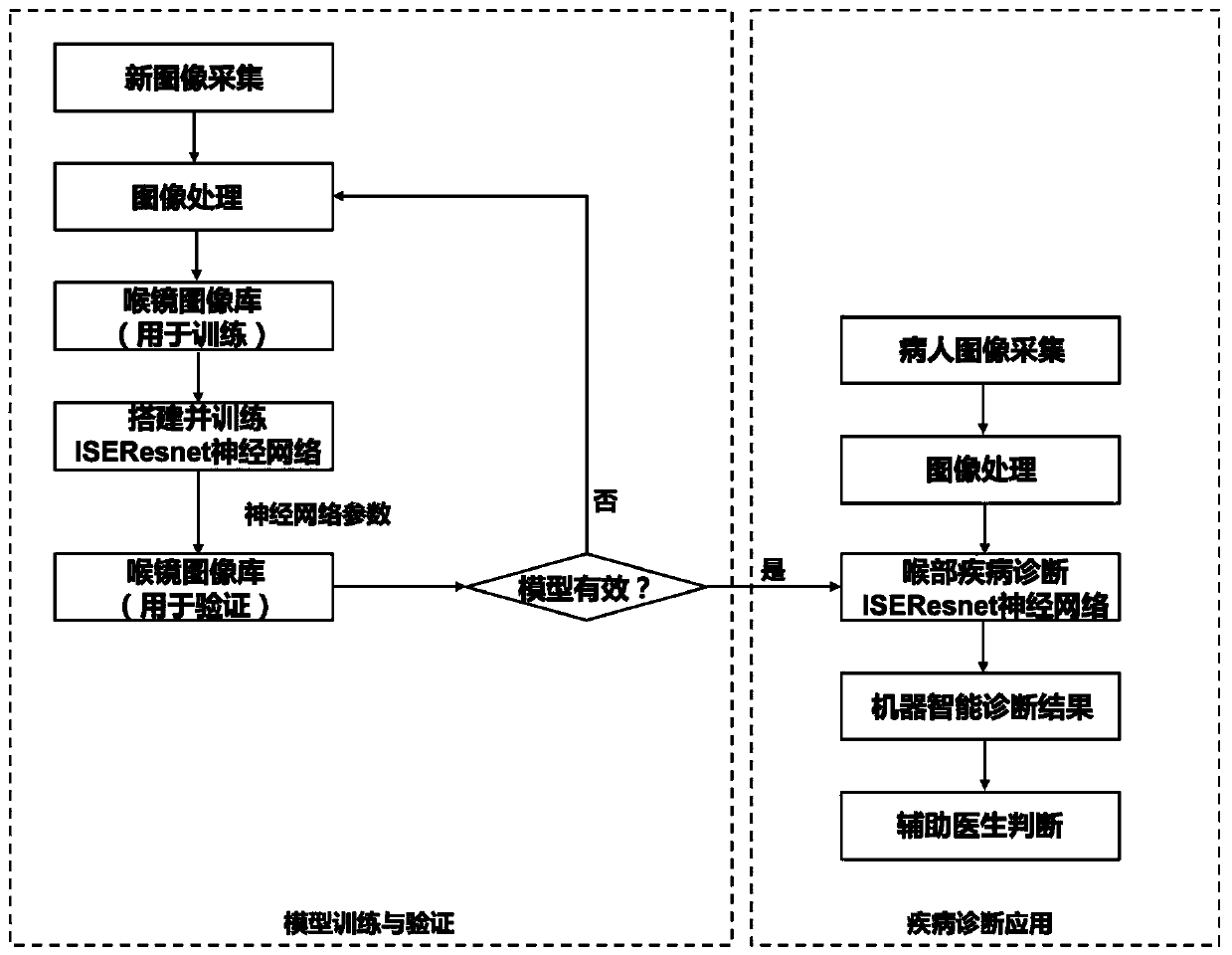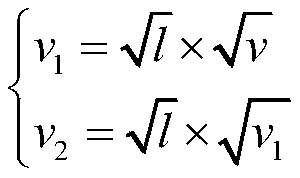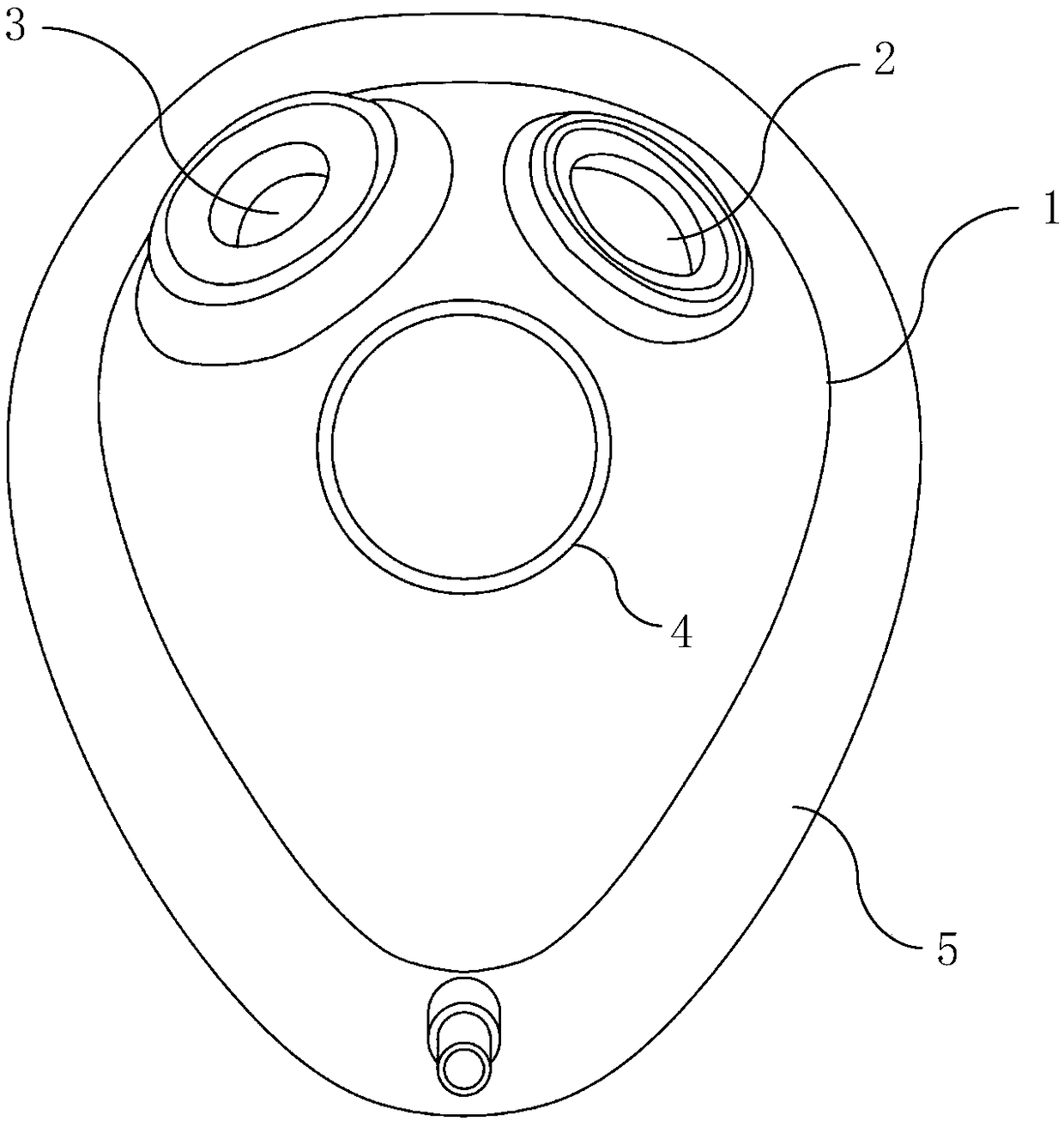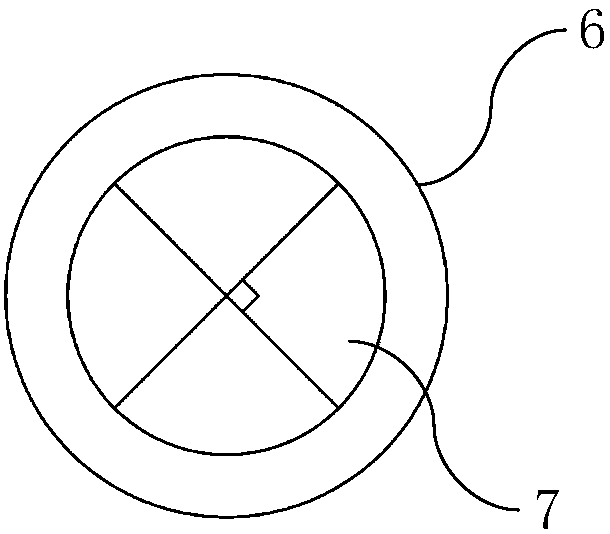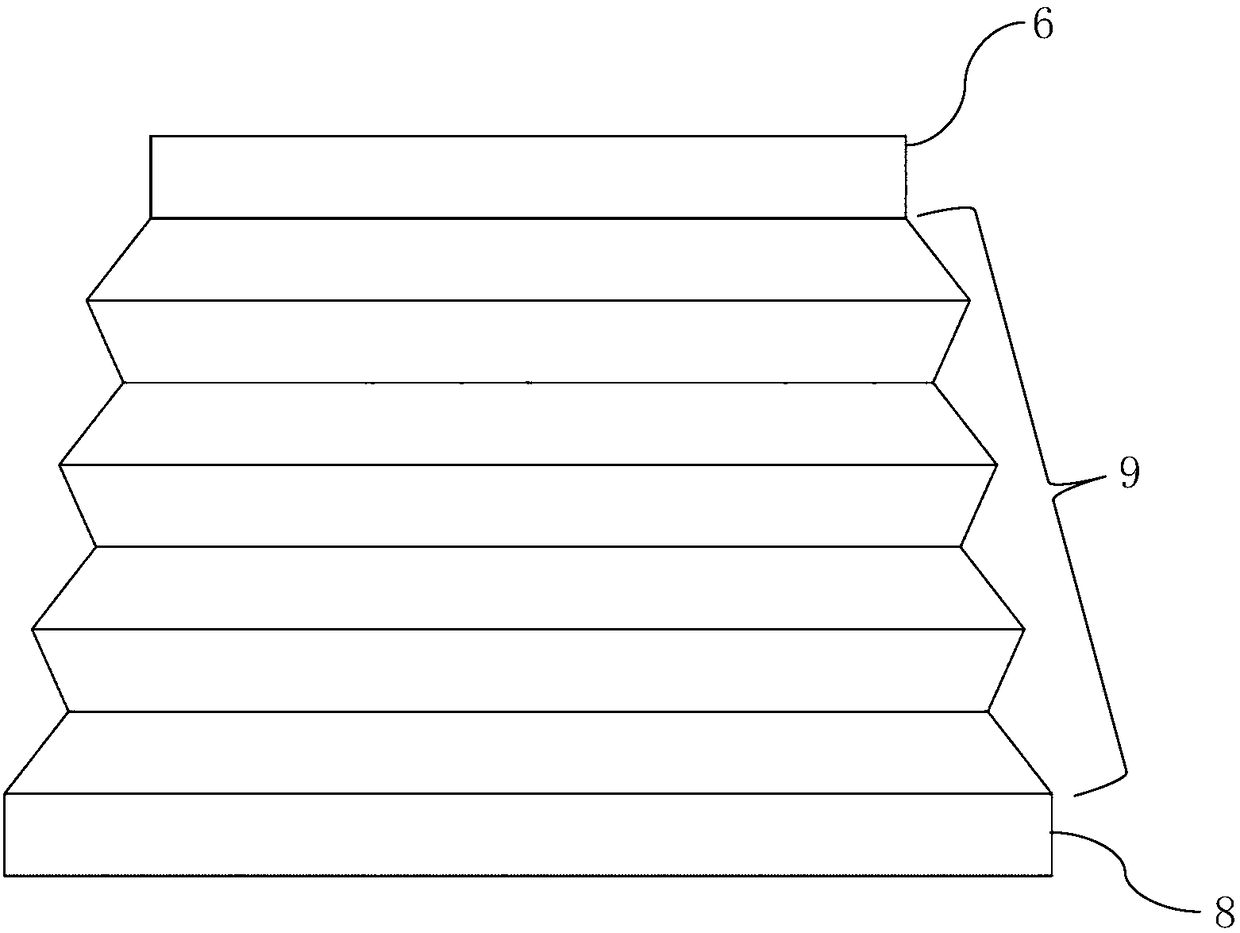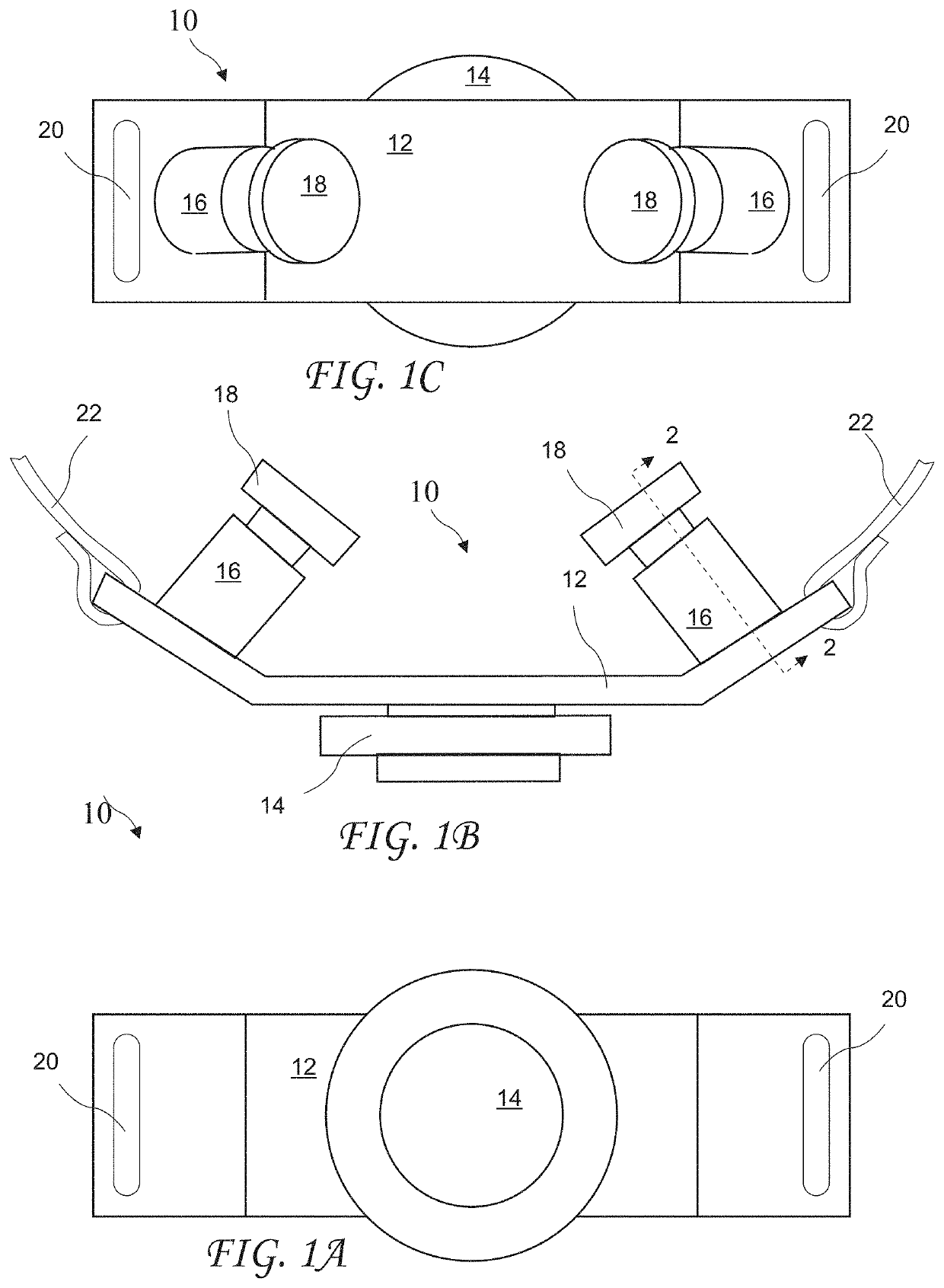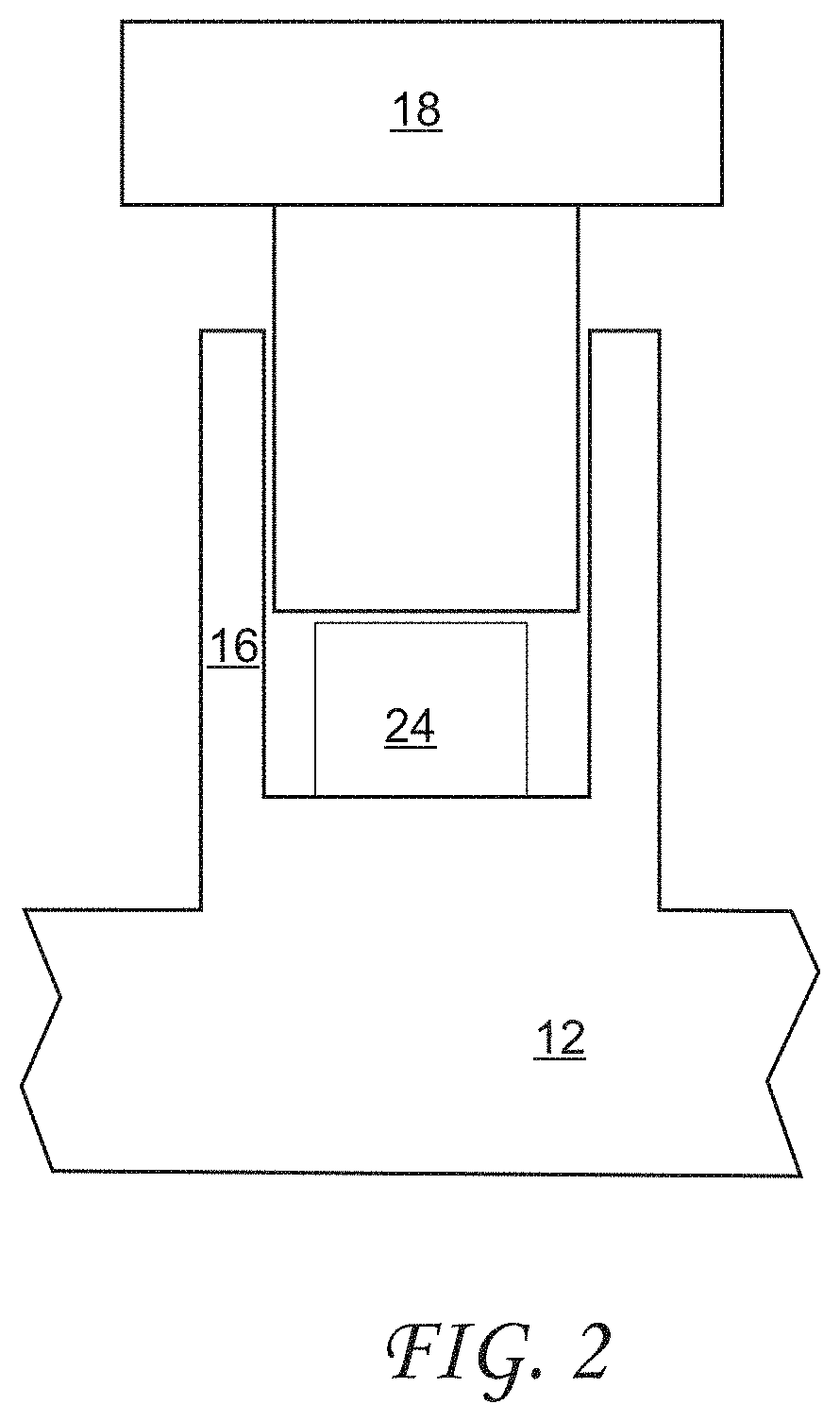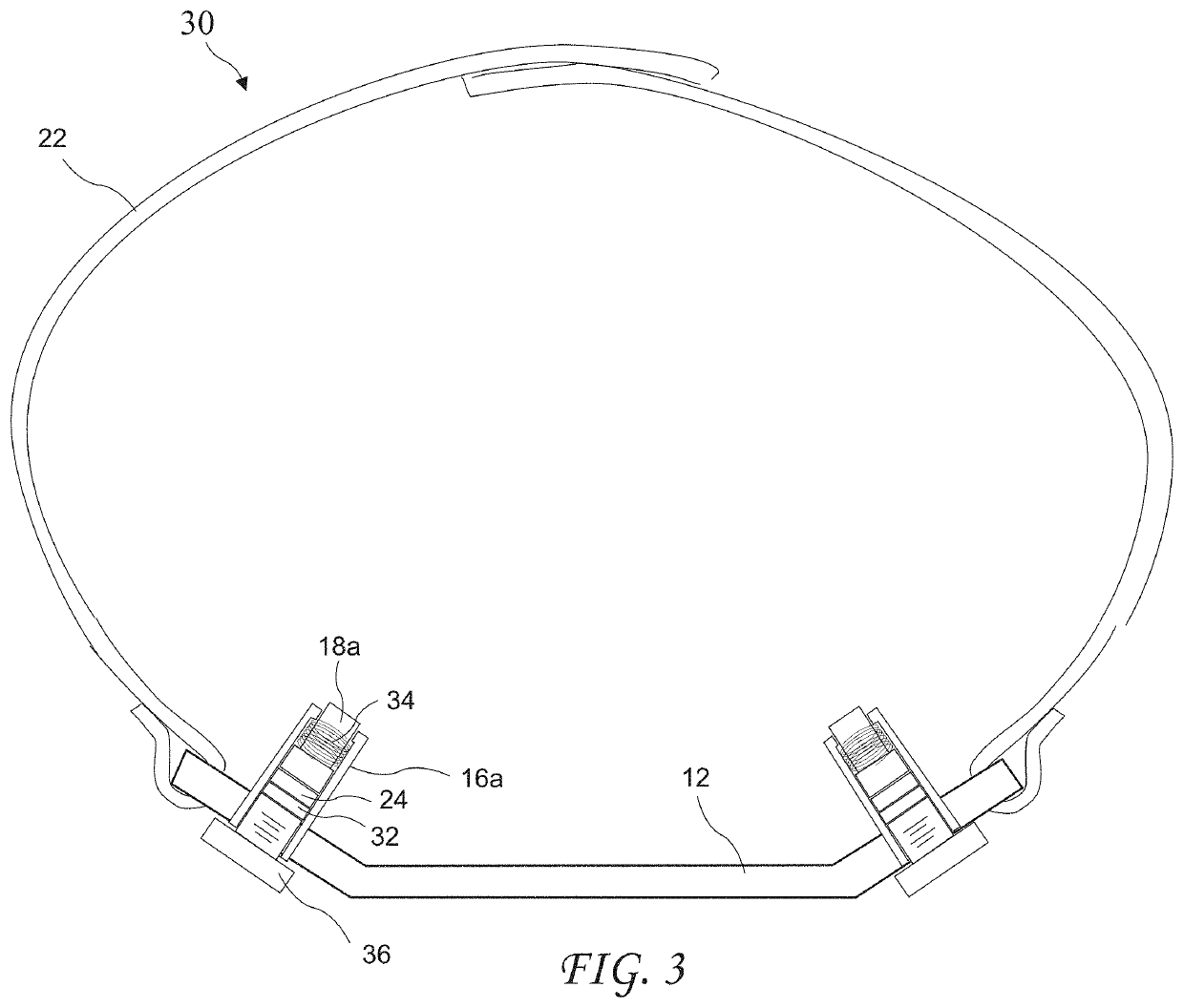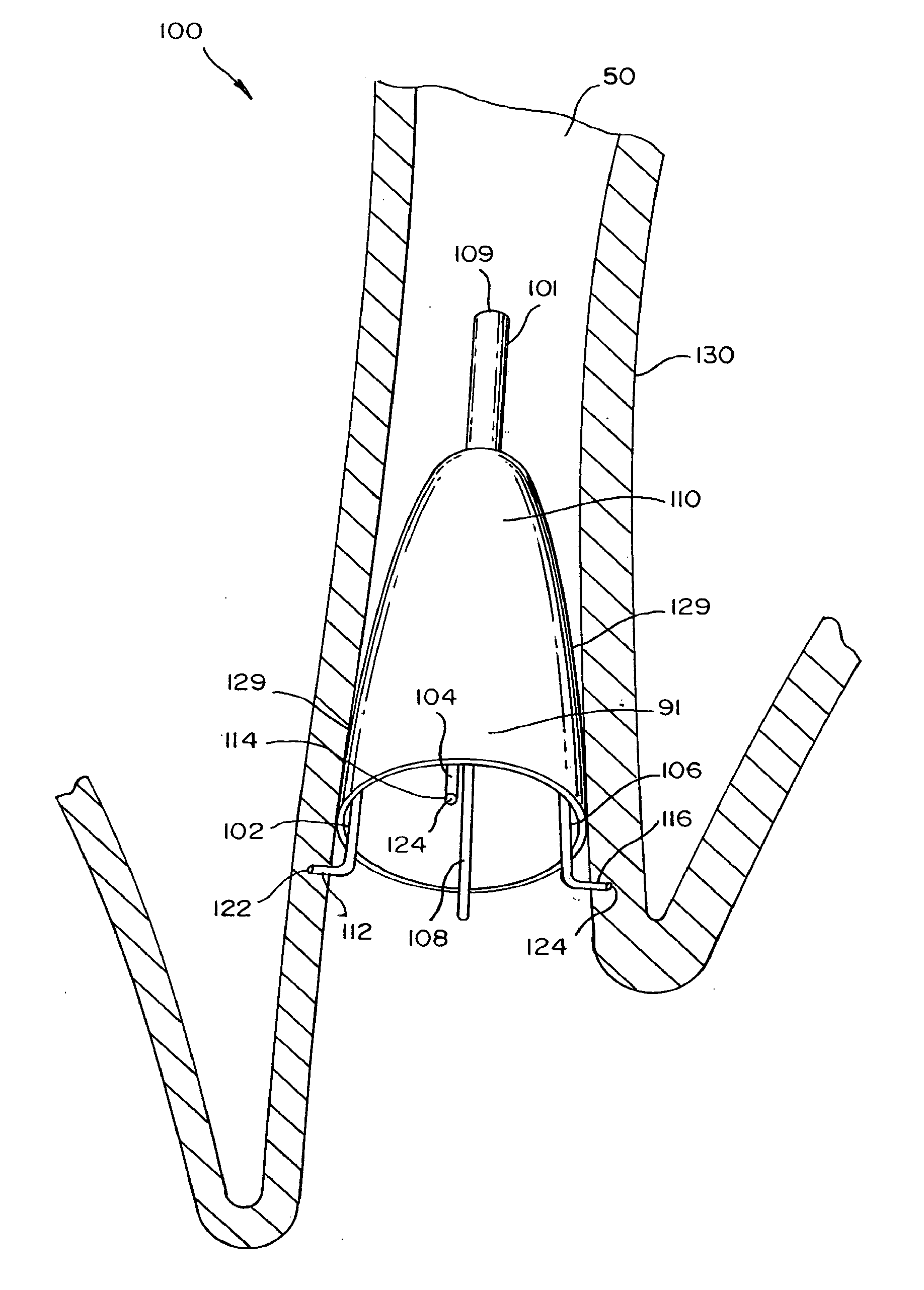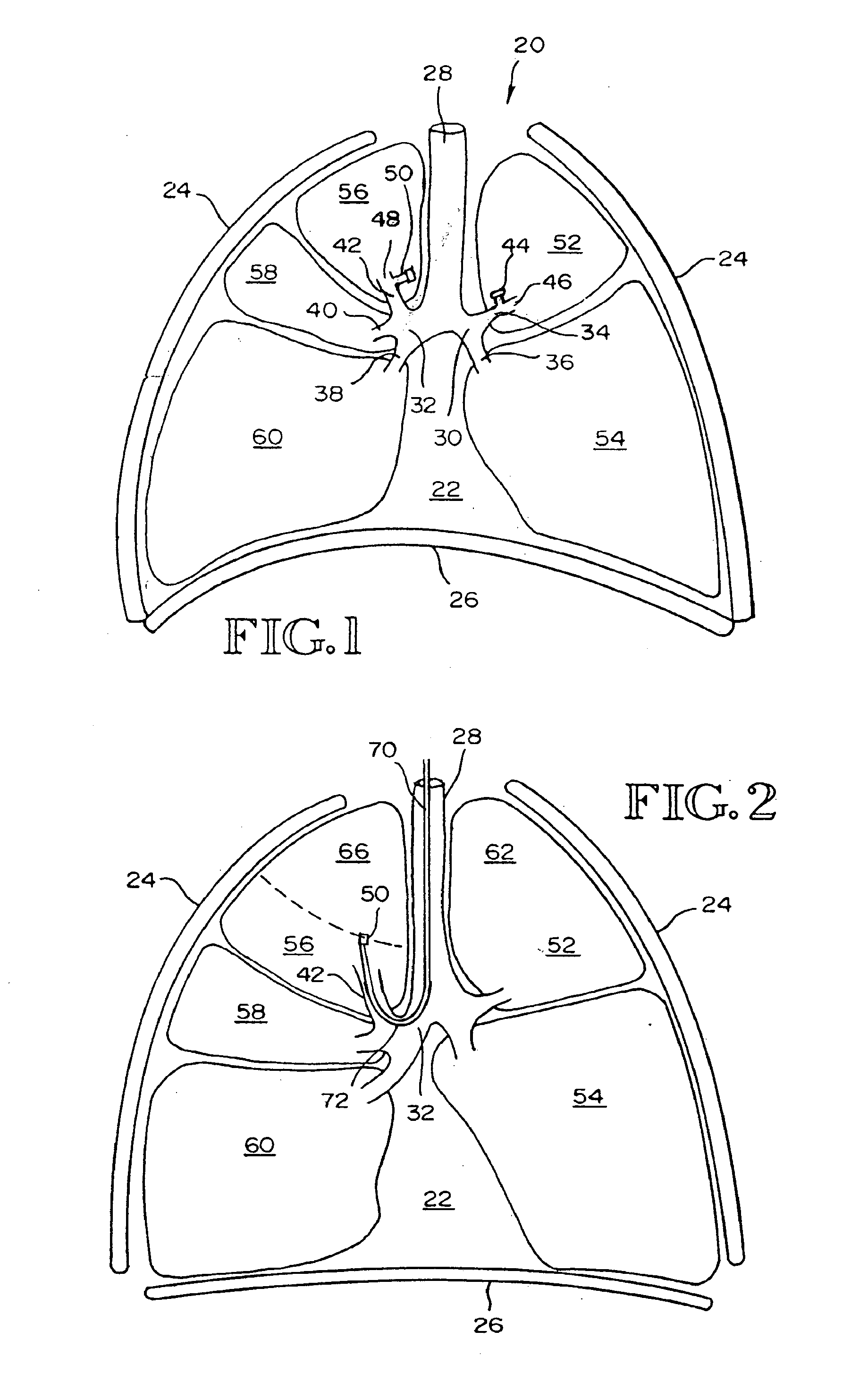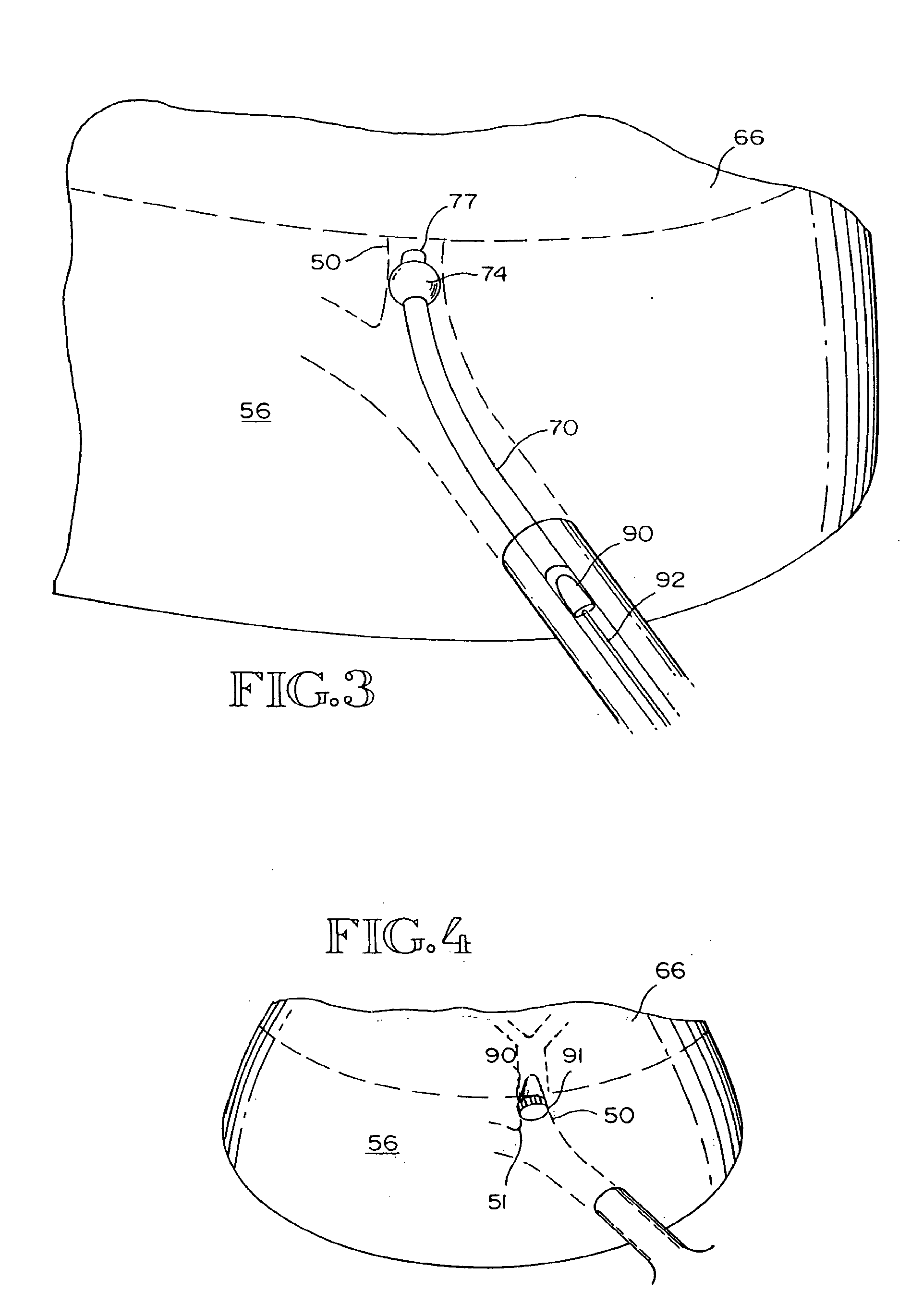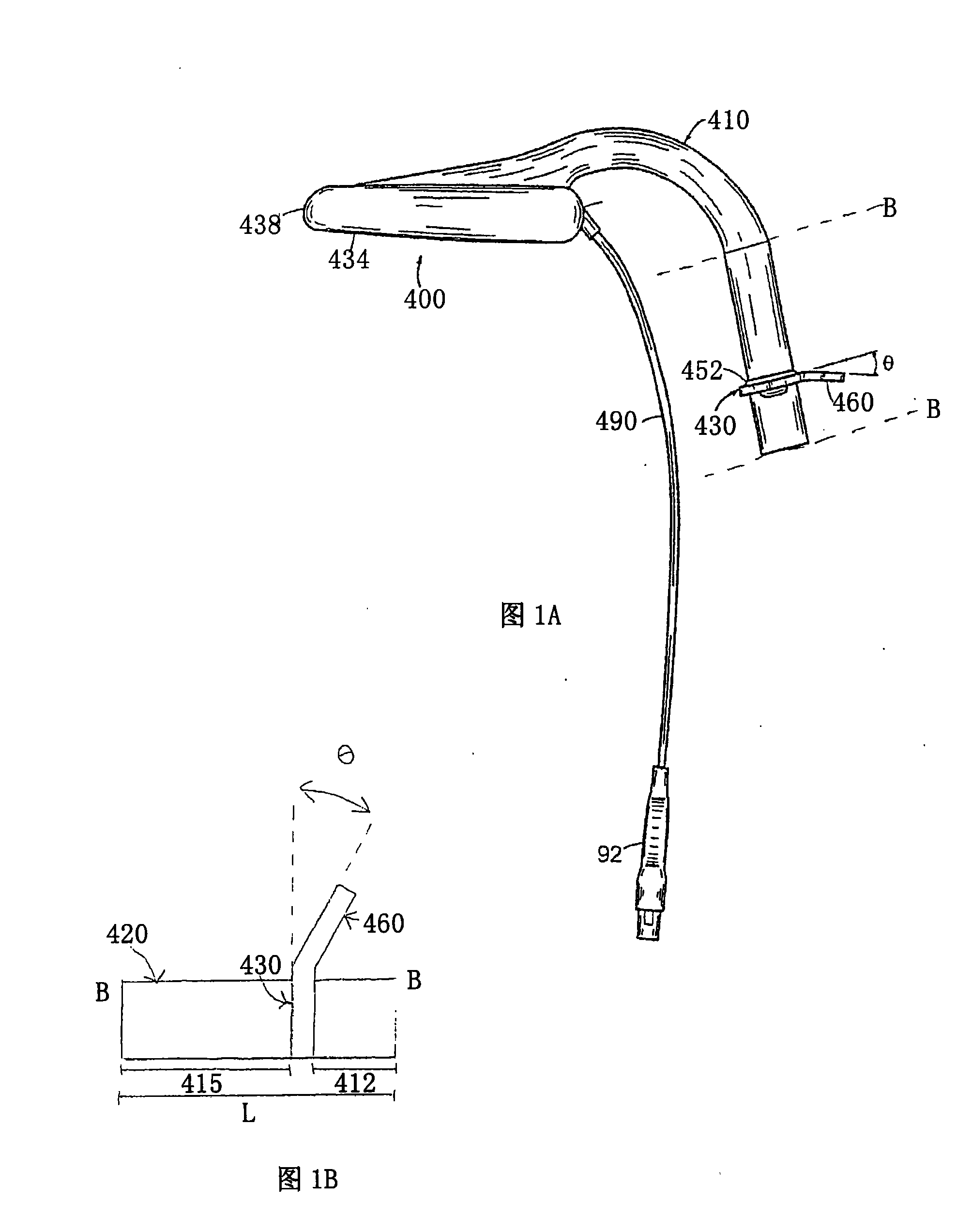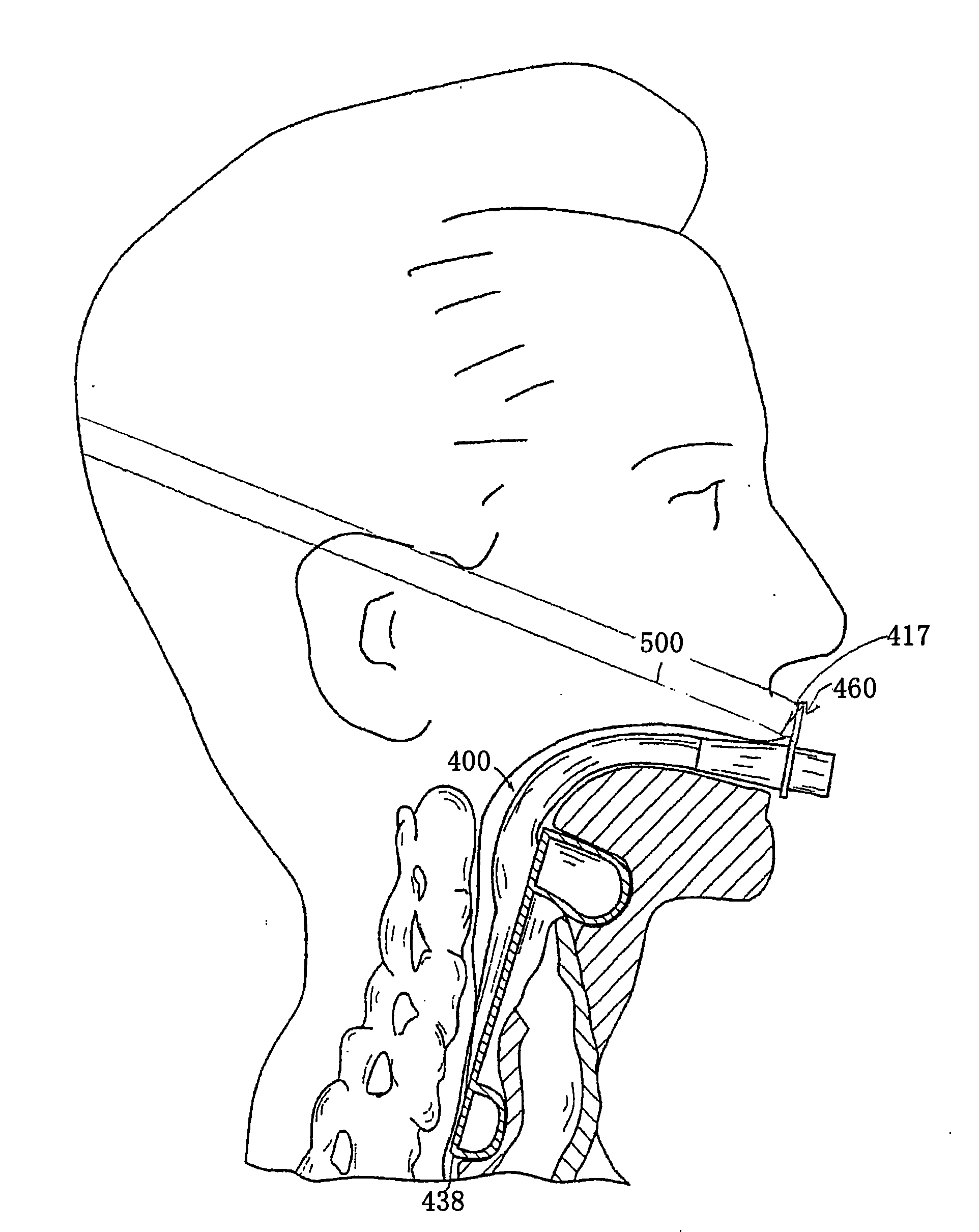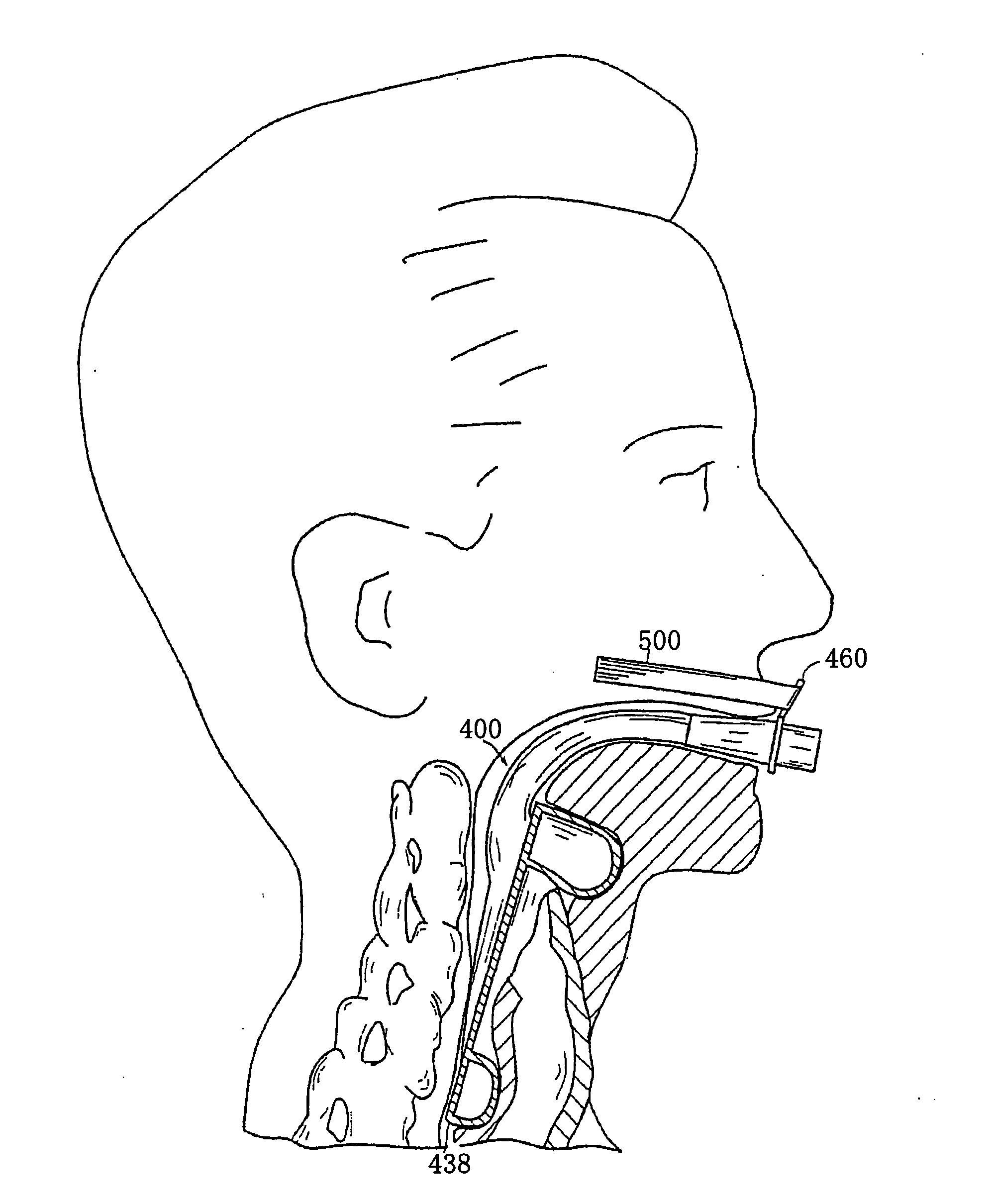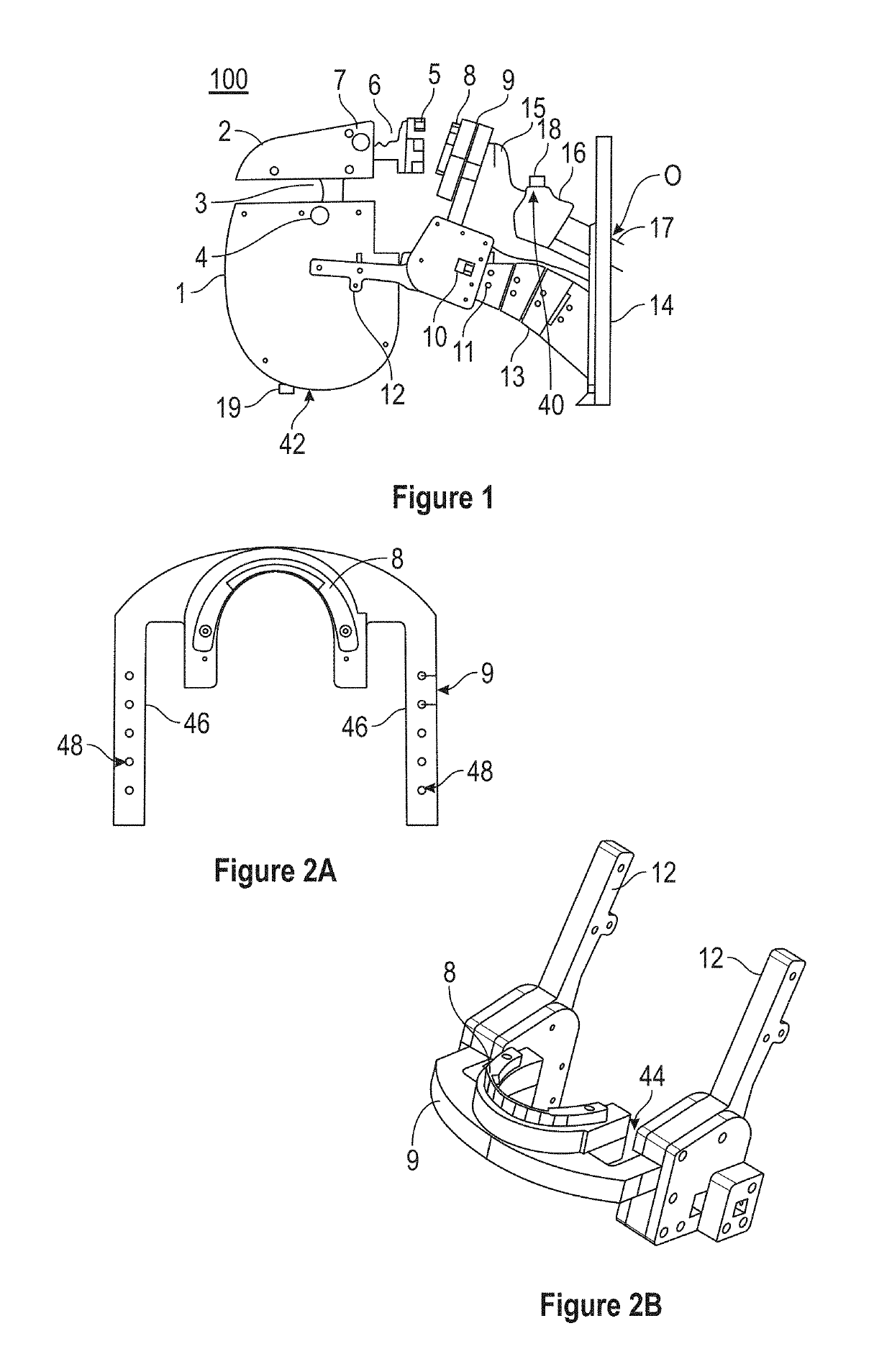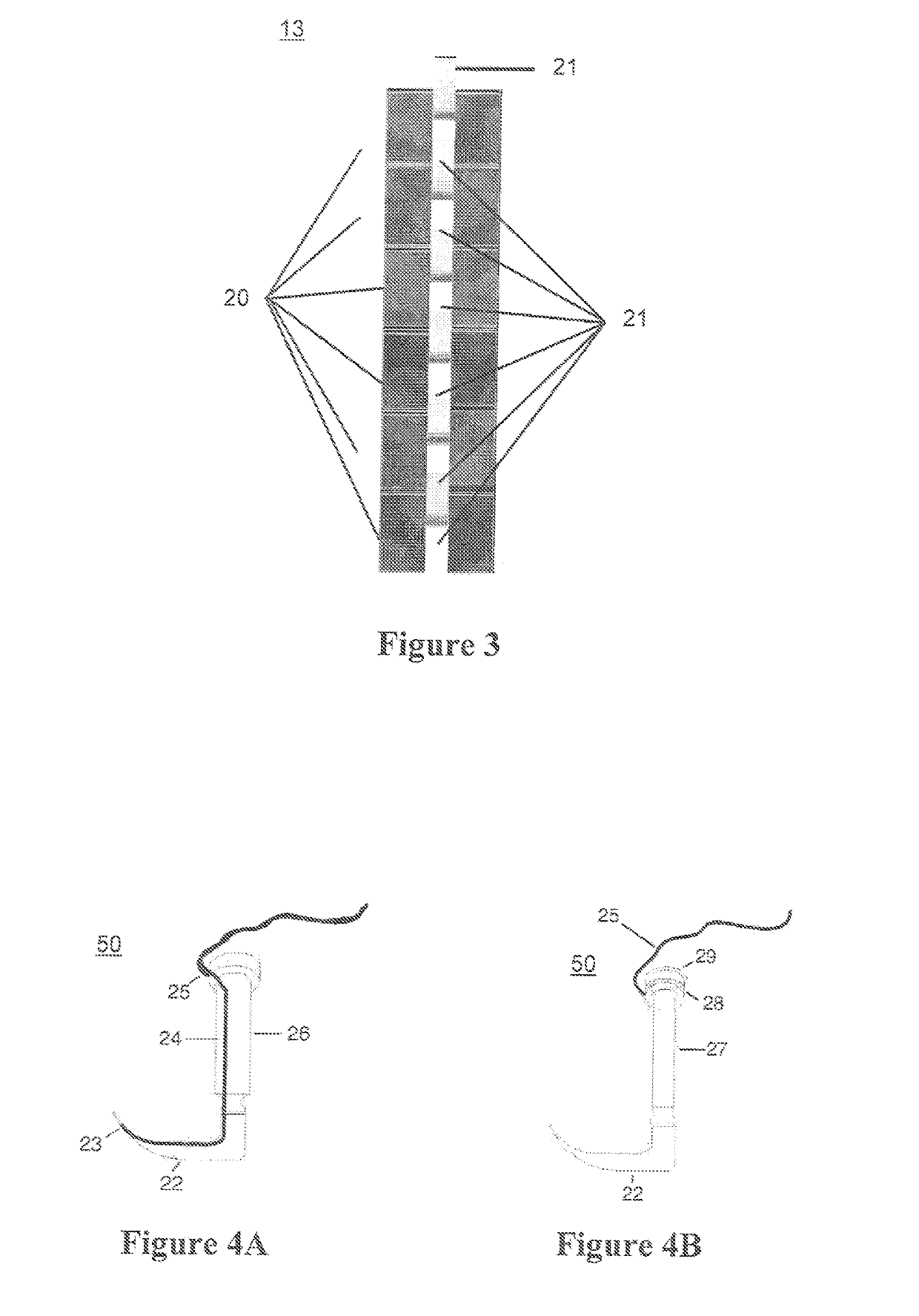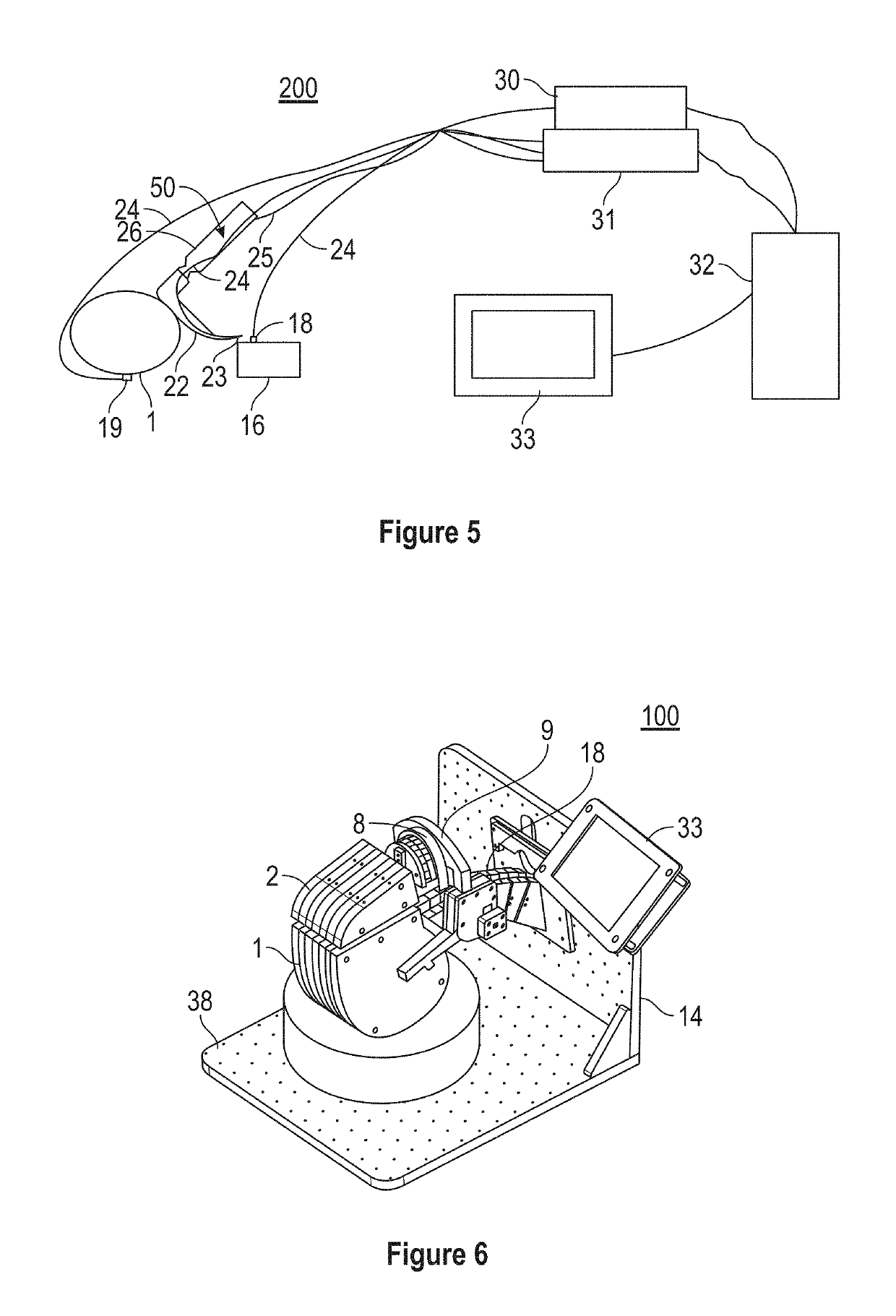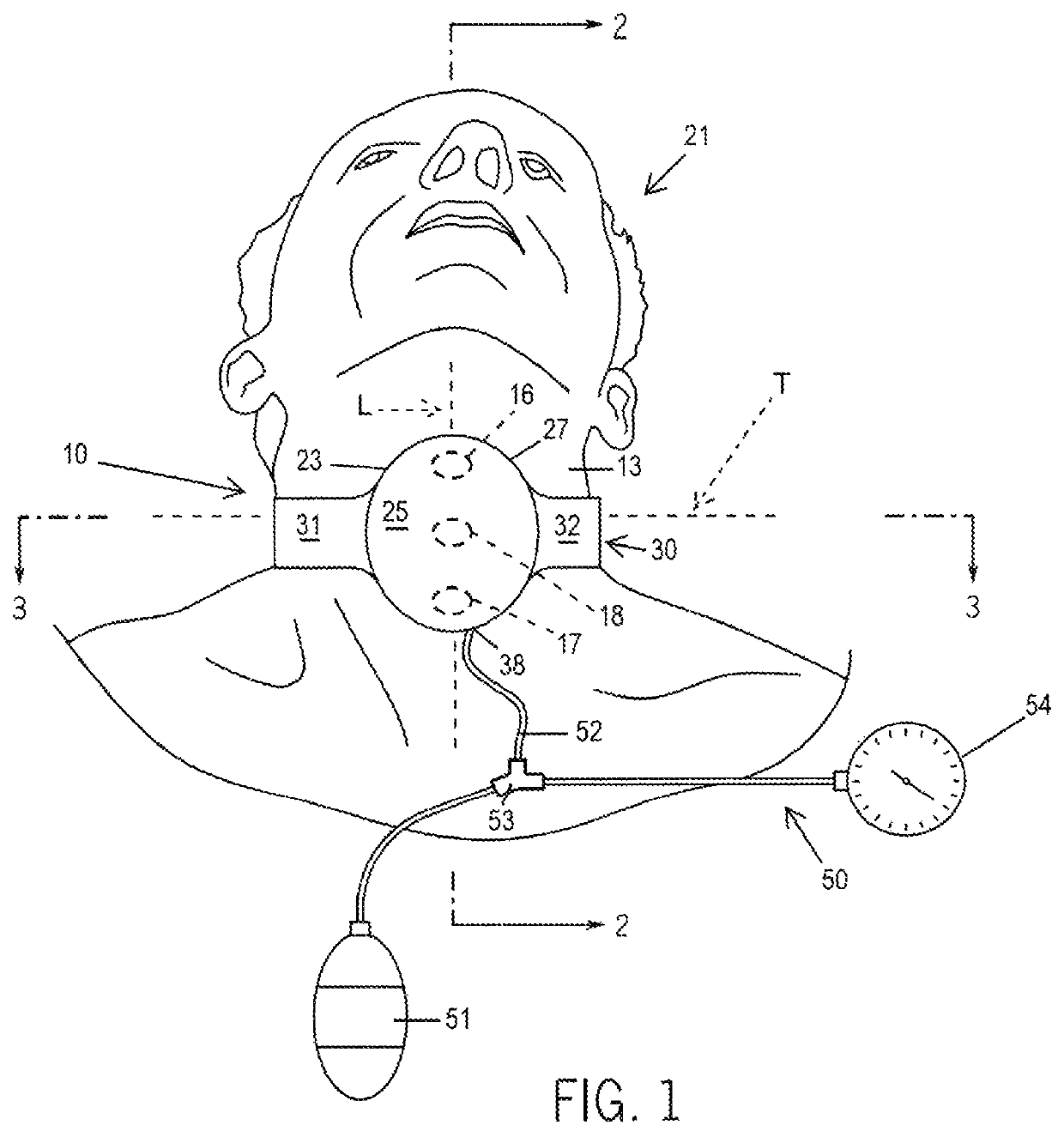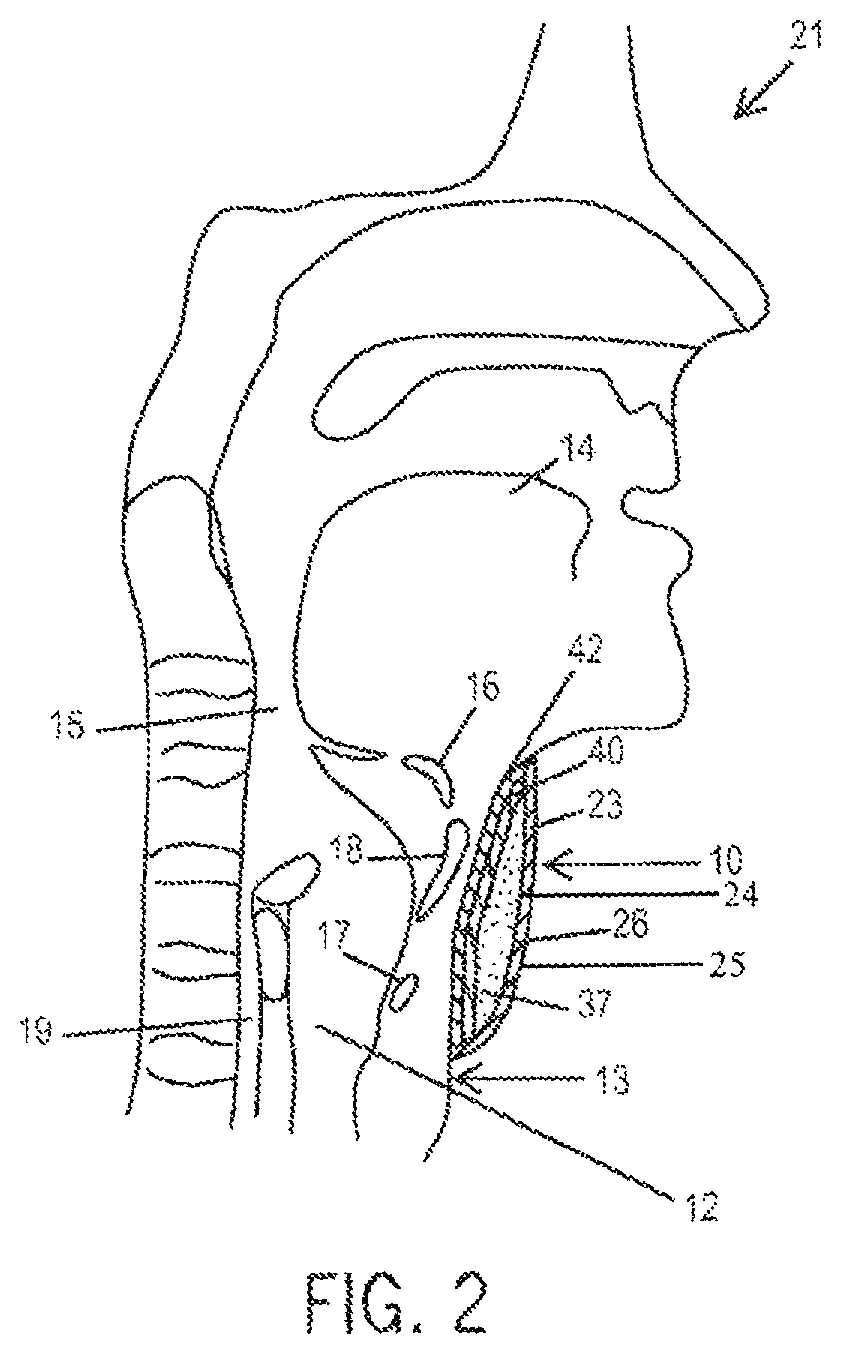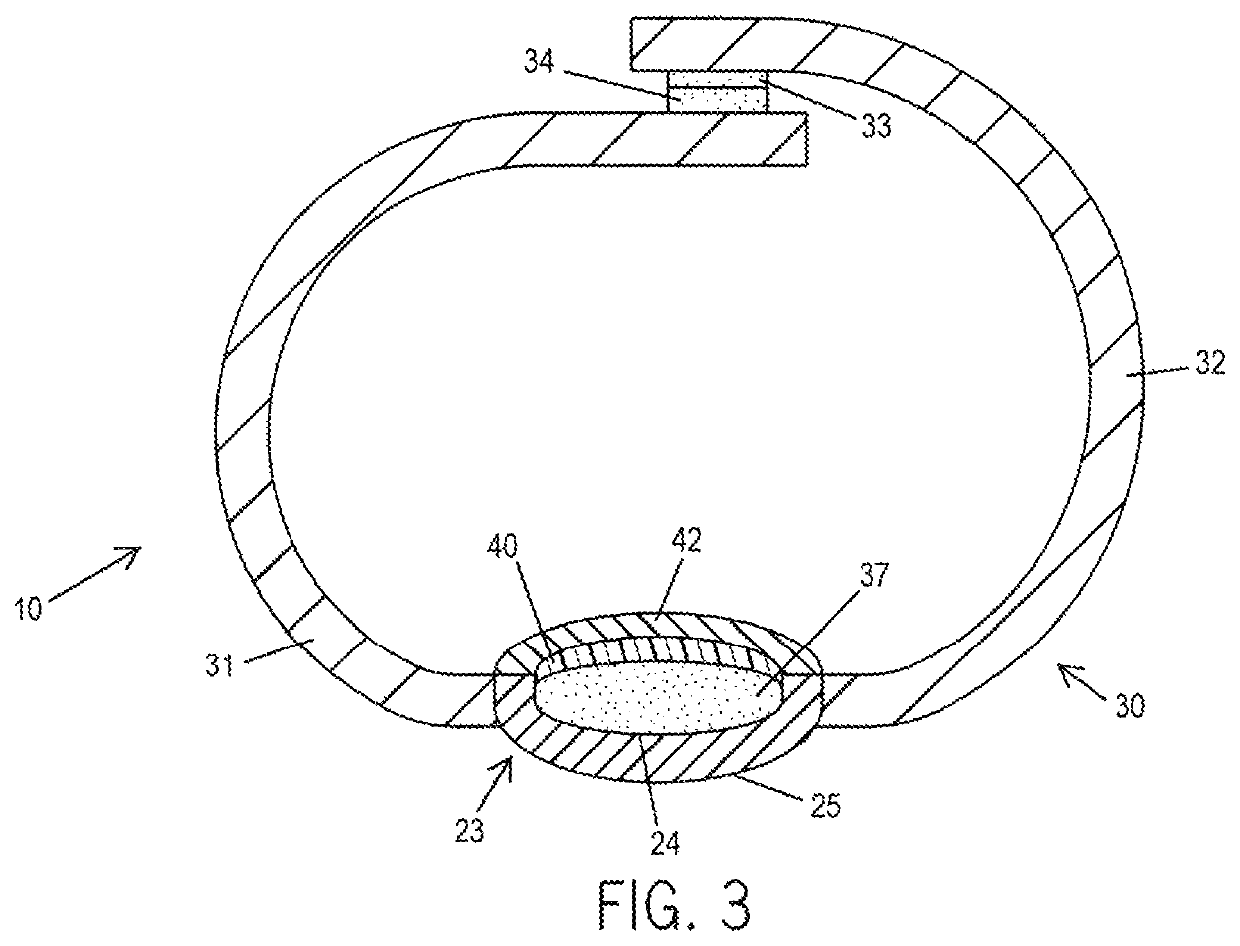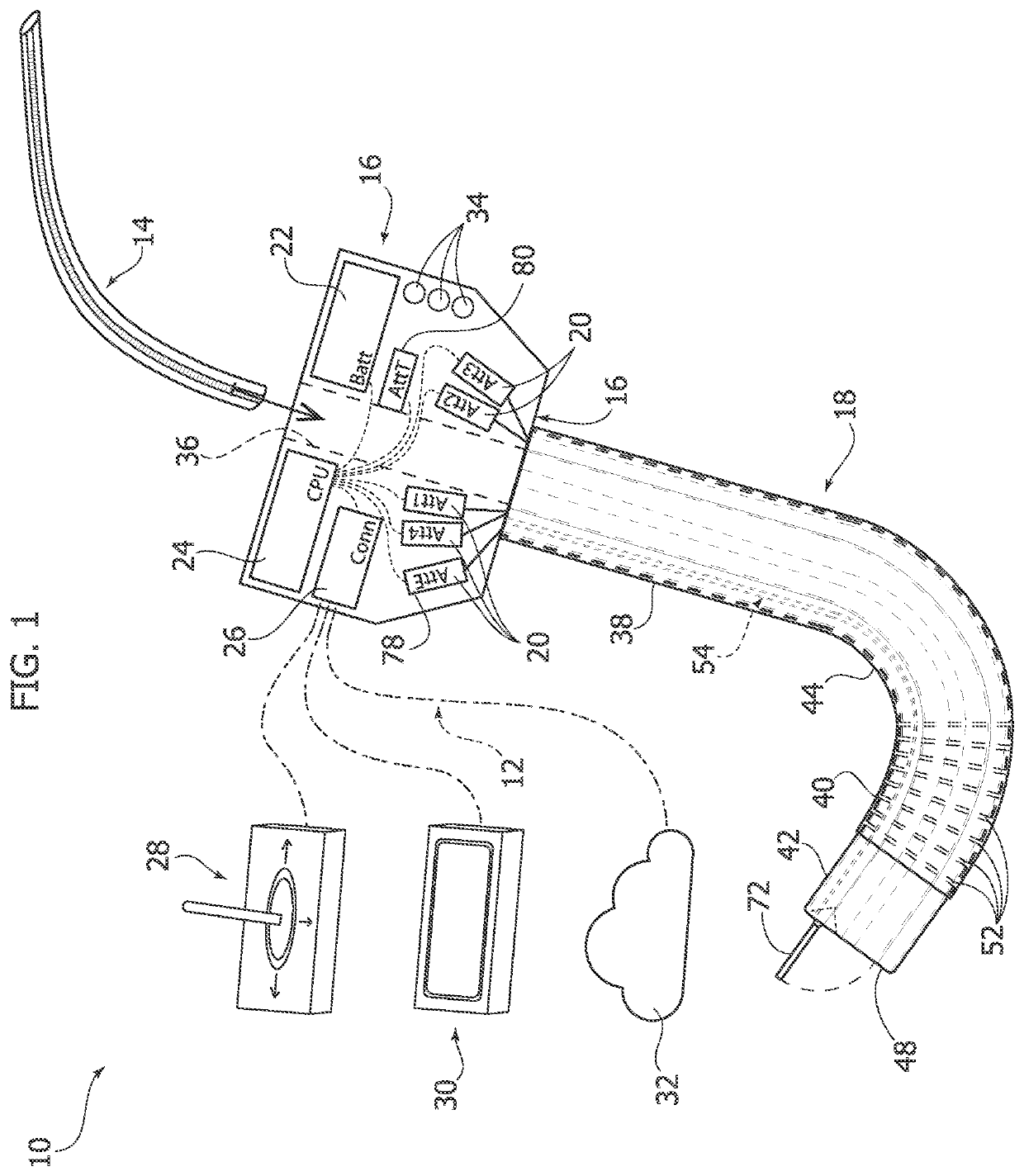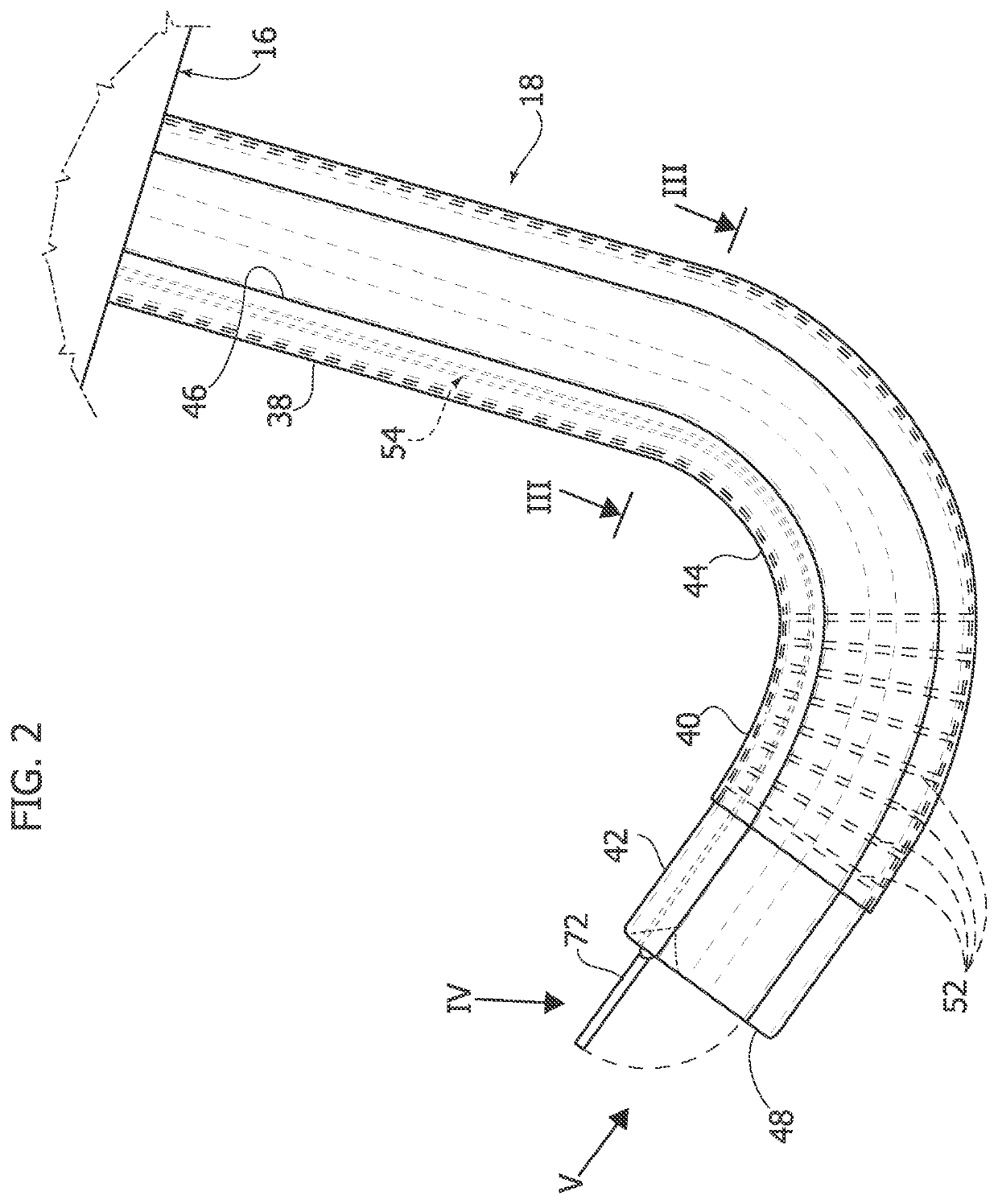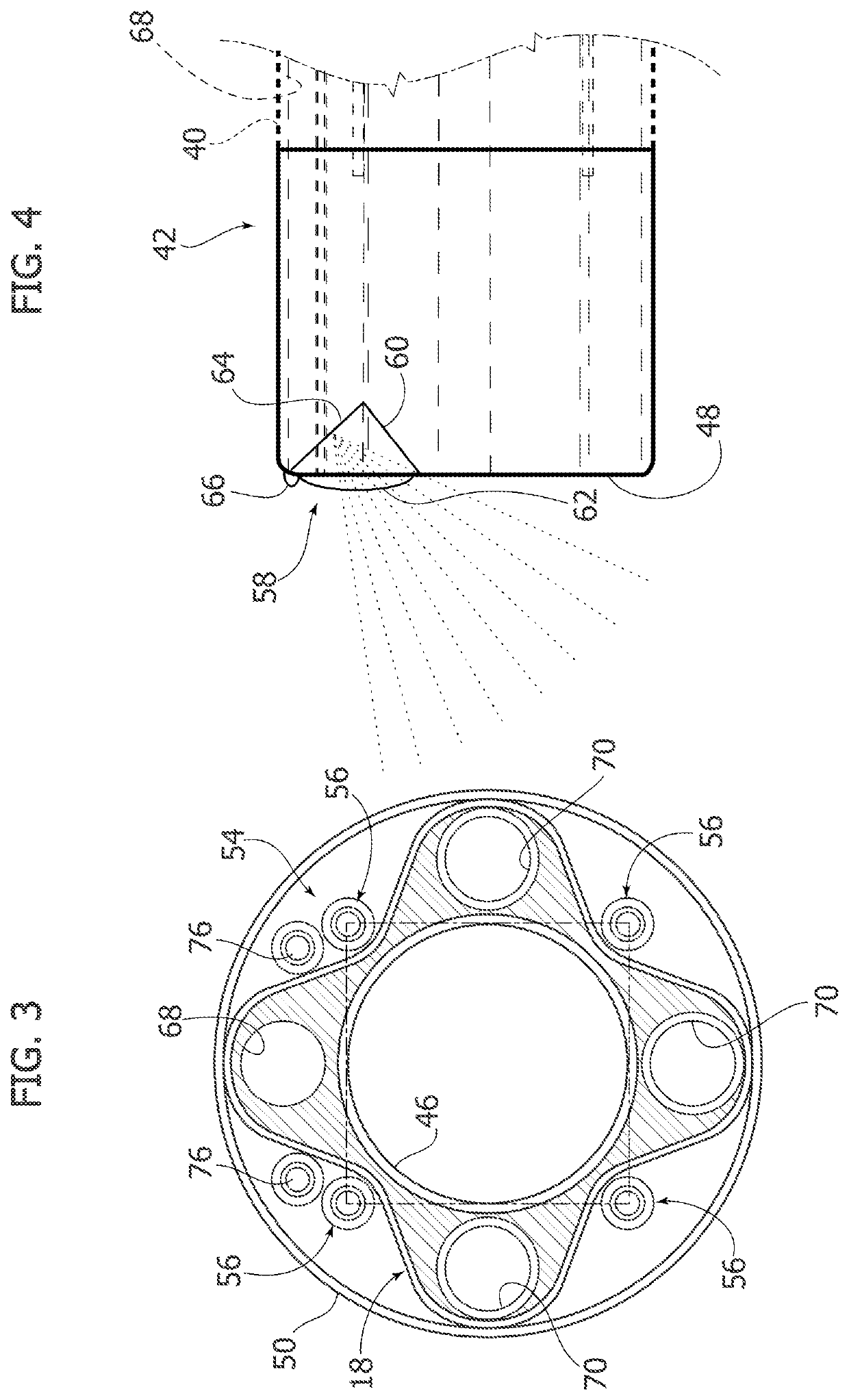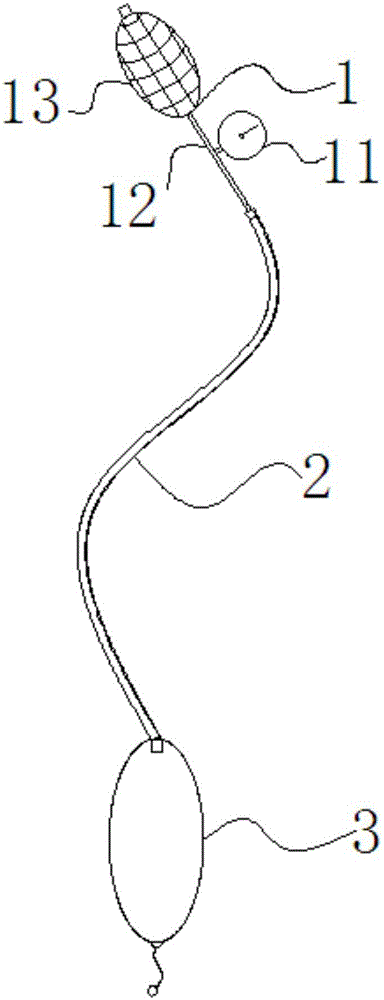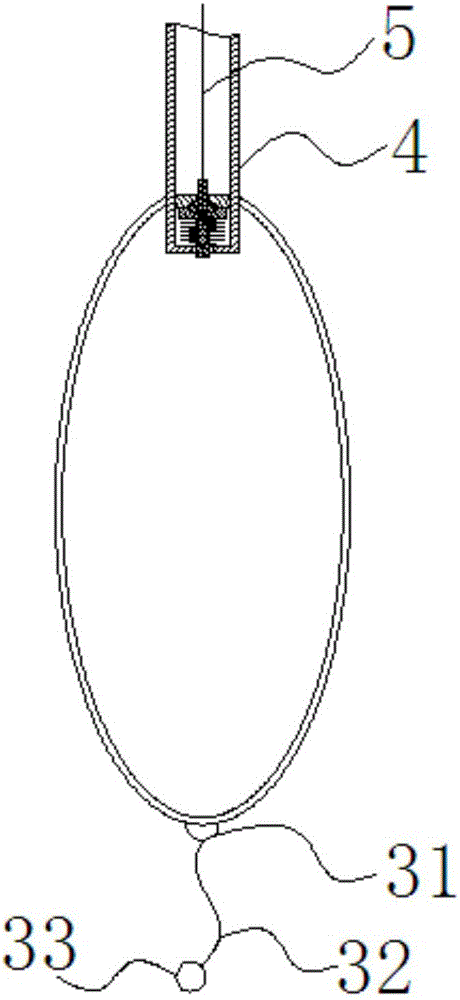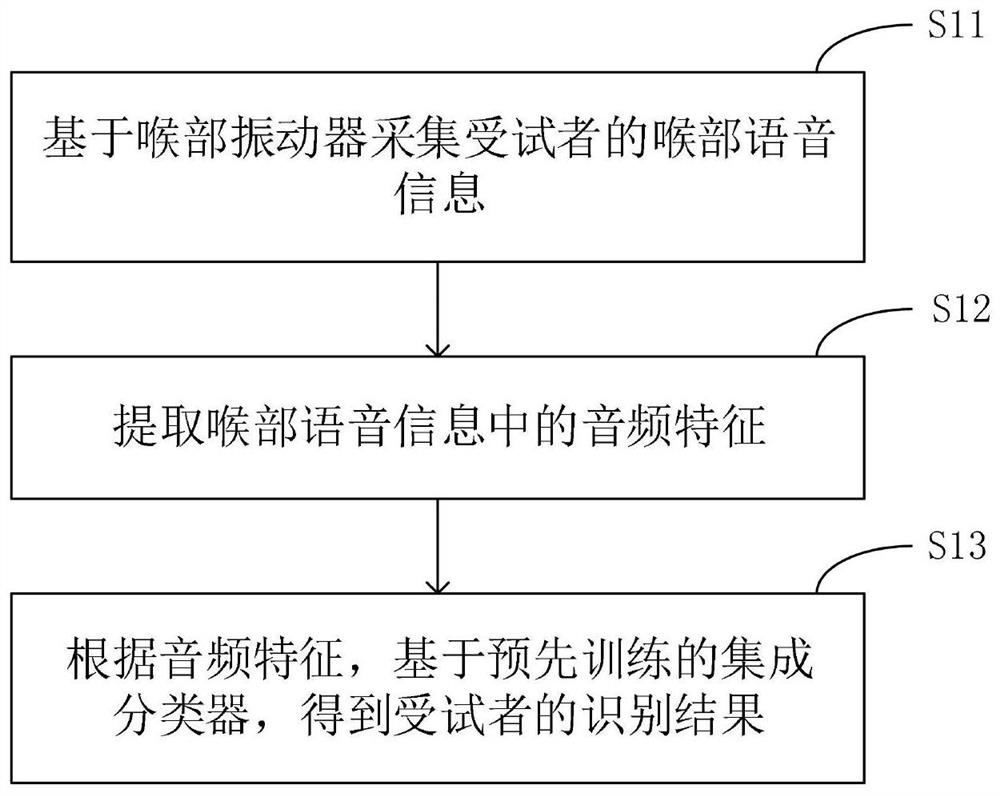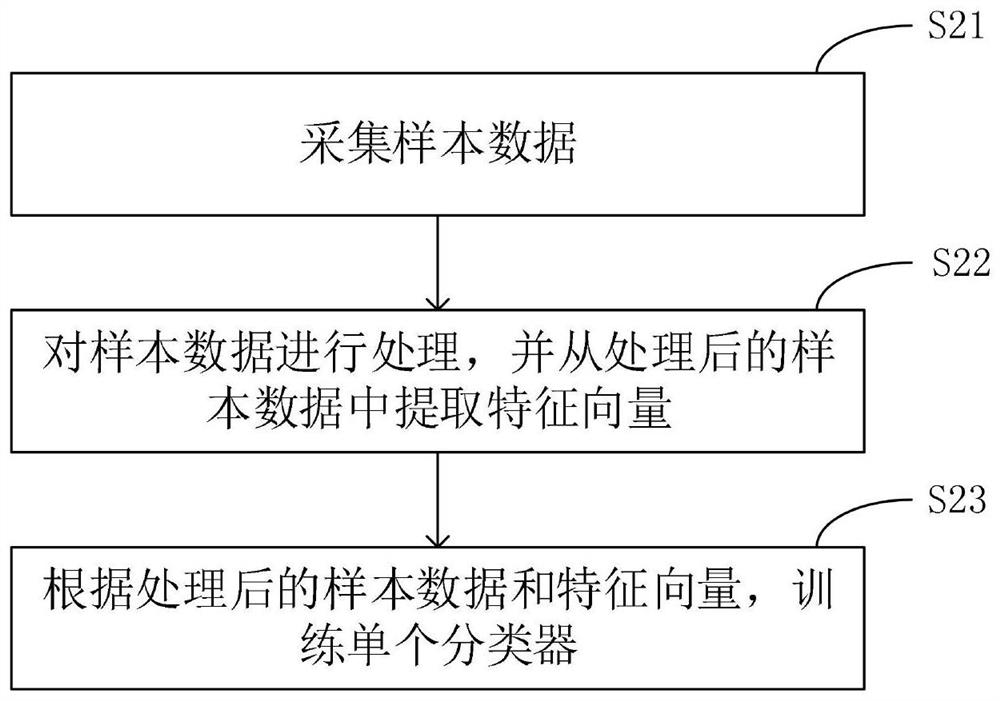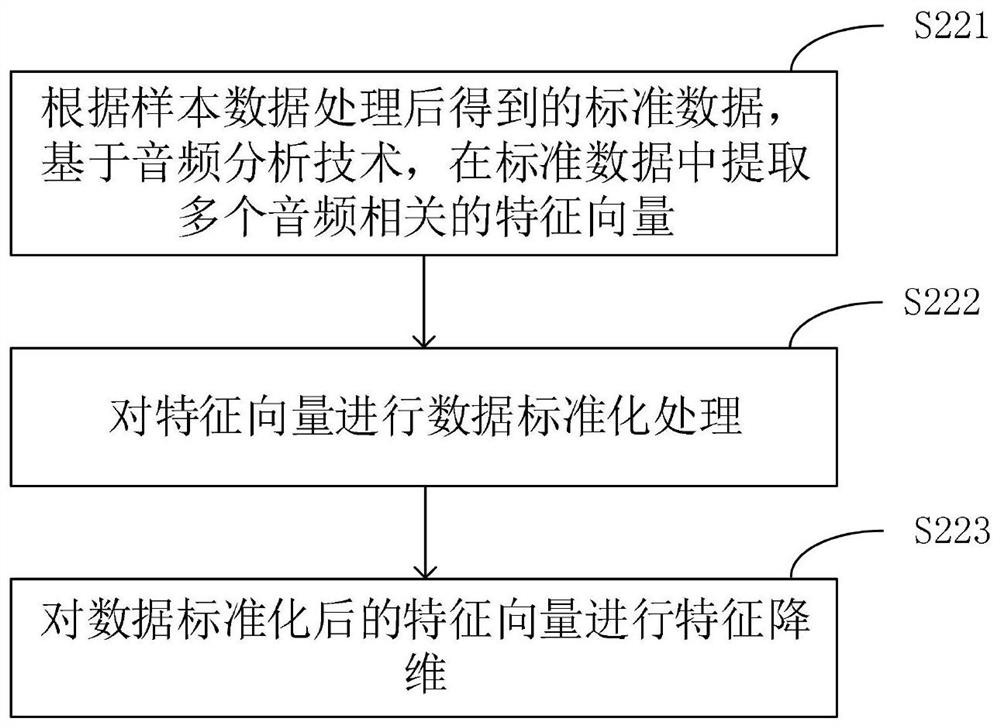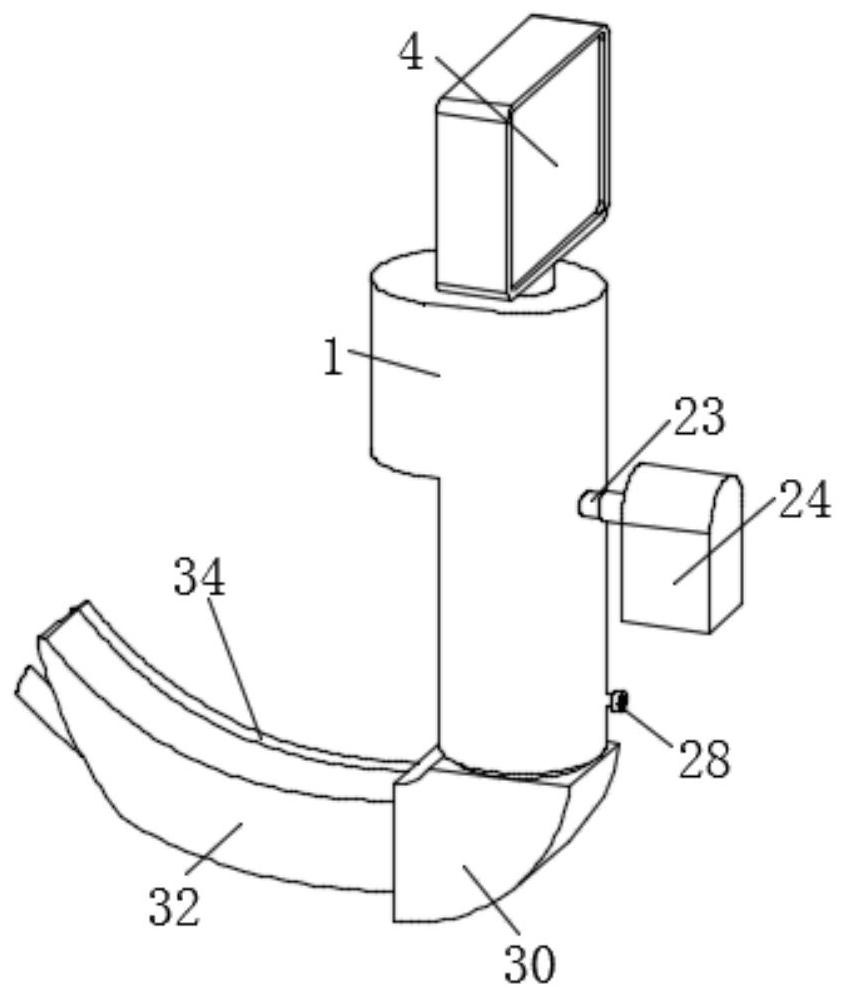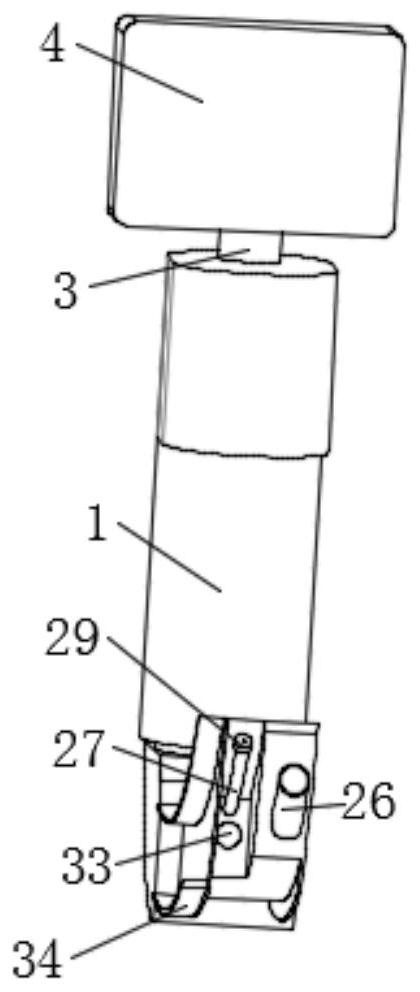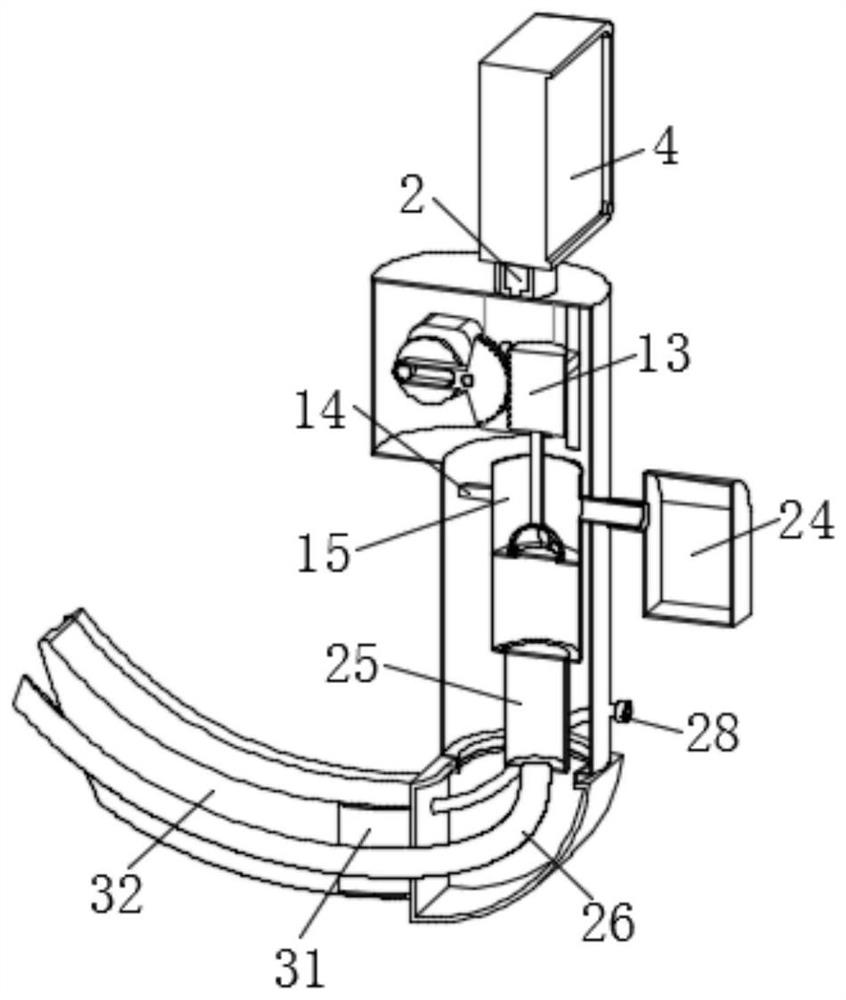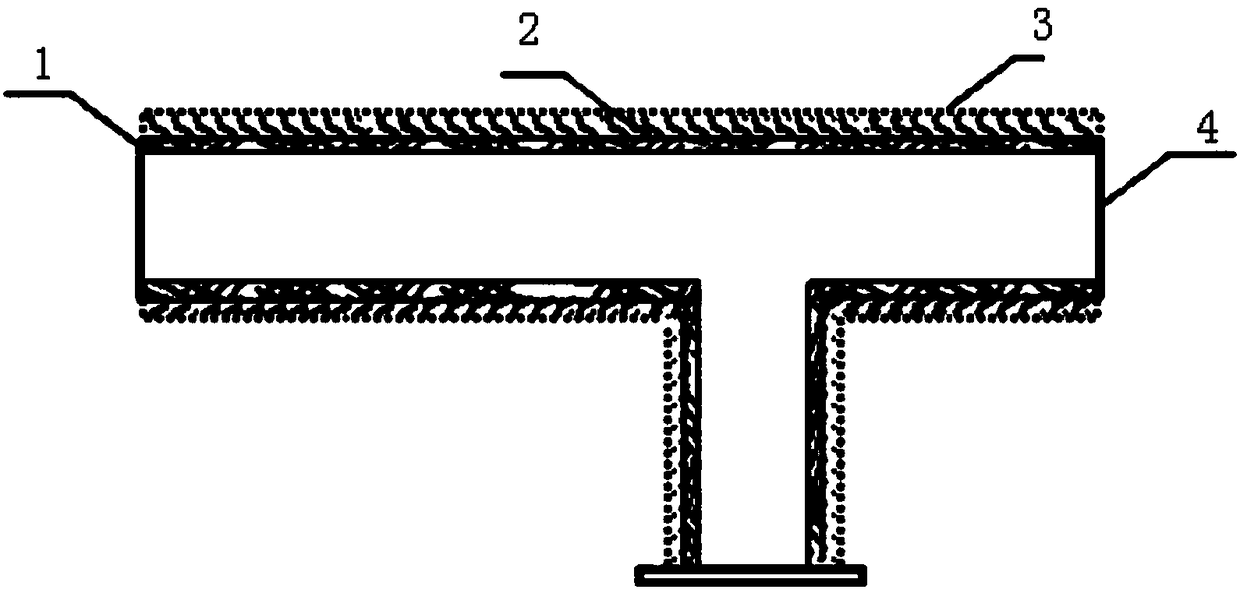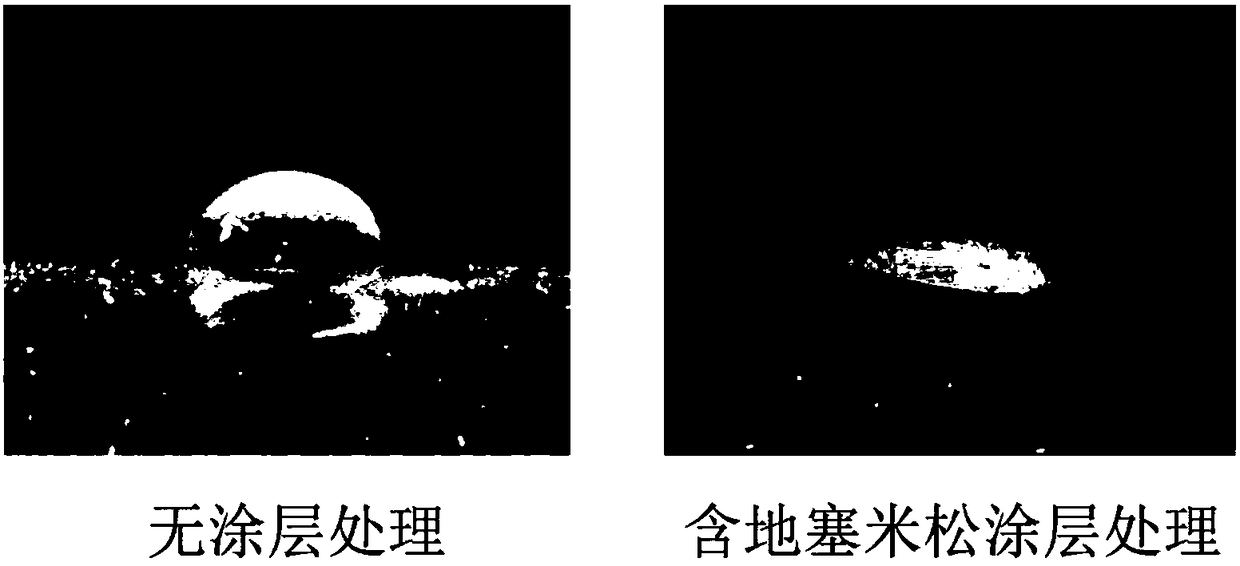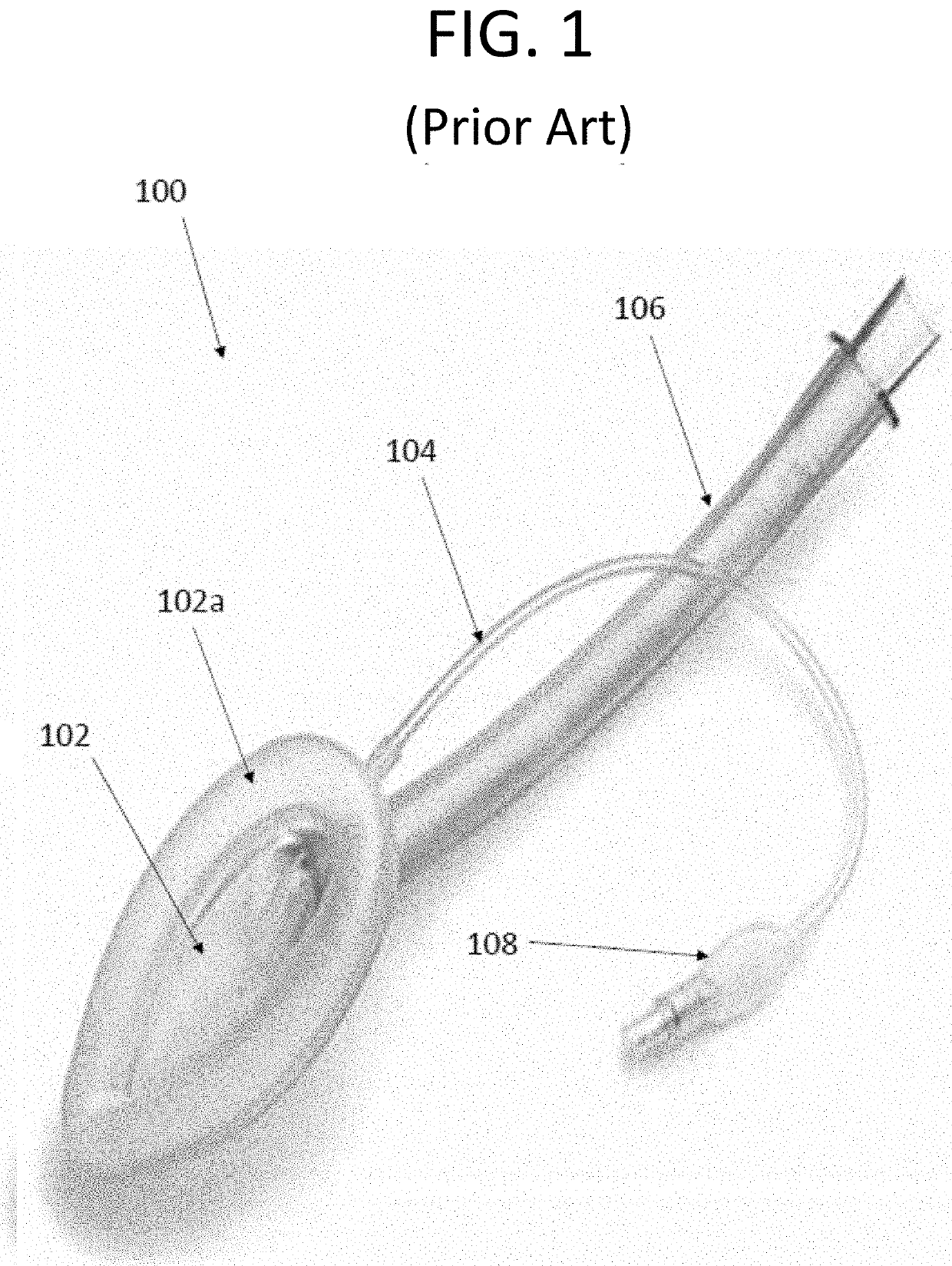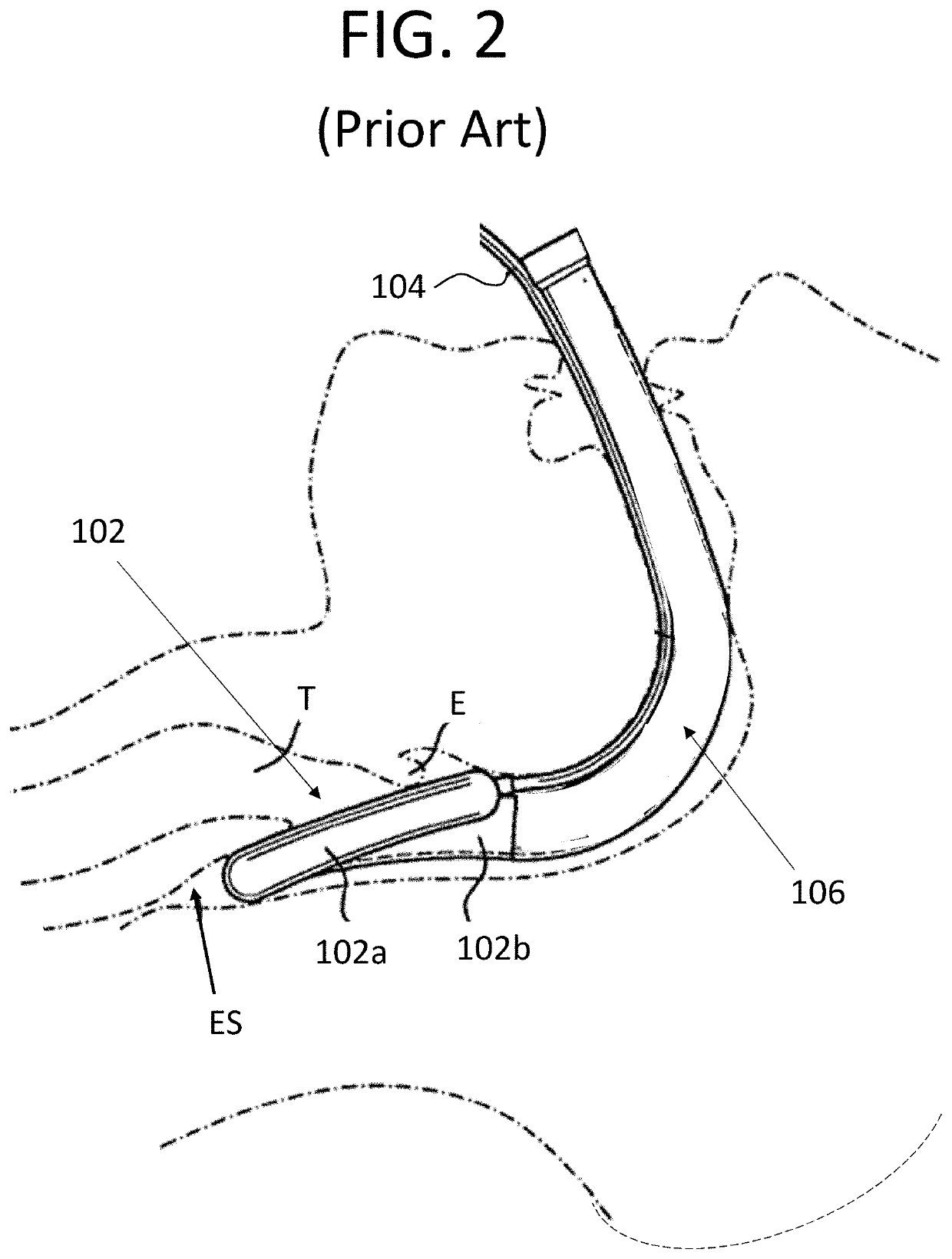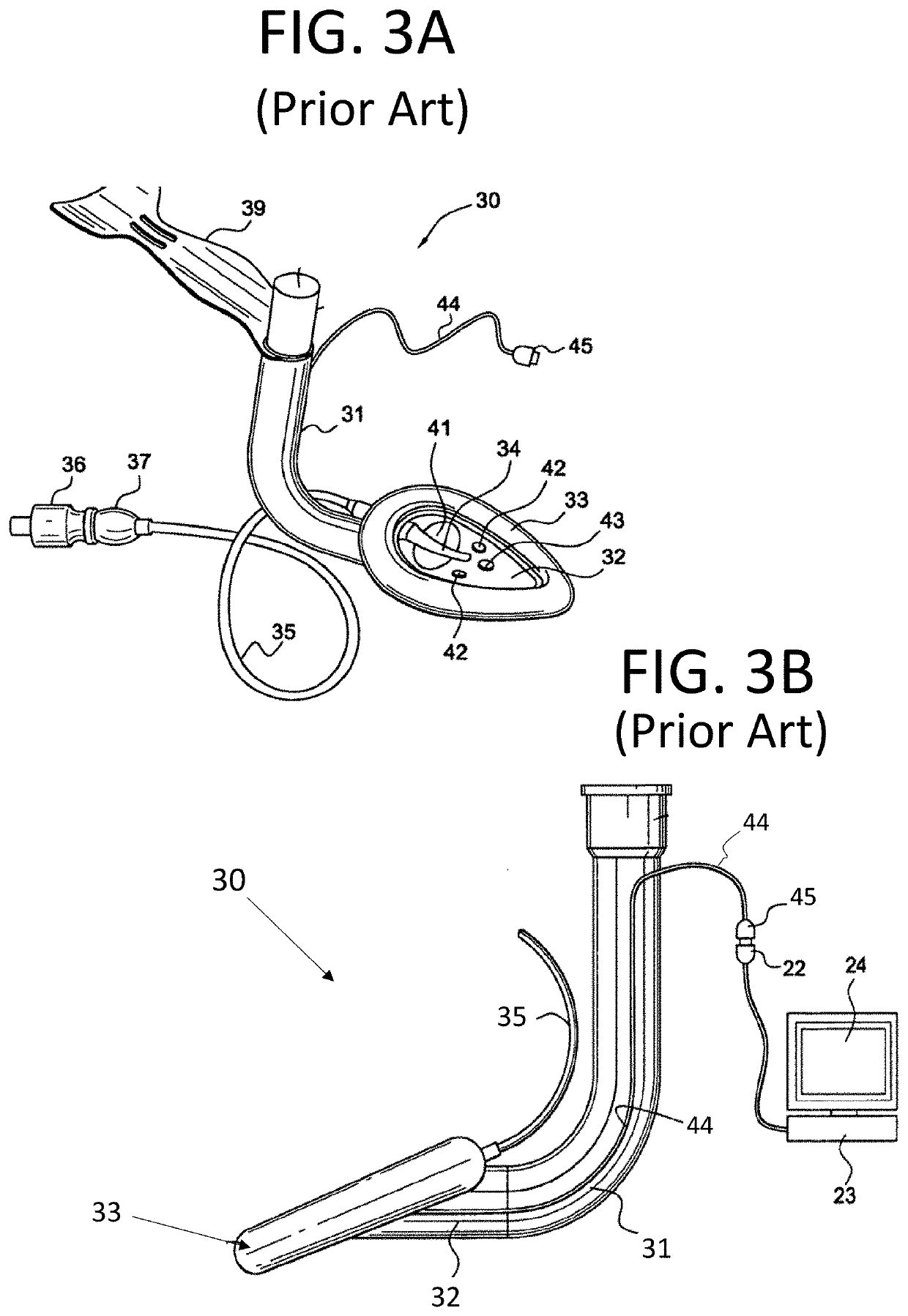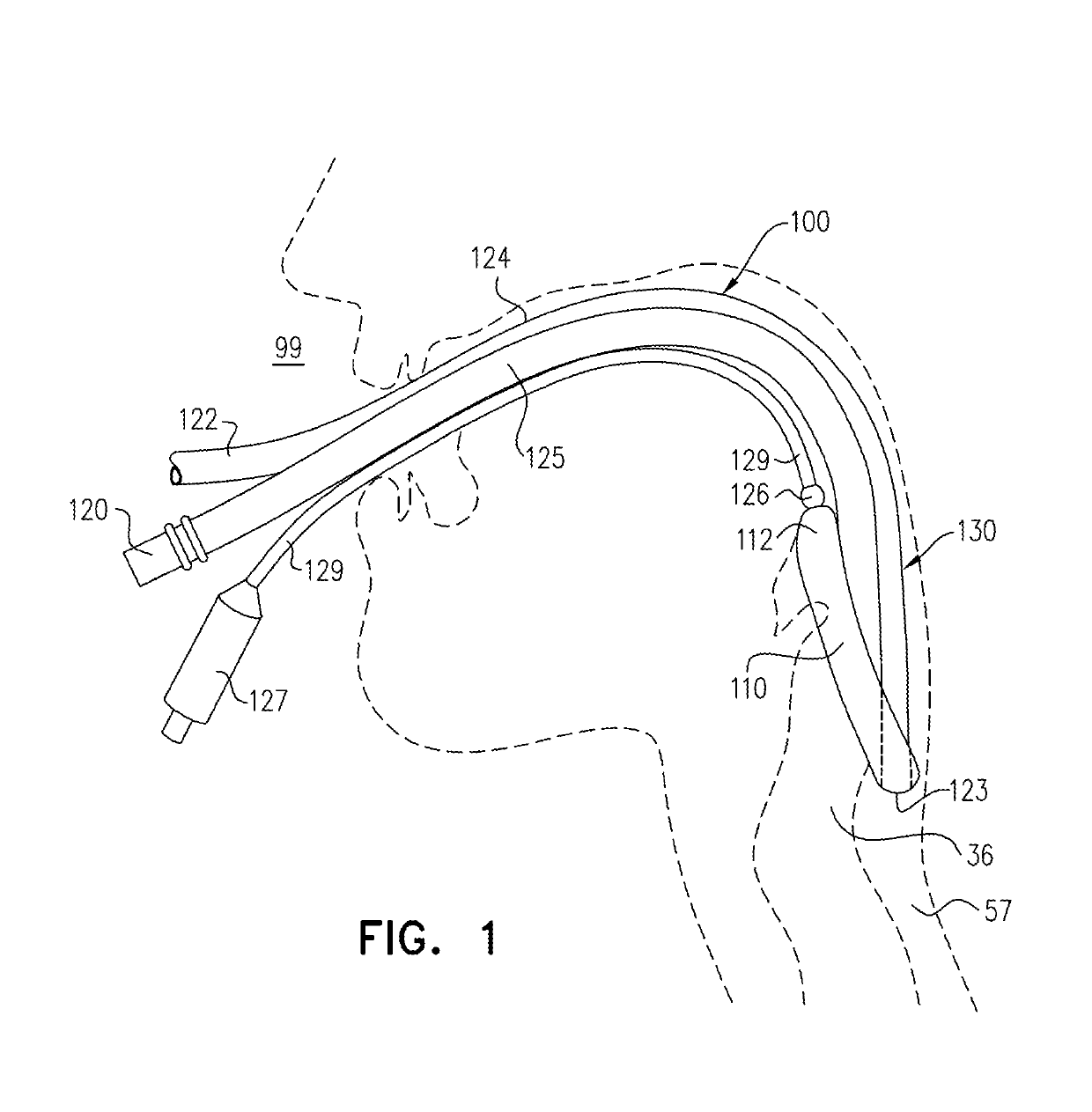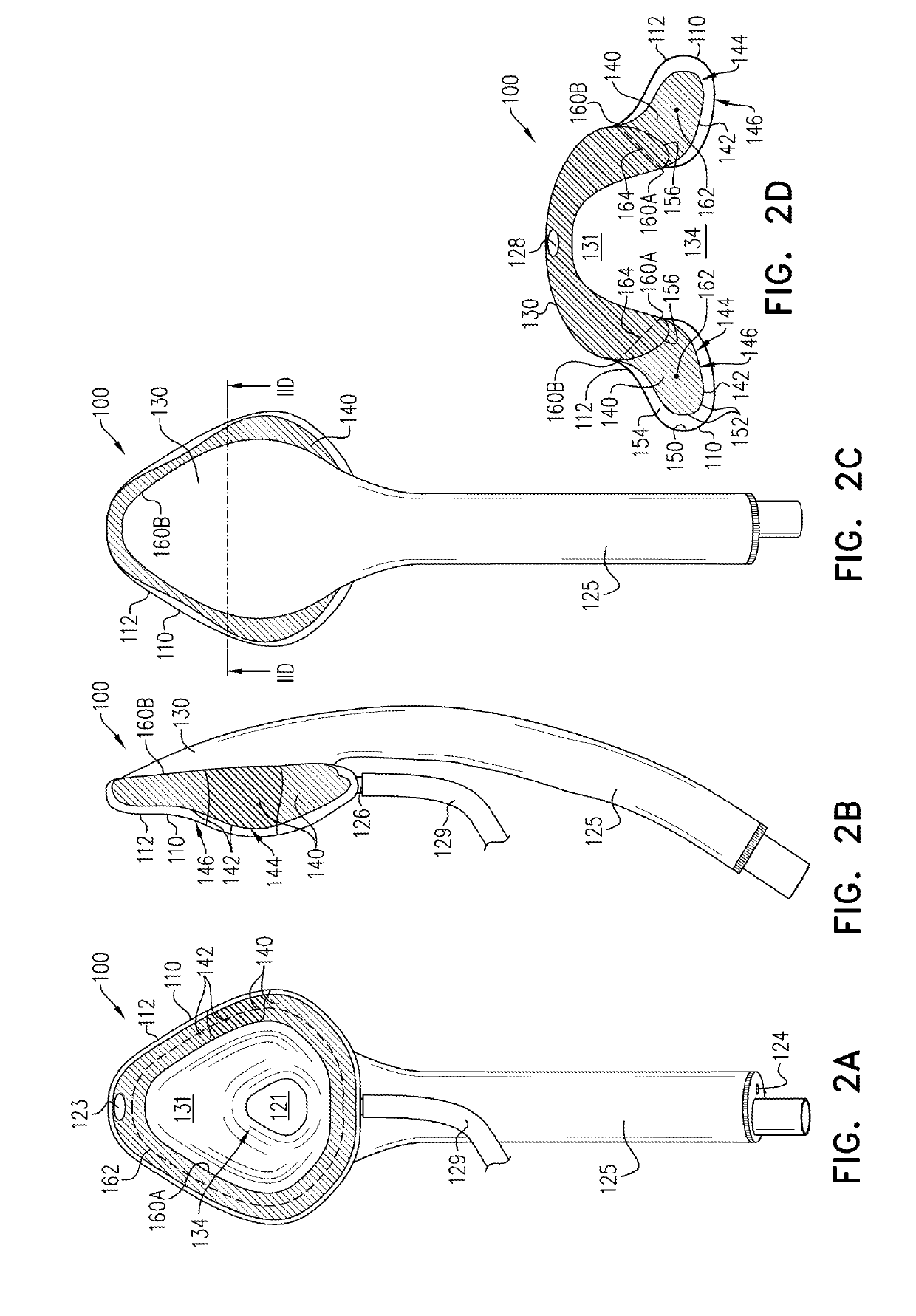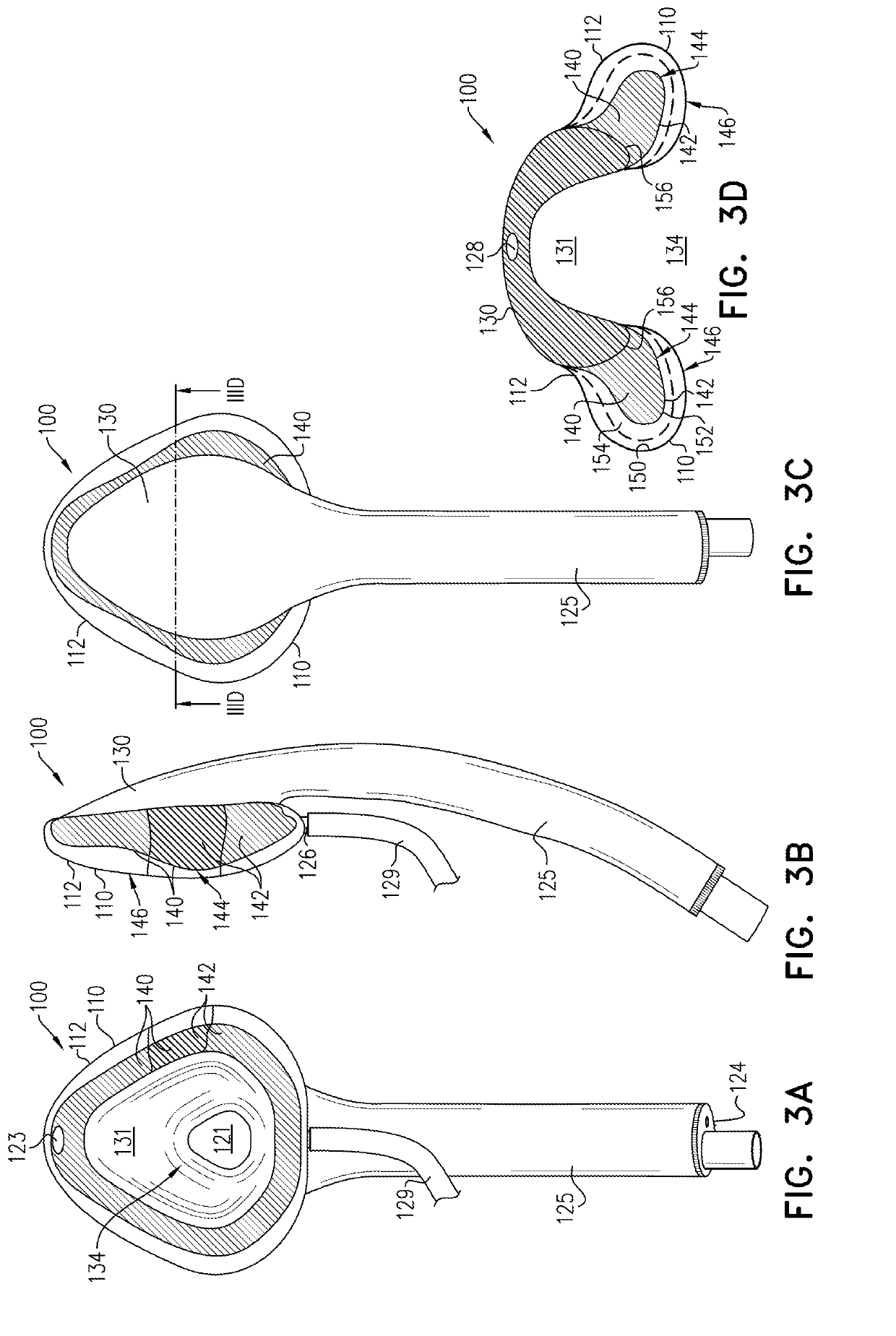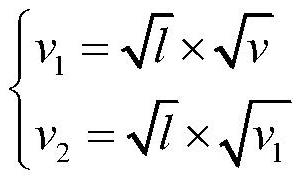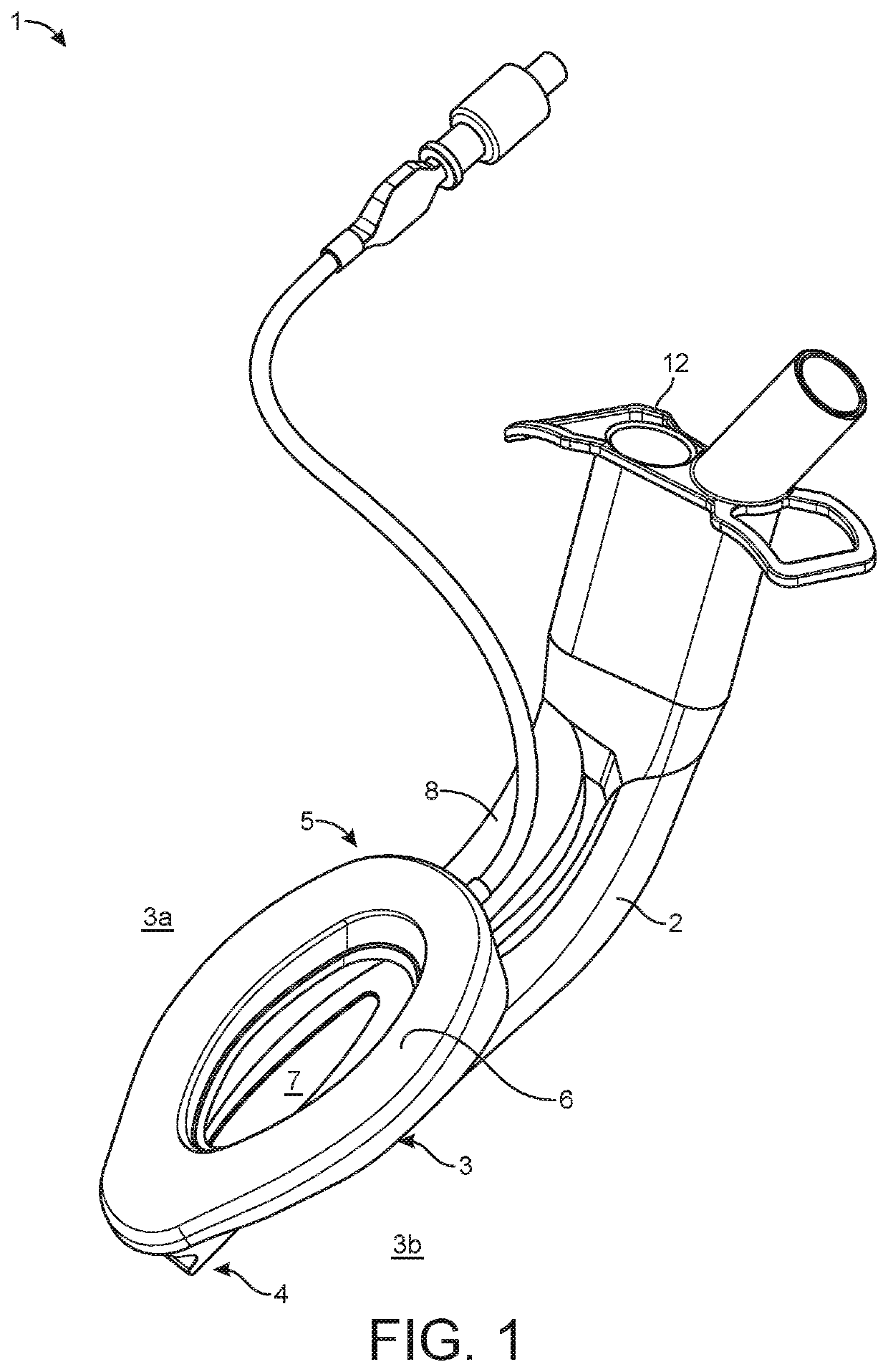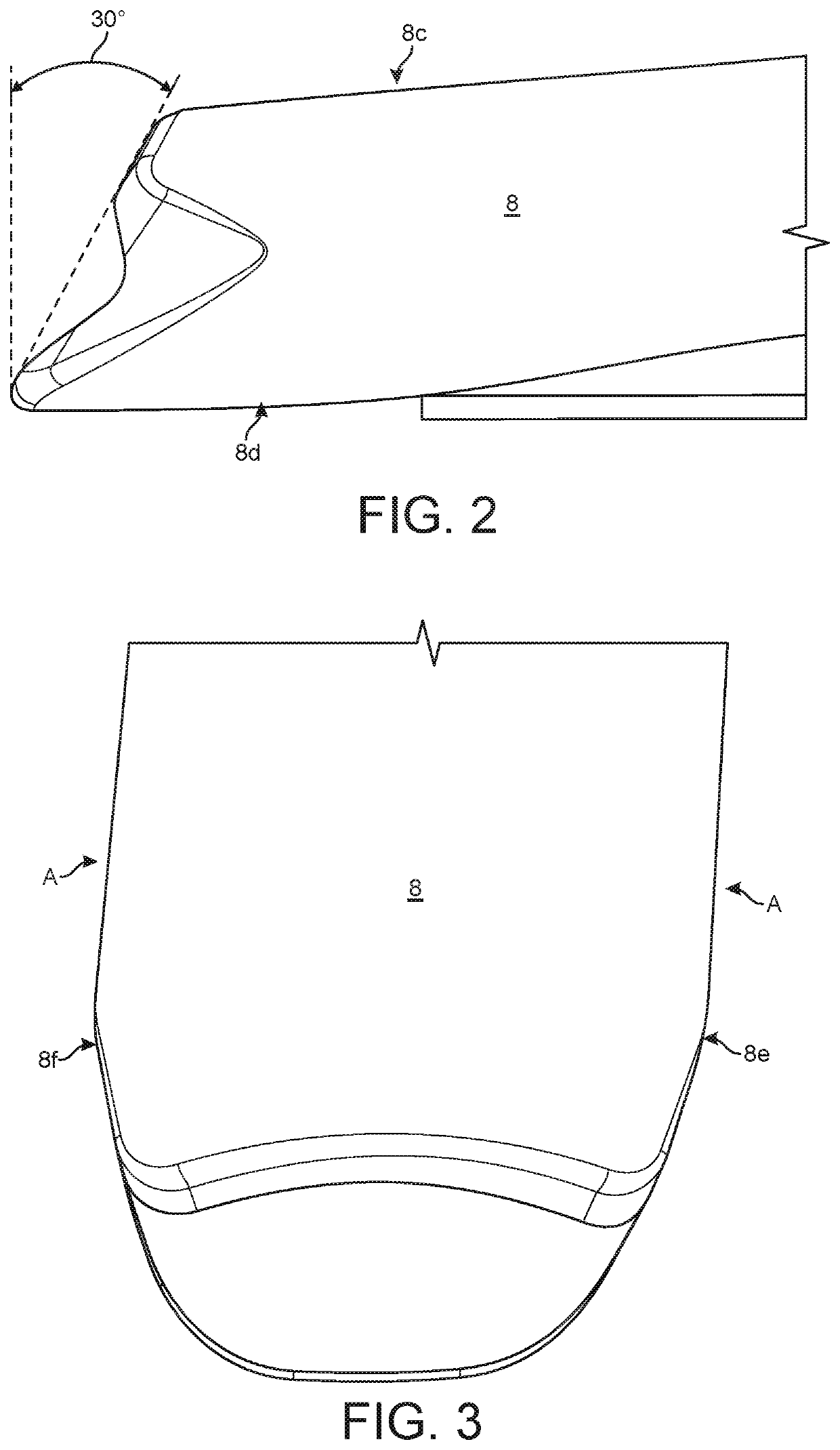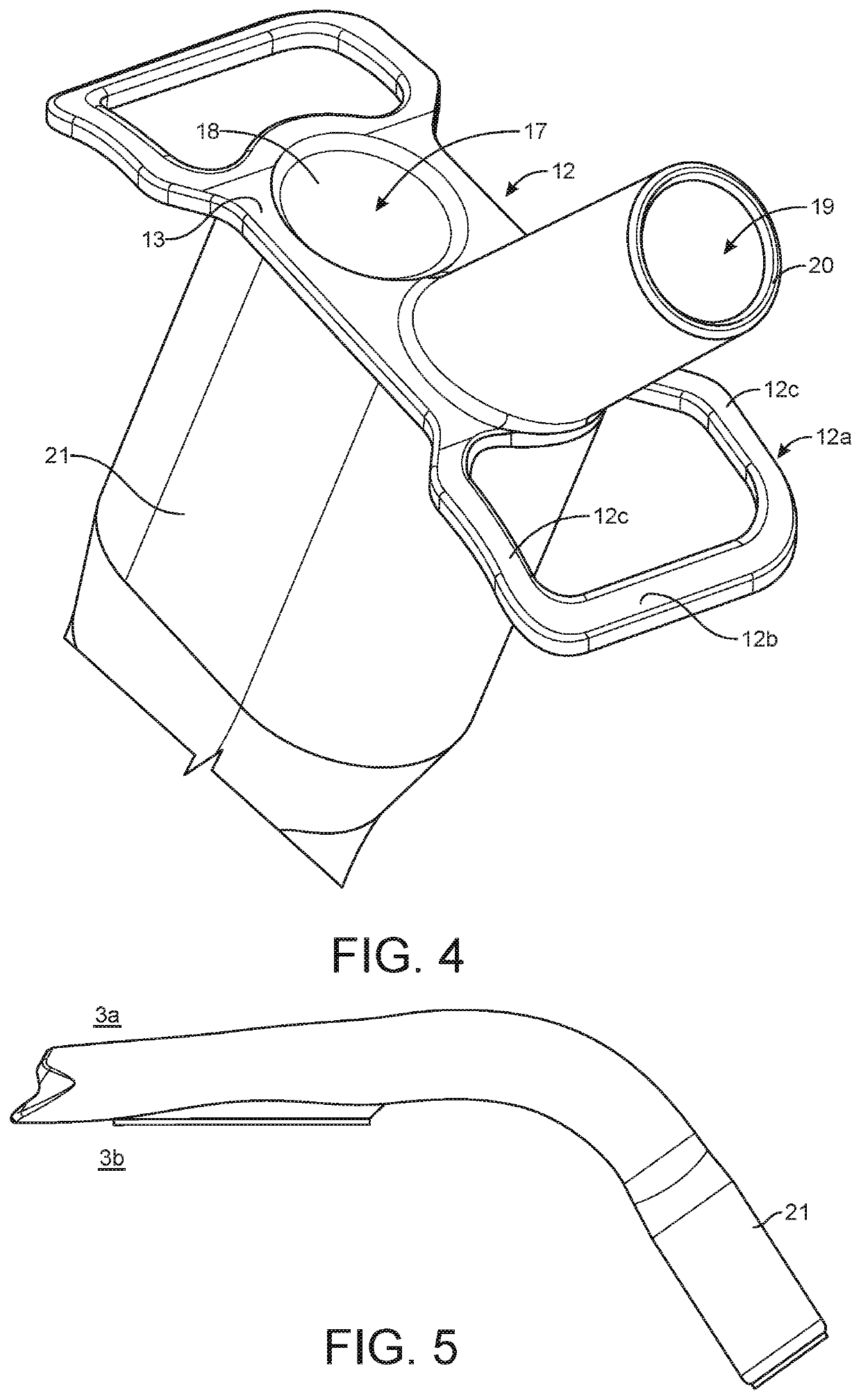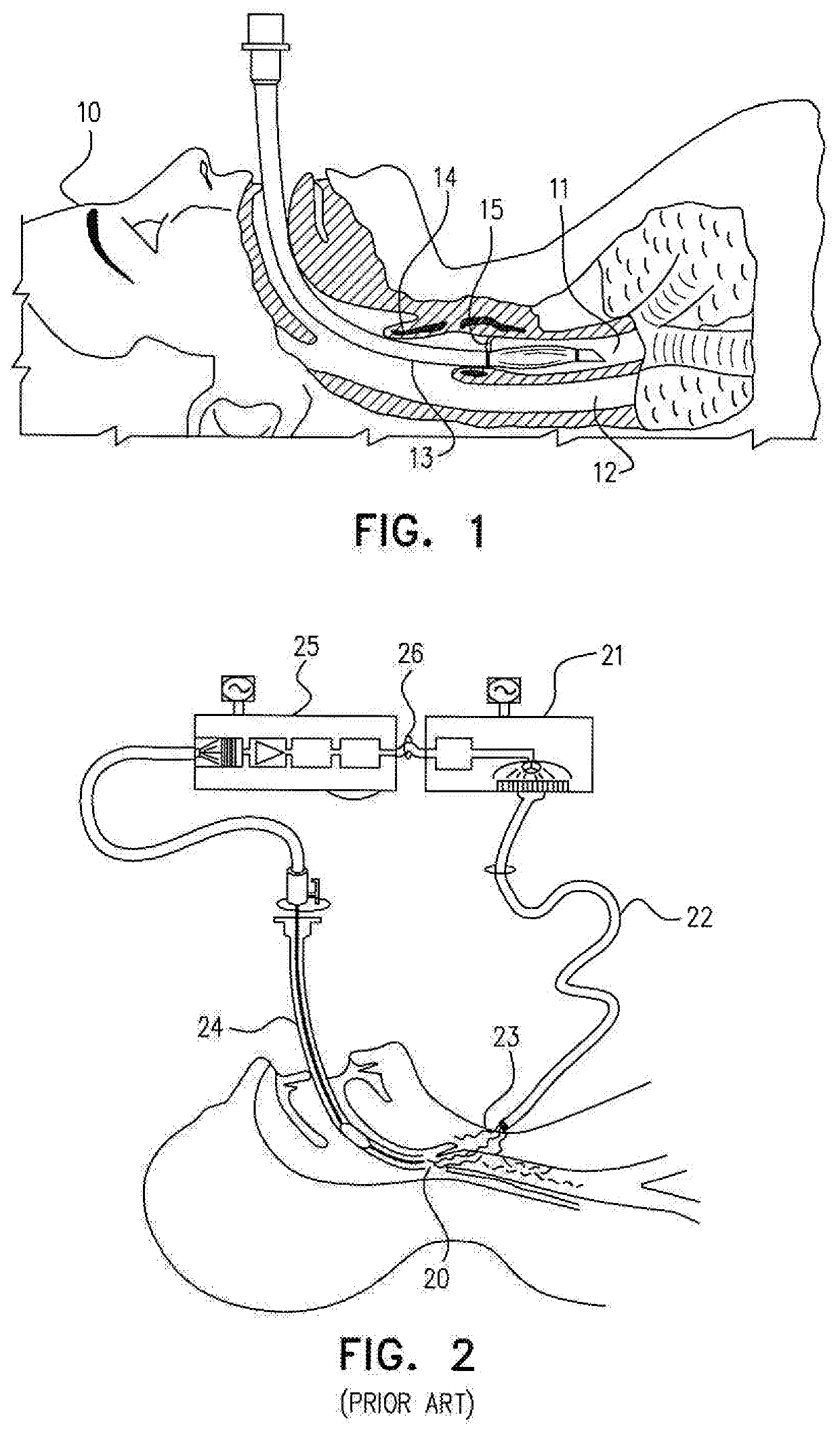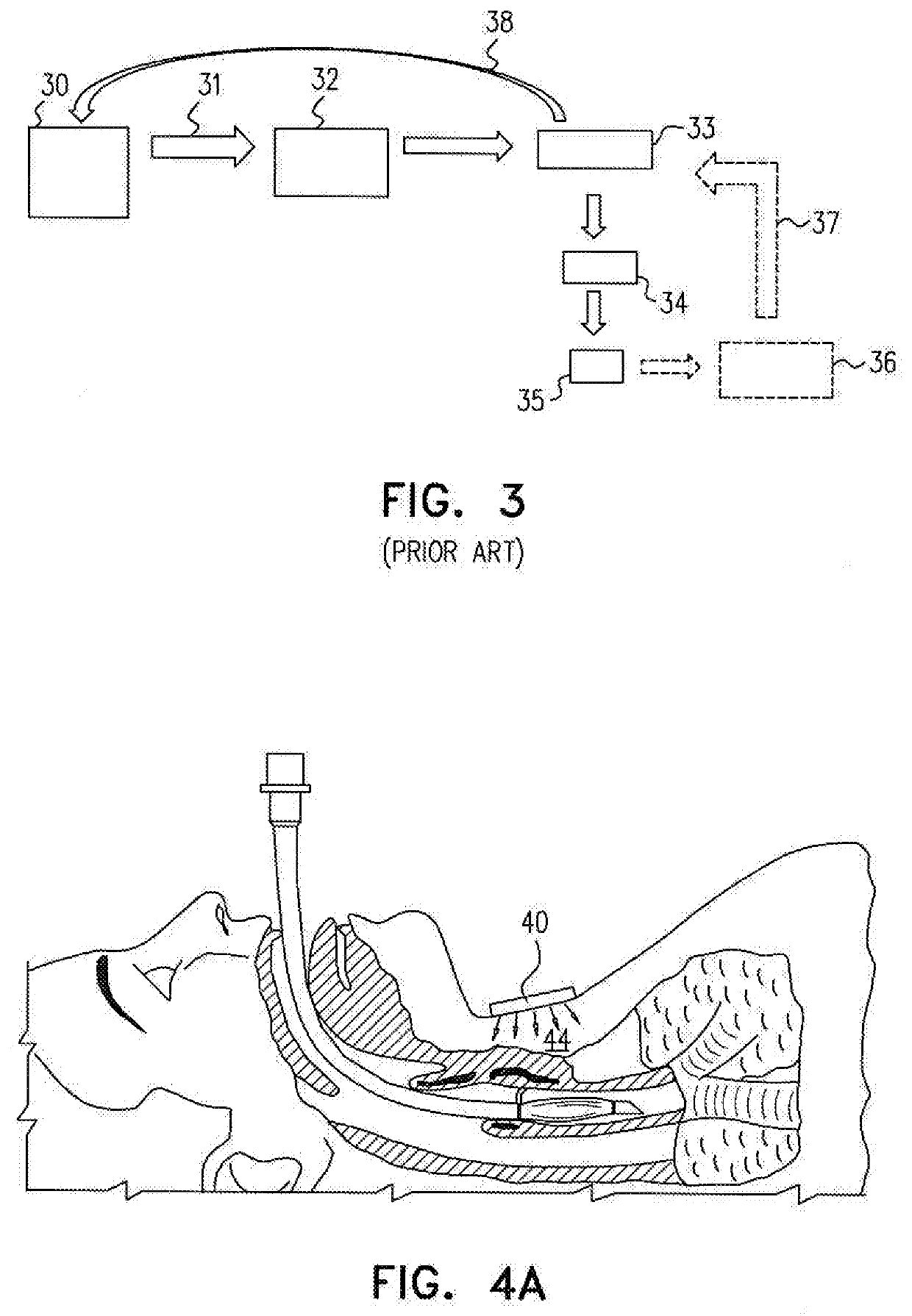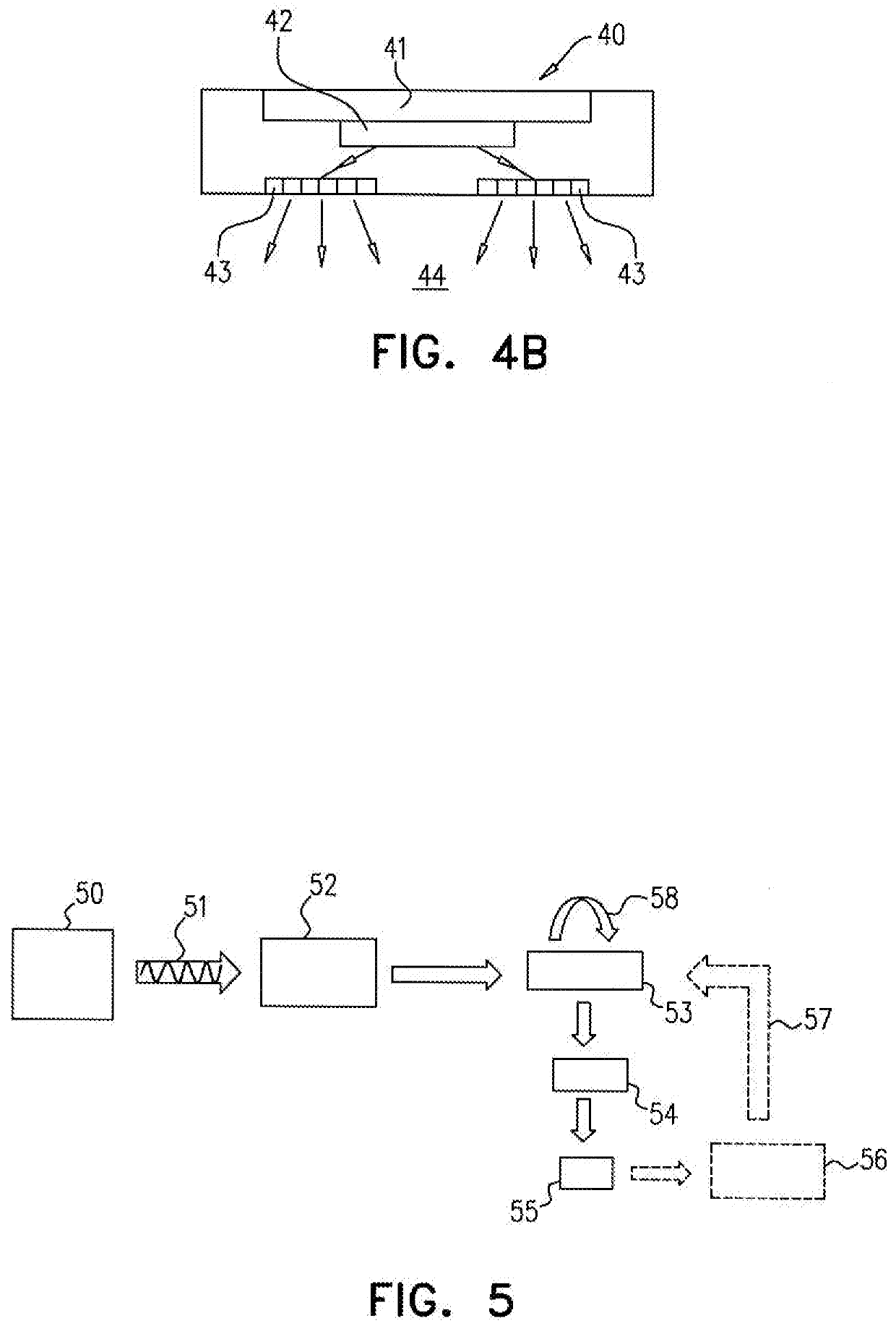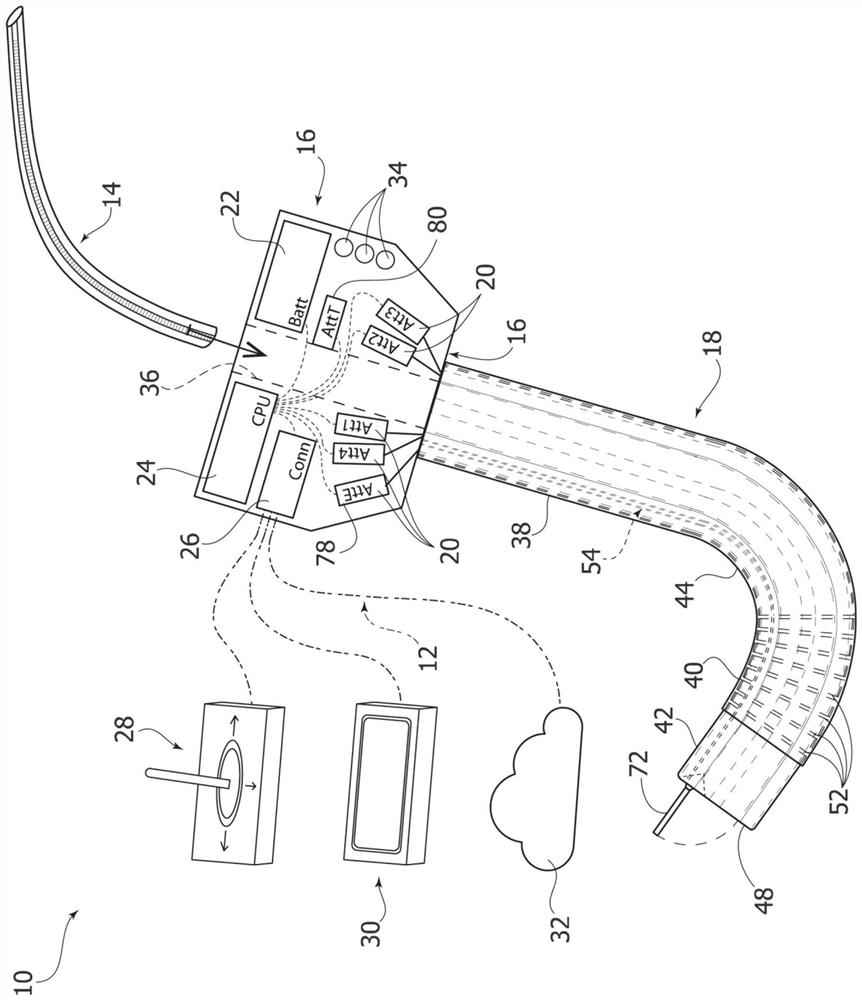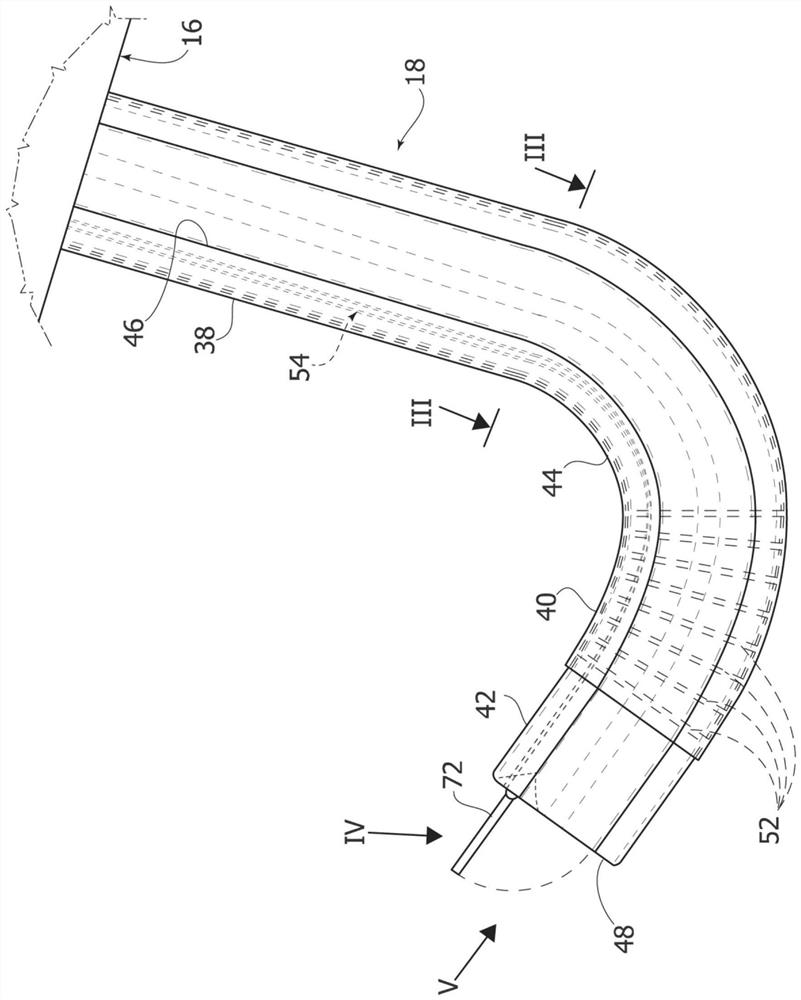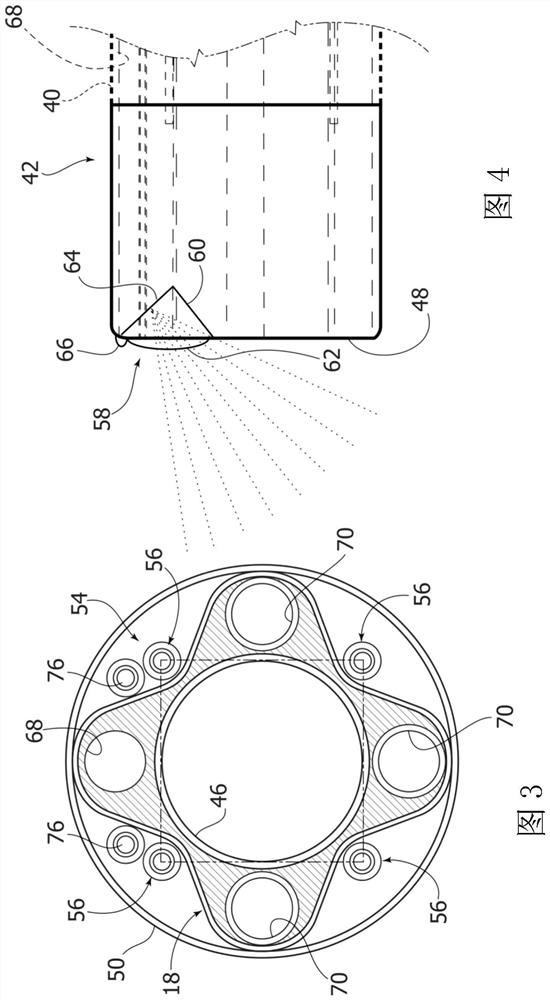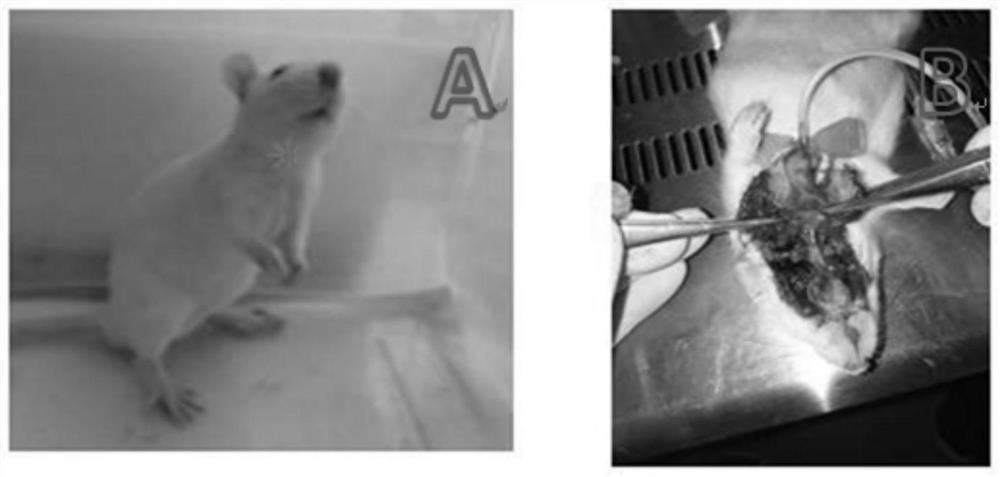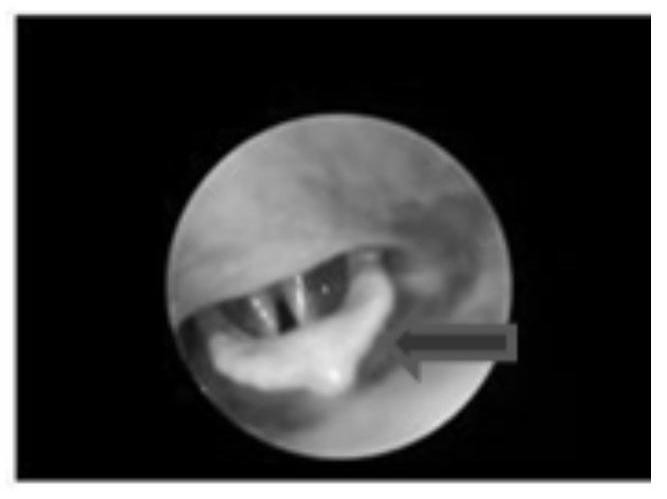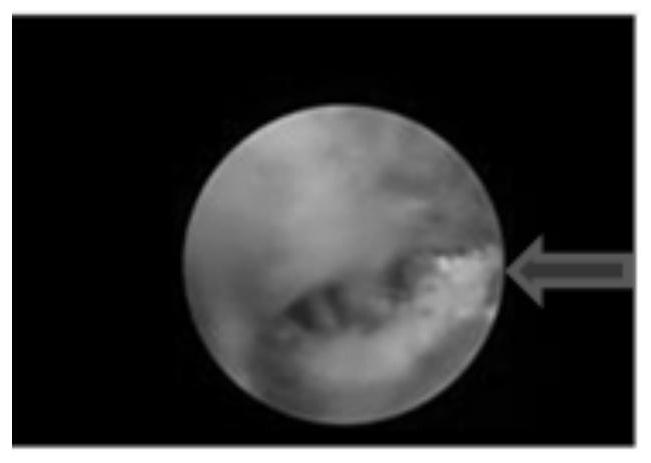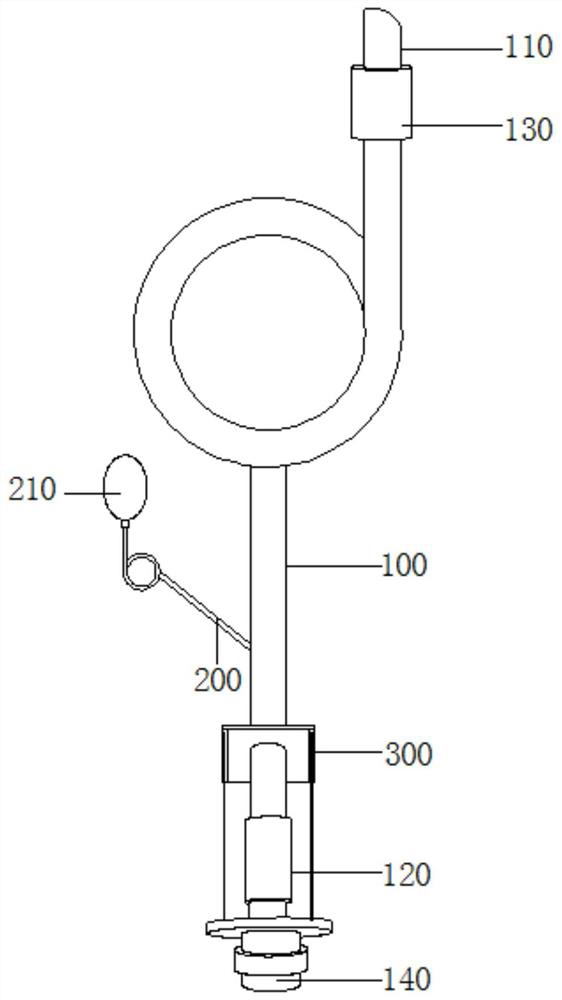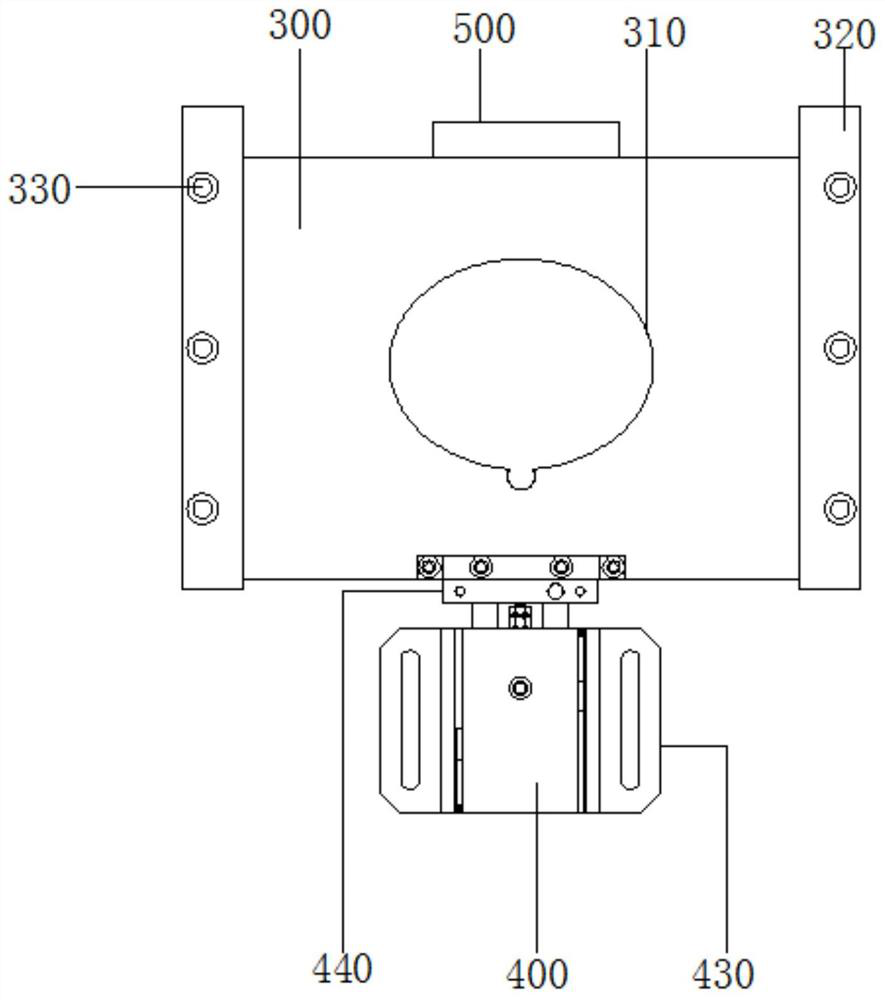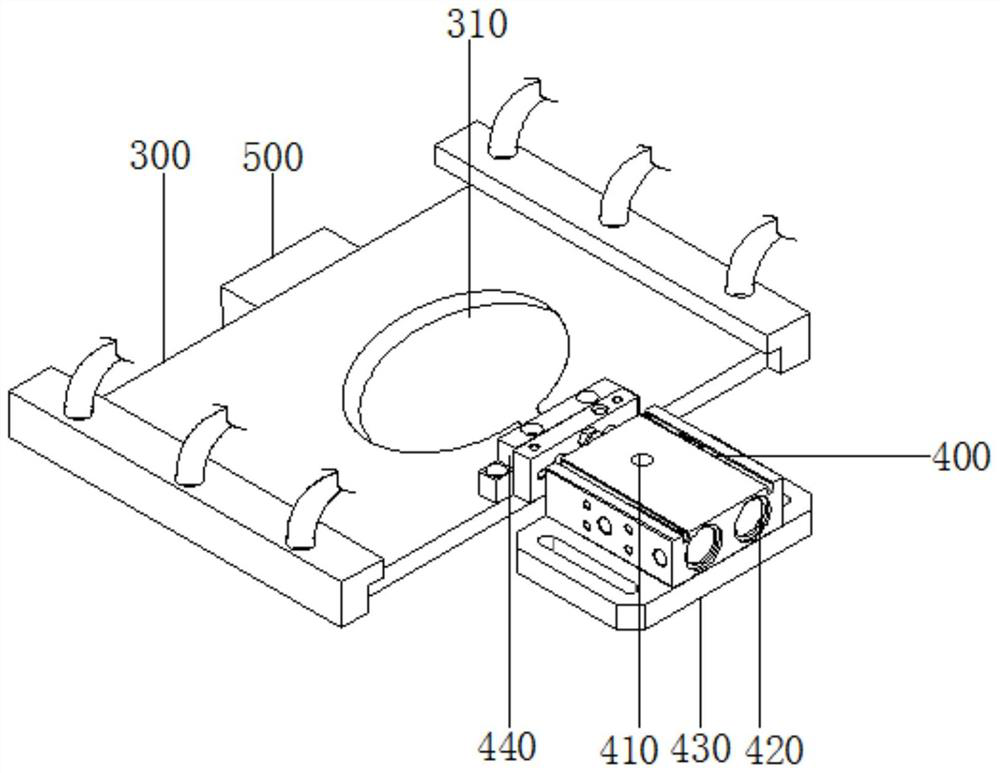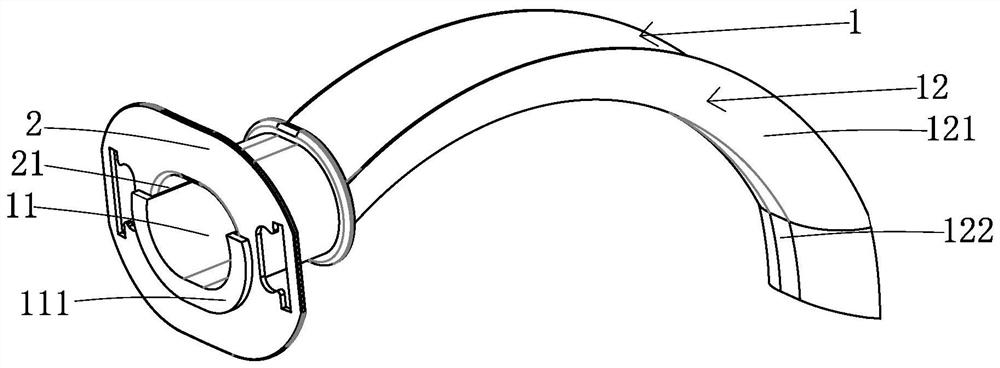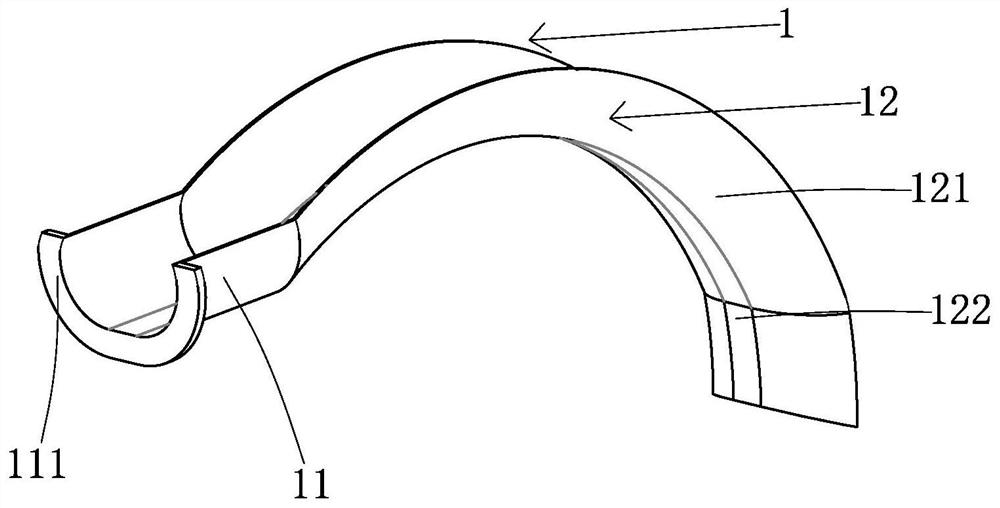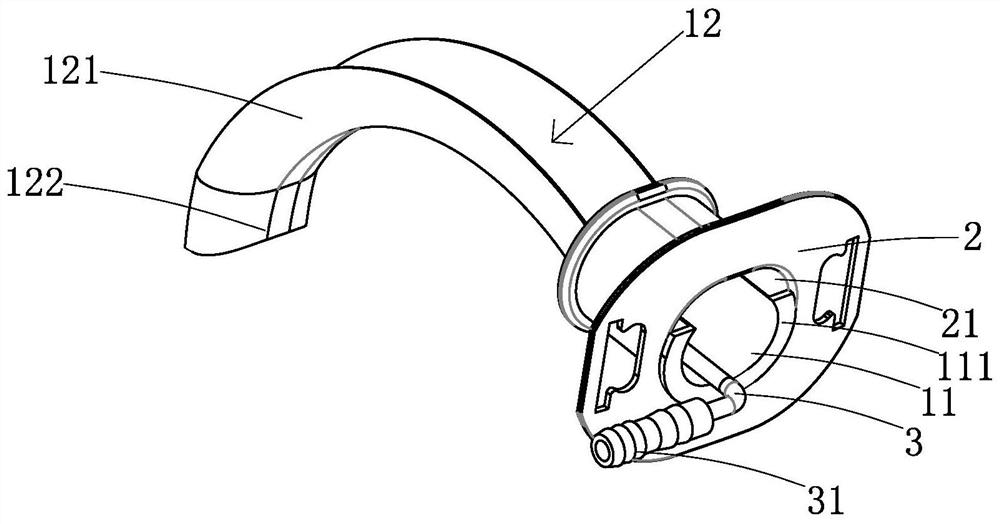Patents
Literature
70 results about "Partial larynx" patented technology
Efficacy Topic
Property
Owner
Technical Advancement
Application Domain
Technology Topic
Technology Field Word
Patent Country/Region
Patent Type
Patent Status
Application Year
Inventor
Device for Volitional Swallowing with a Substitute Sensory System
ActiveUS20090054980A1Provide controlElectrotherapyStammering correctionPhysical medicine and rehabilitationLarynx
A device for volitional swallowing with a substitute sensory system comprises a band 101 wrapped around the neck with a vibrator 102 positioned over the larynx. Upon activation by a button 103 on a spoon 104 held by an operator, such as the subject 105, the vibrator 102 moves and vibrates the larynx. The patient 105 initiates the sensory stimulation immediately prior to the patient's own initiation of a swallow by viewing on a display screen 106 a movement feedback signal 107, possibly from a piezo-electric sensor 108 also contained in the band 101 which will also be displayed on the display screen 106. The signal 109 from the switch device initiating sensory stimulation will be presented on the same display screen 106 for the patient 105 and trainer to observe when the button or switch 103 is activated for sensory stimulation in relation to the onset of the swallow.
Owner:UNITED STATES OF AMERICA
Method for repairing a defect in an intervertebral disc
InactiveUS7572440B2Severe inflammatory reactionSpeed up healing processBiocidePeptide/protein ingredientsOsteogenic proteinsNose
Provided herein are methods and devices for inducing the formation of functional replacement nonarticular cartilage tissues and ligament tissues. These methods and devices involve the use of osteogenic proteins, and are useful in repairing defects in the larynx, trachea, interarticular menisci, intervertebral discs, ear, nose, ribs and other fibrocartilaginous tissues in a mammal.
Owner:MARIEL THERAPEUTICS
Method and system for estimating physiological parameters of phonation
The invention consists of a method and computing system for recording and analyzing the voice which allows a series of parameters of phonation to be calculated. These transmit relevant information regarding effects caused by organic disorders (which affect the physiology of the larynx) or neurological disorders (which affect the cerebral centers of speech). The classification methods are also considered an essential part of the invention which allow estimations of the existing dysfunction to be obtained and for the allocation of personality. The usefulness of the invention lies in the possibility of applying the dysfunction estimation in primary care service centers for patient screening to specialist care centers, simplifying examination protocols, saving costs and reducing waiting lists. This methodology can also be used for detecting the personality of a speaker by their voice, allowing access to installations or services.
Owner:UNIV MADRID POLITECNICA
Equine airway disorders
ActiveUS9352152B2Promote regenerationReduce degenerationElectroencephalographySpinal electrodesDiseaseAnesthesia
Airway disorders in a horse are relieved by electrical stimulation of the airway tissue. Particular disorders and techniques include electrical stimulation to relieve laryngeal hemiplegia. A pacemaker processor generates an electrical treatment signal to be applied to upper airway tissue of the horse for treating the upper airway disorder. One or more stimulation electrodes interfaces with the upper airway tissue for delivering the treatment signal to the upper airway tissue.
Owner:CORNELL UNIVERSITY +2
Dual blade laryngoscope with esophageal obturator
A dual bladed laryngoscope for quickly and easily intubating a patient. The invention has two blades pivotally hinged on one side while the opposing side is open allowing the laryngoscope to be easily removed after intubating a patient. The proximal end of the upper blade has a grip portion which can be moved closer to or farther away from the handle attached to the proximal end of the lower blade to open or close the distal ends of the lower and upper blades. The lower blade of the invention has a distal end adapted as an esophageal obturator for obstructing the esophagus. An arytenoid bumper to prevent the laryngoscope from penetrating too far into the esophagus is preferably secured to the distal end of the lower blade. The arytenoid bumper may have a ramp or wedge shape adapted to deflect an intubation tube through a patient's larynx and into the trachea. The upper blade optionally has a tongue guard adapted to hold the tongue outside of a channel formed by the lower blade, the tongue guard and the upper blade. A suction conduit is optionally built in or secured to either the lower blade or the upper blade for providing a tube for suctioning secretions or emesis. A suction break is located in the handle of the laryngoscope to allow a finger of the hand holding the laryngoscope to control the presence and intensity of suction.
Owner:SCOPECO
Airway device
An airway device for human or animal use comprising an airway tube having a distal end and a proximal end, the distal end of which is surrounded by a laryngeal cuff, wherein the cuff is non-inflatable and is pre-formed in a shape such that a face region of the cuff is adapted to fit snugly over the laryngeal inlet of a patient, and wherein the external profile of the tube is substantially uniform between the distal end of the tube where it starts to meet the cuff and the proximal end of the tube, and wherein the face region of the cuff is formed from a material with a Shore hardness on the A scale of between 0 to 30.
Owner:NASIR MUHAMMED ASLAM
Video laryngoscope and video laryngoscope insertion section
ActiveUS20160120394A1Easy to introduceAvoiding excessive longitudinal curvatureBronchoscopesLaryngoscopesVideo laryngoscopeLarynx
A video laryngoscope and elongate laryngoscope insertion section for a video laryngoscope, comprising a viewing port through which an imaging device within the insertion section can obtain images of a larynx, the insertion section extending between a distal end for insertion into a subject and an opposite proximal end, and having an inferior surface and an opposed superior surface, wherein the insertion section comprises a proximal region where the insertion section extends through a subject's teeth in use, a distal region extending to the distal end and an intermediate region therebetween, wherein the inferior surface of the insertion section comprises or consists of a curved region which extends from the proximal region through the intermediate region to the distal region, wherein the curved region of the inferior surface is continuously longitudinally curved along the length of the longitudinally curved region and wherein the longitudinal curvature of the curved region of the inferior surface varies in the intermediate region. Markings on an elongate laryngoscope insertion can be used to monitor depth of insertion and to indicate a path by which an endotracheal tube should be inserted.
Owner:COVIDIEN AG
Apparatus and method for remotely diagnosing laryngeal disorder/laryngeal state using speech codec
InactiveUS20060129390A1Reduce the amount of calculationLimitation in space is decreasedSpeech analysisDiagnostic recording/measuringDiseaseAlgorithm
Provided is an apparatus and method for remotely diagnosing laryngeal disorder / laryngeal state by using the speech codec. The apparatus provides a remote larynx diagnosing apparatus and method deciding laryngeal disorder / laryngeal state by using parameters, such as a Linear Prediction Coefficient (LPC) and a pitch, which are transmitted from a system using a speech codec. The apparatus includes a user information / speech codec information collecting block; a parameter extracting block for extracting the diagnosis parameter in bitstream transmitted from the network; a storing block for pre-storing a diagnosis parameter considering the type of the speech codec and a bit rate; a parameter comparing block for comparing the diagnosis parameter extracted from the parameter extracting block with the information of storing block; and a laryngeal disorder / laryngeal state determining block for diagnosing presence of laryngeal disorder / laryngeal state.
Owner:ELECTRONICS & TELECOMM RES INST
Video laryngoscope and video laryngoscope insertion section
ActiveUS20200029793A1Easy to introduceAvoiding excessive longitudinal curvatureBronchoscopesLaryngoscopesVideo laryngoscopeLarynx
A video laryngoscope and elongate laryngoscope insertion section for a video laryngoscope, comprising a viewing port through which an imaging device within the insertion section can obtain images of a larynx, the insertion section extending between a distal end for insertion into a subject and an opposite proximal end, and having an inferior surface and an opposed superior surface, wherein the insertion section comprises a proximal region where the insertion section extends through a subject's teeth in use, a distal region extending to the distal end and an intermediate region therebetween, wherein the inferior surface of the insertion section comprises or consists of a curved region which extends from the proximal region through the intermediate region to the distal region, wherein the curved region of the inferior surface is continuously longitudinally curved along the length of the longitudinally curved region and wherein the longitudinal curvature of the curved region of the inferior surface varies in the intermediate region. Markings on an elongate laryngoscope insertion can be used to monitor depth of insertion and to indicate a path by which an endotracheal tube should be inserted.
Owner:COVIDIEN AG
Laryngeal disease diagnosis system based on deep learning neural network
ActiveCN111488912AImprove diagnostic efficiencyImprove diagnostic accuracyMedical automated diagnosisCharacter and pattern recognitionDiseaseLaryngeal Diseases
The invention discloses a laryngeal disease diagnosis system based on a deep learning neural network, and belongs to the subject crossing field of combination of artificial intelligence and medical diagnosis. According to the invention, the problems of low diagnosis efficiency and low diagnosis accuracy of the laryngoscope image in the traditional method are solved. The laryngeal disease diagnosisnetwork model is established, and the established laryngeal disease diagnosis network model can be used for an intelligent system for laryngeal disease diagnosis, so that laryngoscope images are better diagnosed, doctors are helped to improve the diagnosis efficiency and diagnosis accuracy of diseases, and the missed diagnosis rate and the misdiagnosis rate are reduced. The laryngeal disease diagnosis system can be applied to intelligent detection of laryngoscope images.
Owner:HARBIN INST OF TECH
Visible intubation positive-pressure face mask and respiratory system
PendingCN108452411AImprove ventilation efficiencySolve the problem of temporarily interrupting the patient's breathing as a last resortTracheal tubesRespiratory masksPositive pressureForceps
The invention relates to a visible intubation positive-pressure face mask and a respiratory system. A positive pressure air vent hole is formed in the surface of a positive-pressure face mask body, and is used for connecting a breathing machine, continuously providing positive pressure ventilation for a patient, and assisting the breathing of the patient; a visible laryngoscope inlet hole is alsoformed in the surface of the positive-pressure face mask body, and is used for inserting a visible laryngoscope, observing the specific circumstances of the throat of the patient, supporting the rootof tongue of the patient, reliving the airway obstruction, and assisting the tracheal catheter; an operation hole is also formed in the surface of the positive-pressure face mask body, the tracheal catheter can be used for performing the tracheal catheter intubation operation, and foreign body forceps are adopted for performing the foreign body removal operations for the oral cavity and the airway. With the system, for the patients with the trachea problems including sleep apnea syndrome, obesity, poor trachea conditions, and no tolerance to apnea, the ventilation effective rate of the face mask is greatly improved, more time is earned for the difficult trachea intubation, meanwhile, the problem that during the surgery operation process, the breathing of the patients is interrupted temporarily by necessity is solved, thus the safety of the patients is improved, and the operation continuity of an operator is increased.
Owner:FIRST HOSPITAL AFFILIATED TO GENERAL HOSPITAL OF PLA
Vibratory Nerve Exciter
A laryngeal nerve exciting system includes a collar holding a bridge, or a neckband, pressing soft tissue nerve exciters against a patient's neck providing a source of vibrations to stimulate the laryngeal nerve through the larynx. At least one exciter, and preferably two exciters, provide vibrations at preferably 70 Hz to 110 Hz and sufficiently strong to penetrate to the laryngeal nerve. The exciters may be held by the collar circling the neck, or by the neck band partially circling the neck. The therapy system includes a Personal Digital Assistant (PDA) and software which wirelessly connects, monitors, and triggers the device. The system may be used to treat dysphagia, chronic cough, and spasmodic dysphonia.
Owner:PASSY MUIR
Removable anchored lung volume reduction devices and methods
An intra-bronchial device may be placed and anchored in an air passageway of a patient to collapse a lung portion associated with the air passageway. The device includes an obstructing member that prevents air from being inhaled into the lung portion, and an anchor that anchors the obstruction device within the air passageway. The anchor may piercingly engage the air passageway wall. The anchor may be releasable from the air passageway for removal of the obstructing member. The anchor may be releasable by collapsing a portion of the obstructing member, or by drawing the obstructing member toward the larynx. The obstructing member may be a one-way valve.
Owner:GYRUS ACMI INC (D B A OLYMPUS SURGICAL TECH AMERICA)
Laryngeal mask with tape tab
The invention relates to a devices and methods for lung ventilation in a patient. In particular, there is provided a laryngeal mask airway device for facilitation of lung ventilation in a patient, comprising an airway tube opening at one end into the interior of a hollow mask portion, the mask portion including a backplate and a cuff, the mask portion shaped to conform to and to fit readily into the actual and potential space behind the larynx and to seal around the circumference of the laryngeal inlet without penetrating into the interior of the larynx, the airway tube extending from a proximal end to a distal end and having a tab disposed near said proximal end, a sealed airway passage extending from the proximal end of the tube to the glottic opening when the cuff is at the inserted location, characterized in that the tab is adapted to be biasable towards the philtrum of the patient in use.
Owner:THE LARYNGEAL MASK
Parametrically adjustable airway training mannequin with instrumented parameter assessment
The adjustable airway mannequin with visual feedback models the human skull, maxilla, upper teeth, lower teeth, jaw, spine and airway mounted on a backboard. Adjustments can be made to the height of the maxilla, the height of the upper teeth, the tension and distance of the jaw movement representing mouth opening, the anterior-posterior displacement of the jaw relative to the maxilla and skull, the presence or absence of the upper teeth and lower teeth, the range of motion of the spine, and tension on the airway to mimic a variety of anatomies. The mannequin may include one or more electronic proximity and position sensors that operate through magnetic field sensing, accelerometry, and optical sensing to monitor one or more of face length, jaw length, mouth opening, jaw tension, larynx position, head height off the table, and spine mobility.
Owner:RGT UNIV OF CALIFORNIA
Swallow exerciser
A swallow exerciser device that exercises and thereby strengthens the muscles involved in swallowing includes a rigid shell, an adjustable fastener, and an inflatable pad. The rigid shell has a longitudinal dimension such that the shell extends above and below the larynx of the subject when the swallow exerciser device is positioned over the larynx of the subject. The adjustable fastener is dimensioned to secure the shell around a neck of the subject with the shell positioned over the larynx of the subject. The inflatable pad is connected to a proximal surface of the shell. The inflatable pad is dimensioned to apply resistance to force of at least one swallowing muscle of the subject when the shell positioned over the larynx of the subject and when the inflatable pad is in an inflated position. The swallow exerciser device can be used in a method for improving swallowing function in a subject.
Owner:UNIV OF SOUTHERN CALIFORNIA +1
A laryngoscope for orotracheal intubation
PendingUS20220362499A1Overcome difficultiesTracheal tubesBronchoscopesOral Endotracheal TubeEngineering
A laryngoscope for orotracheal intubation, includes a tubular body that serves as a guide for an endotracheal tube. The tubular body has an adjustable head which is inserted into the pharynx through the mouth following the anatomical curvature until it reaches the larynx and vocal cords. The head may be equipped with a lighting and display system that can be connected to an external screen. The head can be oriented by means of actuators so that it can be directed towards the entrance to the airways,
Owner:MEDSNIPER SRL
Laryngeal cavity expansion device used after partial larynx resection
InactiveCN106237489ASimple structureReduce manufacturing costSurgeryMedical devicesEngineeringPartial larynx
The invention discloses a laryngeal cavity expansion device used after partial larynx resection comprising an air adding device; the air adding device is connected with an air-guiding hose; the air-guiding hose is communicated with a gas bag expansion part; the gas bag expansion part is an inflatable and deflatable air bag structure; a connecting part of the inner part of the gas bag expansion part with the air-guiding hose is provided with an air tap sleeve; a top part of the gas bag expansion part is provided with suture and an end of the suture is provided with a coil. This device is low in cost, fast and flexible in use, can greatly reduce the pain of patients with laryngeal cavity expansion, and improve the efficiency and quality of treatment.
Owner:何剑
Method and equipment for identifying dysphagia based on laryngeal voice information and device
PendingCN113223498AExpand the scope of diagnosisLow costCharacter and pattern recognitionSpeech recognitionSpeech soundsPartial larynx
The invention relates to a dysphagia recognition method and equipment based on laryngeal voice information and a device. The method comprises the steps of collecting the laryngeal voice information of a subject based on a laryngeal vibrator; extracting audio features in the throat voice information; and according to the audio features, based on a pre-trained integrated classifier, obtaining an identification result of the subject. The laryngeal voice information of the subject is collected based on the laryngeal vibrator, so that the working efficiency of medical workers can be improved, the diagnosis range of dysphagia can be expanded, the laryngeal vibrator does not cause adverse effects on the subject, and the cost of collecting the laryngeal voice information of the subject based on the laryngeal vibrator is low. And the recognition result of the subject is obtained based on the pre-trained integrated classifier according to the audio features, so that compared with a single classifier, the recognition efficiency is higher, and the accuracy is higher.
Owner:WEST CHINA HOSPITAL SICHUAN UNIV
Visual laryngoscope with decontamination and medicine spraying functions for laryngology department
PendingCN113143183AEasy to observeOptimize locationBronchoscopesLaryngoscopesPhysical therapyPartial larynx
The invention discloses a visual laryngoscope with decontamination and medicine spraying functions for the laryngology department, and relates to the field of visual laryngoscopes. The visual laryngoscope comprises a shell, wherein a limiting block is fixedly mounted at the top of the shell, a rotating block is in rotatable and sleeved connection to the peripheral side of the limiting block, an operable display mechanism is fixedly mounted at the top of the rotating block, a driving mechanism is fixedly mounted in the shell, a sliding groove is formed in the side surface of the interior of the shell, and an extraction mechanism is mounted in the sliding groove in a sliding mode. According to the visual laryngoscope with the decontamination and medicine spraying functions for the laryngology department, through the arrangement of the limiting block and the rotating block, the operable display mechanism can rotate, a doctor can conveniently observe, the medical effect is improved, the doctor can directly operate the display mechanism to achieve the automatic extraction and medicine spraying functions, and the operation is convenient. The adhesive objects on the throat can also be extracted through the arrangement of the driving mechanism and the extraction mechanism in a manual mode, so that the doctor can conveniently perform the next operation; and through the arrangement of guide pieces, the doctor can further conveniently perform the intubation operation, guide is provided for intubation, the intubation efficiency is improved, and the pain of the patient is relieved.
Owner:邢双雅
T-shaped trachea cannula with antibacterial and anti-hyperblastosis functions
InactiveCN108261597AGood hydrophilic function and antibacterial and anti-inflammatory functionReduce friction damageTracheal tubesMedical devicesDexamethasoneLaryngeal airway
The invention discloses a T-shaped trachea cannula with antibacterial and anti-hyperblastosis functions. The surface of the T-shaped trachea cannula is covalently coupled with dexamethasone grafted carboxymethyl chitosan and further crosslinked with a hydrophilic coating, wherein the hydrophilic coat can reduce the friction damage of the T-shaped cannula to the laryngeal airway; chitosan plays anantibacterial and healing promoting role; dexamethasone can be slowly released into the airway along with degradation of a joining hydrazone bond, and scar hyperplasia is improved. The T-shaped trachea cannula with the antibacterial and anti-hyperblastosis functions is suitable for being indwelled and used in the body of a patient for a short or long period of time.
Owner:SHANGHAI CHANGHAI HOSPITAL +1
Tracheoscope control device, laryngeal mask airway device, and combination system thereof
An articulating tracheoscope control device, a laryngeal mask airway (LMA) device, and an articulating tracheoscope control device and LMA device combination system, that can control precise movement of a distal end of a tracheoscope with a patient's larynx within an angular range of at least 180 degrees and can lock the distal end of the tracheoscope in any desired position within the patient's larynx such that managing the tracheoscope during a tracheostomy procedure is not required in order to monitor the tracheostomy procedure.
Owner:MAXIMOS ROBERT B
Laryngeal mask cuffs
A laryngeal mask airway (LMA) device includes a backplate, an inflatable balloon, an airway tube, and a non-inflatable skeleton, which extends anteriorly from the backplate, and which is shaped so as to define a skeleton anterior side that has a pre-formed shape. A distal end of an inflation tube is coupled in fluid communication with (i) an interior of the inflatable balloon for supplying air to the inflatable balloon, and (ii) at least a portion of the skeleton anterior side. The inflatable balloon is shaped so as to define an inflatable annular cuff which (a) covers at least a portion of the skeleton anterior side, and (b) has a cuff anterior side that is configured to form a seal around a laryngeal inlet of a patient when the inflatable annular cuff is disposed at an LMA-insertion location within a throat of the patient. Other embodiments are also described.
Owner:AIRWAY MEDIX SA
A diagnosis system for laryngeal diseases based on deep learning neural network
ActiveCN111488912BImprove diagnostic efficiencyImprove diagnostic accuracyMedical automated diagnosisCharacter and pattern recognitionDiseaseMedical diagnosis
A laryngeal disease diagnosis system based on deep learning neural network, which belongs to the interdisciplinary field of artificial intelligence and medical diagnosis. The invention solves the problem of low diagnostic efficiency and diagnostic accuracy of the laryngoscope image by the traditional method. The present invention builds a laryngeal disease diagnosis network model, and the built laryngeal disease diagnosis network model can be used in an intelligent system for laryngeal disease diagnosis, thereby better diagnosing laryngoscope images and helping doctors improve disease diagnosis efficiency and diagnosis Accuracy, reduce missed diagnosis and misdiagnosis rate. The invention can be applied to intelligent detection of laryngoscope images.
Owner:HARBIN INST OF TECH
Endoscopy device
An endoscopy device for facilitating use of an endoscope, comprising at least one airway tube and a mask having a distal end, a proximal end and a peripheral formation .xi.beta.) capable of conforming to, and fitting within, the actual and potential space behind the larynx of the patient to form a seal around the circumference of the laryngeal inlet, the peripheral formation establishing separation between a laryngeal; chamber side and a pharyngeal side, the device further comprising a conduit adapted for passage of an endoscope into the oesophagus of a patient when mask is in place, conduit including a distal end for cooperation with the oesophageal sphincter, the conduit having a laryngeal side, a pharyngeal side, a right side and a left side, and an outlet wherein at the outlet the width between the left side and the right side is smaller than the width of the conduit.
Owner:TELEFLEX LIFE SCI PTE LTD
Guided endotracheal intubation system
InactiveUS20210007589A1Simple low-cost manufactureEffective discrimination and controlBronchoscopesTracheal tubesLarynxMechanical engineering
A guided tracheal intubation system using an autonomous modulated light source, outputting modulated illumination at a constant level, and externally applied to the subject's larynx region. An optical imaging system receives a video stream from within the subject's throat, including modulated illumination from the subject's trachea. A display control system performs signal processing on the modulated content of the images, and outputs frames of those images in which the intensity level of illumination from the trachea can be controlled without any need to change the illumination output from the modulated light source. The light source has no connection with the rest of the system, and need contain no more than a battery, a power supply circuit and a light source. It can therefore be of low cost and can be made disposable, such as in the form of an adhesive patch applied to the subject's neck.
Owner:YISSUM RES DEV CO OF THE HEBREWUNIVERSITY OF JERUSALEM LTD +1
Laryngoscope for oral trachea cannula
A laryngoscope for oral tracheal intubation includes a tubular body (18) that serves as a guide for an endotracheal tube (14). The tubular body (18) has an adjustable head (42) that is inserted through the mouth into the pharynx along the curvature of the anatomical structure until it reaches the larynx and vocal cord. The head (42) may be equipped with a lighting and display system that may be connected to an external screen. The head (42) may be oriented by the actuator (20) such that it may point to the inlet of the airway.
Owner:MEDSNIPER SRL
Laryngeal precancerous lesion animal model and construction method and application thereof
ActiveCN112400801ATouch and attachProlong stimulation timeAnimal husbandryQuinolineCancer Causing Agents
The invention relates to a laryngeal precancerous lesion animal model and a construction method and application thereof. The construction method comprises the steps that a dichloromethane solution dissolved with 4-nitro quinoline-1-oxide is smeared on the laryngeal mucosa of an animal, and the laryngeal precancerous lesion animal model is obtained. 4NQO and dichloromethane are combined to achievea synergistic carcinogenic effect, so that the time required for successfully making the model by single drugs can be obviously shortened; the model is similar to a human patient, the laryngeal mucosaof the model turns white, spinous protrusions appear on the surface, or plaques and superficial ulcer appear on the surface of the laryngeal mucosa, and the model is highly similar to the patient inperformance and has good clinical symptom simulation; secondly, the 4NQO can be directly dissolved in the dichloromethane, so that the solubility and the stability of the 4NQO are improved; and a prepared mixed solution has certain viscosity and can be in better contact with and attached to the laryngeal mucosa when smeared on the laryngeal mucosa, and the stimulation time of cancerogen to the laryngeal mucosa is obviously prolonged. The construction method does not induce gastrointestinal tumors and reduces interference factors.
Owner:THE SECOND HOSPITAL OF TIANJIN MEDICAL UNIV
A kind of endotracheal intubation for laryngeal soothing anesthesia
ActiveCN111632245BReduce physiological resistanceTo achieve the effect of topical anesthesiaTracheal tubesAnaesthesiaAnesthesia tubeLarynx
The invention relates to a tracheal intubation tube capable of soothing laryngeal anesthesia, comprising a through tube, a balloon tube, a combined sleeve, a controller, an anesthesia device and an anesthesia tube, and the peripheral outer wall of the through tube is inserted into the combined sleeve , the bottom of the combination sleeve is fixedly connected to the controller by screws, the front side wall of the combination sleeve is provided with a sleeve hole, and the left and right side walls of the combination sleeve are integrally formed and connected to the limiting plate. Endotracheal intubation for relieving laryngeal anesthesia, a combination sleeve can be sleeved on the cannula, and the bottom of the combination sleeve is combined with a controller. The pipe fittings are connected to the anesthesia device. There are multiple anesthesia tubes combined on the anesthesia device. After fixing, the input end is connected to the pump body. It can cooperate with the atomizer head to atomize the passed anesthesia liquid and spray it on the throat to achieve surface anesthesia. Effect, the present invention makes the patient safe and comfortable.
Owner:SHANGHAI NINTH PEOPLES HOSPITAL SHANGHAI JIAO TONG UNIV SCHOOL OF MEDICINE
Split oxygen-uptake-breathing-type gastroscope occlusion device kit
The invention relates to a split oxygen-uptake-breathing-type gastroscope occlusion device kit. The split oxygen-uptake-breathing-type gastroscope occlusion device kit comprises an oropharynx breathing passage and an occlusion device, wherein the oropharynx breathing passage comprises a locating part with an upper groove, the locating part is used for being matched with the occlusion device so as to locate the oropharynx breathing passage, the inner end of the locating part is connected with an arc-shaped pressing part with an upper groove, an inside-out limiting part is arranged at the outer end of the locating part, the upper groove of the locating part and the upper groove of the arc-shaped pressing part are in complete run-through, a locating chamber for enabling a gastroscope to pass through is formed in the occlusion device, and the oropharynx breathing passage can penetrate through the locating chamber and stretch into a throat of a sufferer. The kit has the characteristics that hypoxemia of an obesity patient caused by difficult breathing during painless gastroscope examination can be effectively avoided, and the kit can be inserted during operation.
Owner:HANGZHOU THIRD HOSPITAL
Features
- R&D
- Intellectual Property
- Life Sciences
- Materials
- Tech Scout
Why Patsnap Eureka
- Unparalleled Data Quality
- Higher Quality Content
- 60% Fewer Hallucinations
Social media
Patsnap Eureka Blog
Learn More Browse by: Latest US Patents, China's latest patents, Technical Efficacy Thesaurus, Application Domain, Technology Topic, Popular Technical Reports.
© 2025 PatSnap. All rights reserved.Legal|Privacy policy|Modern Slavery Act Transparency Statement|Sitemap|About US| Contact US: help@patsnap.com
